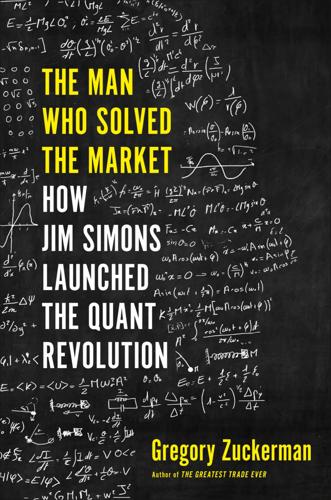
The Man Who Solved the Market: How Jim Simons Launched the Quant Revolution
by
Gregory Zuckerman
Published 5 Nov 2019
He was aware of the accomplishments of the computer giant’s speech-recognition group and thought their work bore similarity to what Renaissance was doing. In early 1993, Patterson sent separate letters to Peter Brown and Robert Mercer, deputies of the group, inviting them to visit Renaissance’s offices to discuss potential positions. Brown and Mercer both reacted the exact same way—depositing Patterson’s letter in the closest trash receptacle. They’d reconsider after experiencing family upheaval, laying the groundwork for dramatic change at Jim Simons’s company, and the world as a whole. * * * = Robert Mercer’s lifelong passion had been sparked by his father. A brilliant scientist with a dry wit, Thomas Mercer was born in Victoria, British Columbia, later becoming a world expert on aerosols, the tiny particles suspended in the atmosphere that both contribute to air pollution and cool the earth by blocking the sun.
…
Sebastian Mallaby, More Money Than God: Hedge Funds and the Making of a New Elite (New York: Penguin Press, 2010). 3. Michael Coleman, “Influential Conservative Is Sandia, UNM Grad,” Albuquerque Journal, November 5, 2017, https://www.abqjournal.com/1088165/influential-conservative-is-sandia-unm-grad-robert-mercer-trump-fundraiser-breitbart-investor-has-nm-roots.html. 4. Robert Mercer, “A Computational Life” (speech, Association for Computational Linguistics Lifetime Achievement Award, Baltimore, Maryland, June 25, 2014), http://techtalks.tv/talks/closing-session/60532. 5. Stephen Miller, “Co-Inventor of Money-Market Account Helped Serve Small Investors’ Interest,” Wall Street Journal, August 16, 2008, https://www.wsj.com/articles/SB121884007790345601. 6.
…
Feng-Hsiung Hsu, Behind Deep Blue: Building the Computer That Defeated the World Chess Champion (Princeton, NJ: Princeton University Press, 2002). Chapter Ten 1. Peter Brown and Robert Mercer, “Oh, Yes, Everything’s Right on Schedule, Fred” (lecture, Twenty Years of Bitext Workshop, Empirical Methods in Natural Language Processing Conference, Seattle, Washington, October 2013), http://cs.jhu.edu/~post/bitext. Chapter Eleven 1. Hal Lux, “The Secret World of Jim Simons,” Institutional Investor, November 1, 2000, https://www.institutionalinvestor.com/article/b151340bp779jn/the-secret-world-of-jim-simons. 2. Robert Mercer interviewed by Sharon McGrayne for her book, The Theory Would Not Die: How Bayes’ Rule Cracked the Enigma Code, Hunted Down Russian Submarines, and Emerged Triumphant from Two Centuries of Controversy (New Haven, CT: Yale University Press, 2011). 3.
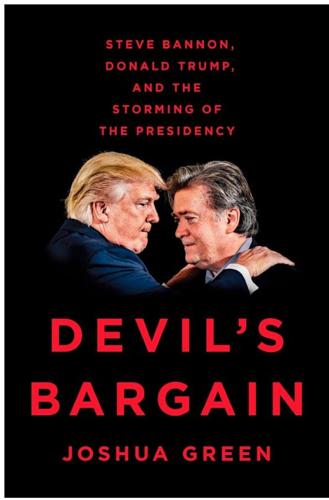
Devil's Bargain: Steve Bannon, Donald Trump, and the Storming of the Presidency
by
Joshua Green
Published 17 Jul 2017
The film debuted during the Cannes Film Festival,* on the French Riviera, where Rebekah Mercer entertained guests, including Bannon, aboard the family’s 203-foot luxury super yacht, Sea Owl. The fourth Mercer-funded outfit was a business after Robert Mercer’s own heart, the U.S. offshoot of a British data analytics company, Strategic Communication Laboratories, that advised foreign governments and militaries on influencing elections and public opinion using the tools of psychological warfare. The American affiliate of SCL, of which Robert Mercer became principal owner, was christened Cambridge Analytica. (Bannon, too, took an ownership stake and a seat on the company’s board.) The purpose of acquiring a major stake in a data company was to equip the Mercer network with the kind of state-of-the-art technology that had been glaringly absent from Mitt Romney’s campaign.
…
He was dressed up as one of his favorite movie characters of all-time, Brigadier General Frank Savage, the tough-as-nails commander, played by Gregory Peck, who takes over a demoralized World War II bombing unit and whips them into fighting shape in the 1949 classic Twelve O’Clock High. Ordinarily, Bannon wasn’t big into cosplay. But this was a special occasion: the annual Christmas party thrown by the reclusive billionaire Robert Mercer, an eccentric computer scientist who was co-CEO of the fabled quantitative hedge fund Renaissance Technologies. As introverted and private as Bannon was voluble and outspoken, Mercer was nonetheless a man of ardent passions. He collected machine guns and owned the gas-operated AR-18 assault rifle that Arnold Schwarzenegger wielded in The Terminator.
…
But the evening’s buzz was all about politics. With the presidential election less than a year away, Rebekah Mercer, who was dressed as Rita Hayworth, stood to be a figure of consequence. Texas senator Ted Cruz, dressed as Winston Churchill, was especially solicitous of her. As everyone gathered on the lush grounds of Robert Mercer’s estate was keenly aware, the Mercer family had given away more than $77 million to conservative politicians and organizations since 2008. You didn’t have to be a brilliant scientist to see the joy Bob Mercer derived from his annual Christmas pageant, or to understand that anyone hoping to curry favor with him would be wise to play along.

Machine Translation
by
Thierry Poibeau
Published 14 Sep 2017
On the other hand, with the increasing amount of translations available on the Internet, it is now possible to directly design statistical models for machine translation. This approach, known as statistical machine translation, is the most popular today. Unlike a translation memory, which can be relatively small, automatic processing presumes the availability of an enormous amount of data. Robert Mercer, one of the pioneers of statistical translation,1 proclaimed: “There is no data like more data.” In other words, for Mercer as well as followers of the statistical approach, the best strategy for developing a system consists in accumulating as much data as possible. These data must be representative and diversified, but as these are qualitative criteria that are difficult to evaluate, it is the quantitative criterion that continues to prevail.
…
These data must be representative and diversified, but as these are qualitative criteria that are difficult to evaluate, it is the quantitative criterion that continues to prevail. In fact, it has been proven that the systems’ performance regularly improves as more bi-texts are available to develop it. “There is no data like more data.” [Robert Mercer] Availability of Parallel Corpora There are two major sources of bi-texts: on the one hand, corpora already available for two or more languages; the bi-texts may be aligned or not. On the other hand, for pairs of languages without adequate corpora, techniques have been developed to automatically develop such corpora, generally by collecting texts available on the web.
…
Nano Gough and Andy Way (2004). “Robust large-scale EBMT with marker-based segmentation.” Proceedings of the Tenth International Conference on Theoretical and Methodological Issues in Machine Translation, 95–104. Baltimore, MD. Peter Brown, John Cocke, Stephen Della Pietra, Vincent Della Pietra, Frederick Jelinek, Robert Mercer, and Paul Roossin (1988). “A statistical approach to language translation.” In Proceedings of the Twelfth Conference on Computational Linguistics, Vol. 1, 71–76. Association for Computational Linguistics, Stroudsburg, PA. http://dx.doi.org/10.3115/991635.991651/. Peter F. Brown, John Cocke, Stephen A.
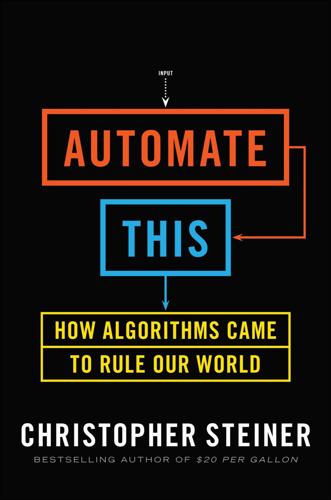
Automate This: How Algorithms Came to Rule Our World
by
Christopher Steiner
Published 29 Aug 2012
The software that did exist for the purpose was buggy and often wildly inaccurate. But in the early 1990s, two scientists at IBM’s research center dove into computerized speech recognition and translation, a field that had long failed to produce anything robust enough to be used in everyday situations. Peter Brown and Robert Mercer started by working on programs that translated one language to another, starting with French to English. Most hackers working on the problem up to that point knew both languages and wrote programs that translated words directly: the English ham is, in French, jambon; cheese is, of course, fromage; and so on.
…
When his Hollywood luck ran out, Capers spent the requisite years in school to become a psychiatrist. He met Kahler in San Diego, where he proved a quick learner of the theory Kahler, McGuire, and NASA had developed. 5. Sebastian Mallaby, More Money Than God: Hedge Funds and the Making of a New Elite (New York: Penguin Press, 2010). 6. Peter Brown, Robert Mercer, Stephen Della Pietra, and Vincent J. Della Pietra, “The Mathematics of Statistical Machine Translation: Parameter Estimation,” Journal of Computational Linguistics 19, no. 2 (1993): 263–311. 7. Ingfei Chen, “Scientist at Work: Nick Patterson,” New York Times, December 12, 2006. CHAPTER 8: WALL STREET VERSUS SILICON VALLEY 1.
…
Simpson jurors evaluated, 177 see also litigation Lawrence, Peter, 1–2 least squares method, 62–63 Le Corbusier, 56 Lee, Spike, 87 Lehman Brothers, 191, 192 Leibniz, Gottfried, 26, 57–61, 68, 72 binary language of, 57–58, 60–61, 71, 73 Leipzig, 58 Lennon, John, 104, 107–8 “In My Life” claimed by, 110–11 as math savant, 103 “Let It Be,” 103 Levchin, Max, 188 leverage, trading on margin with, 51 Lewis, Michael, 141, 202 Li, David X., 65 Liber Abaci (The Book of Calculation) (Fibonacci), 56–57 Library of Congress, 193 Lin, Jeremy, 142–43 linguistics, 187 liquidity crisis, potential, 51–52 Lisp, 12, 93, 94 lit fiber, 114, 120 lithium hydroxide, 166 Lithuania, 69 litigation: health insurers and, 181 stock prices and potential, 27 Walgreens and, 156 logic: algorithms and, 71 broken down into mechanical operations, 58–59 logic theory, 73 logic trees, 171 London, 59, 66–67, 68, 121, 198 Los Angeles International Airport, security algorithm at, 135 Los Angeles Lakers, 143 loudness, 93, 106 Lovelace, Ada, 73 Lovell, James, 165–67 Lulea, Sweden, 204 lunar module, 166 lung cancer, 154 McAfee, Andrew P., 217–18 McCartney, Paul, 104, 105, 107 “In My Life” claimed by, 110–11 as math savant, 103 McCready, Mike, 78–83, 85–89 McGuire, Terry, 145, 168–72, 174–76 machine-learning algorithms, 79, 100 Magnetar Capital, 3–4, 10 Mahler, Gustav, 98 Major Market Index, 40, 41 Making of a Fly, The (Lawrence), prices of, 1–2 Malyshev, Mikhail, 190 management consultants, 189 margin, trading with, 51 market cap, price swings and, 49 market makers: bids and offers by, 35–36 Peterffy as, 31, 35–36, 38, 51 market risk, 66 Maroon 5, 85 Marseille, 147, 149 Marshall, Andrew, 140 Martin, George, 108–10 Martin, Max (Martin Sandberg), 88–89 math: behind algorithms, 6, 53 education in, 218–20 mathematicians: algorithms and, 6, 71 online, 53 on Wall Street, 13, 23, 24, 27, 71, 179, 185, 201–3 Mattingly, Ken, 167 MBAs: eLoyalty’s experience with, 187 Peterffy’s refusal to hire, 47 MDCT scans, 154 measurement errors, distribution of, 63 medical algorithms, 54, 146 in diagnosis and testing, 151–56, 216 in organ sharing, 147–51 patient data and home monitoring in, 158–59 physicians’ practice and, 156–62 medical residencies, game theory and matching for, 147 medicine, evidence-based, 156 Mehta, Puneet, 200, 201 melodies, 82, 87, 93 Mercer, Robert, 178–80 Merrill Lynch, 191, 192, 200 Messiah, 68 metal: trading of, 27 volatility of, 22 MGM, 135 Miami University, 91 Michigan, 201 Michigan, University of, 136 Microsoft, 67, 124, 209 microwaves, 124 Midas (algorithm), 134 Miller, Andre, 143 mind-reading bots, 178, 181–83 Minneapolis, Minn., 192–93 minor-league statistics, baseball, 141 MIT, 24, 73, 128, 160, 179, 188, 217 Mocatta & Goldsmid, 20 Mocatta Group, 20, 21–25, 31 model building, predictive, 63 modifiers, 71 Boolean, 72–73 Mojo magazine, 110 Moneyball (Lewis), 141 money markets, 214 money streams, present value of future, 57 Montalenti, Andrew, 200–201 Morgan Stanley, 116, 128, 186, 191, 200–201, 204 mortgage-backed securities, 203 mortgages, 57 defaults on, 65 quantitative, 202 subprime, 65, 202, 216 Mosaic, 116 movies, algorithms and, 75–76 Mozart, Wolfgang Amadeus, 77, 89, 90, 91, 96 MP3 sharing, 83 M Resort Spa, sports betting at, 133–35 Mubarak, Hosni, 140 Muller, Peter, 128 music, 214 algorithms in creation of, 76–77, 89–103 decoding Beatles’, 70, 103–11 disruptors in, 102–3 homogenization or variety in, 88–89 outliers in, 102 predictive algorithms for success of, 77–89 Music X-Ray, 86–87 Musikalisches Würfelspiel, 91 mutual funds, 50 MyCityWay, 200 Najarian, John A., 119 Naples, 121 Napoleon I, emperor of France, 121 Napster, 81 Narrative Science, 218 NASA: Houston mission control of, 166, 175 predictive science at, 61, 164, 165–72, 174–77, 180, 194 Nasdaq, 177 algorithm dominance of, 49 Peterffy and, 11–17, 32, 42, 47–48, 185 terminals of, 14–17, 42 trading method at, 14 National Heart, Lung, and Blood Institute, 159 Nationsbank, Chicago Research and Trading Group bought by, 46 NBA, 142–43 Neanderthals, human crossbreeding with, 161 Nebraska, 79–80, 85 Netflix, 112, 207 Netherlands, 121 Netscape, 116, 188 Nevermind, 102 New England Patriots, 134 New Jersey, 115, 116 Newsweek, 126 Newton, Isaac, 57, 58, 59, 64, 65 New York, N.Y., 122, 130, 192, 201–2, 206 communication between markets in Chicago and, 42, 113–18, 123–24 financial markets in, 20, 198 high school matching algorithm in, 147–48 McCready’s move to, 85 Mocatta’s headquarters in, 26 Peterffy’s arrival in, 19 tech startups in, 210 New York Commodities Exchange (NYCE), 26 New Yorker, 156 New York Giants, 134 New York Knicks, 143 New York magazine, 34 New York State, health department of, 160 New York Stock Exchange (NYSE), 3, 38–40, 44–45, 49, 83, 123, 184–85 New York Times, 123, 158 New York University, 37, 132, 136, 201, 202 New Zealand, 77, 100, 191 Nietzsche, Friedrich, 69 Nirvana, 102 Nixon, Richard M., 140, 165 Nobel Prize, 23, 106 North Carolina, 48, 204 Northwestern University, 145, 186 Kellogg School of Management at, 10 Novak, Ben, 77–79, 83, 85, 86 NSA, 137 NuclearPhynance, 124 nuclear power, 139 nuclear weapons, in Iran, 137, 138–39 number theory, 65 numerals: Arabic-Indian, 56 Roman, 56 NYSE composite index, 40, 41 Oakland Athletics, 141 Obama, Barack, 46, 218–19 Occupy Wall Street, 210 O’Connor & Associates, 40, 46 OEX, see S&P 100 index Ohio, 91 oil prices, 54 OkCupid, 144–45 Olivetti home computers, 27 opera, 92, 93, 95 Operation Match, 144 opinions-driven people, 173, 174, 175 OptionMonster, 119 option prices, probability and statistics in, 27 options: Black-Scholes formula and, 23 call, 21–22 commodities, 22 definition of, 21 pricing of, 22 put, 22 options contracts, 30 options trading, 36 algorithms in, 22–23, 24, 114–15 Oregon, University of, 96–97 organ donor networks: algorithms in, 149–51, 152, 214 game theory in, 147–49 oscilloscopes, 32 Outkast, 102 outliers, 63 musical, 102 outputs, algorithmic, 54 Pacific Exchange, 40 Page, Larry, 213 PageRank, 213–14 pairs matching, 148–51 pairs trading, 31 Pakistan, 191 Pandora, 6–7, 83 Papanikolaou, Georgios, 153 Pap tests, 152, 153–54 Parham, Peter, 161 Paris, 56, 59, 121 Paris Stock Exchange, 122 Parse.ly, 201 partial differential equations, 23 Pascal, Blaise, 59, 66–67 pathologists, 153 patient data, real-time, 158–59 patterns, in music, 89, 93, 96 Patterson, Nick, 160–61 PayPal, 188 PCs, Quotron data for, 33, 37, 39 pecking orders, social, 212–14 Pennsylvania, 115, 116 Pennsylvania, University of, 49 pension funds, 202 Pentagon, 168 Perfectmatch.com, 144 Perry, Katy, 89 Persia, 54 Peru, 91 Peterffy, Thomas: ambitions of, 27 on AMEX, 28–38 automated trading by, 41–42, 47–48, 113, 116 background and early career of, 18–20 Correlator algorithm of, 42–45 early handheld computers developed by, 36–39, 41, 44–45 earnings of, 17, 37, 46, 48, 51 fear that algorithms have gone too far by, 51 hackers hired by, 24–27 independence retained by, 46–47 on index funds, 41–46 at Interactive Brokers, 47–48 as market maker, 31, 35–36, 38, 51 at Mocatta, 20–28, 31 Nasdaq and, 11–18, 32, 42, 47–48, 185 new technology innovated by, 15–16 options trading algorithm of, 22–23, 24 as outsider, 31–32 profit guidelines of, 29 as programmer, 12, 15–16, 17, 20–21, 26–27, 38, 48, 62 Quotron hack of, 32–35 stock options algorithm as goal of, 27 Timber Hill trading operation of, see Timber Hill traders eliminated by, 12–18 trading floor methods of, 28–34 trading instincts of, 18, 26 World Trade Center offices of, 11, 39, 42, 43, 44 Petty, Tom, 84 pharmaceutical companies, 146, 155, 186 pharmacists, automation and, 154–56 Philips, 159 philosophy, Leibniz on, 57 phone lines: cross-country, 41 dedicated, 39, 42 phones, cell, 124–25 phosphate levels, 162 Physicians’ Desk Reference (PDR), 146 physicists, 62, 157 algorithms and, 6 on Wall Street, 14, 37, 119, 185, 190, 207 pianos, 108–9 Pincus, Mark, 206 Pisa, 56 pitch, 82, 93, 106 Pittsburgh International Airport, security algorithm at, 136 Pittsburgh Pirates, 141 Pius II, Pope, 69 Plimpton, George, 141–42 pneumonia, 158 poetry, composed by algorithm, 100–101 poker, 127–28 algorithms for, 129–35, 147, 150 Poland, 69, 91 Polyphonic HMI, 77–79, 82–83, 85 predictive algorithms, 54, 61, 62–65 prescriptions, mistakes with, 151, 155–56 present value, of future money streams, 57 pressure, thriving under, 169–70 prime numbers, general distribution pattern of, 65 probability theory, 66–68 in option prices, 27 problem solving, cooperative, 145 Procter & Gamble, 3 programmers: Cope as, 92–93 at eLoyalty, 182–83 Peterffy as, 12, 15–16, 17, 20–21, 26–27, 38, 48, 62 on Wall Street, 13, 14, 24, 46, 47, 53, 188, 191, 203, 207 programming, 188 education for, 218–20 learning, 9–10 simple algorithms in, 54 Progress Energy, 48 Project TACT (Technical Automated Compatibility Testing), 144 proprietary code, 190 proprietary trading, algorithmic, 184 Prussia, 69, 121 PSE, 40 pseudocholinesterase deficiency, 160 psychiatry, 163, 171 psychology, 178 Pu, Yihao, 190 Pulitzer Prize, 97 Purdue University, 170, 172 put options, 22, 43–45 Pythagorean algorithm, 64 quadratic equations, 63, 65 quants (quantitative analysts), 6, 46, 124, 133, 198, 200, 202–3, 204, 205 Leibniz as, 60 Wall Street’s monopoly on, 183, 190, 191, 192 Queen’s College, 72 quizzes, and OkCupid’s algorithms, 145 Quotron machine, 32–35, 37 Rachmaninoff, Sergei, 91, 96 Radiohead, 86 radiologists, 154 radio transmitters, in trading, 39, 41 railroad rights-of-way, 115–17 reactions-based people, 173–74, 195 ReadyForZero, 207 real estate, 192 on Redfin, 207 recruitment, of math and engineering students, 24 Redfin, 192, 206–7, 210 reflections-driven people, 173, 174, 182 refraction, indexes of, 15 regression analysis, 62 Relativity Technologies, 189 Renaissance Technologies, 160, 179–80, 207–8 Medallion Fund of, 207–8 retirement, 50, 214 Reuter, Paul Julius, 122 Rhode Island hold ‘em poker, 131 rhythms, 82, 86, 87, 89 Richmond, Va., 95 Richmond Times-Dispatch, 95 rickets, 162 ride sharing, algorithm for, 130 riffs, 86 Riker, William H., 136 Ritchie, Joe, 40, 46 Rochester, N.Y., 154 Rolling Stones, 86 Rondo, Rajon, 143 Ross, Robert, 143–44 Roth, Al, 147–49 Rothschild, Nathan, 121–22 Royal Society, London, 59 RSB40, 143 runners, 39, 122 Russia, 69, 193 intelligence of, 136 Russian debt default of 1998, 64 Rutgers University, 144 Ryan, Lee, 79 Saint Petersburg Academy of Sciences, 69 Sam Goody, 83 Sandberg, Martin (Max Martin), 88–89 Sandholm, Tuomas: organ donor matching algorithm of, 147–51 poker algorithm of, 128–33, 147, 150 S&P 100 index, 40–41 S&P 500 index, 40–41, 51, 114–15, 218 Santa Cruz, Calif., 90, 95, 99 satellites, 60 Savage Beast, 83 Saverin, Eduardo, 199 Scholes, Myron, 23, 62, 105–6 schools, matching algorithm for, 147–48 Schubert, Franz, 98 Schwartz, Pepper, 144 science, education in, 139–40, 218–20 scientists, on Wall Street, 46, 186 Scott, Riley, 9 scripts, algorithms for writing, 76 Seattle, Wash., 192, 207 securities, 113, 114–15 mortgage-backed, 203 options on, 21 Securities and Exchange Commission (SEC), 185 semiconductors, 60, 186 sentence structure, 62 Sequoia Capital, 158 Seven Bridges of Königsberg, 69, 111 Shannon, Claude, 73–74 Shuruppak, 55 Silicon Valley, 53, 81, 90, 116, 188, 189, 215 hackers in, 8 resurgence of, 198–211, 216 Y Combinator program in, 9, 207 silver, 27 Simons, James, 179–80, 208, 219 Simpson, O.
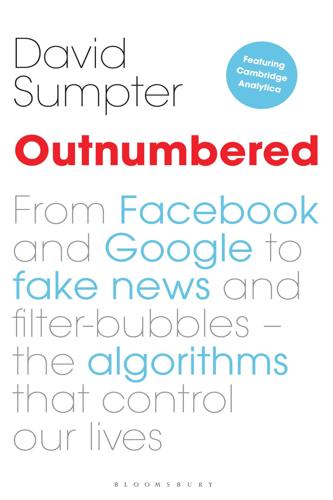
Outnumbered: From Facebook and Google to Fake News and Filter-Bubbles – the Algorithms That Control Our Lives
by
David Sumpter
Published 18 Jun 2018
The origins of Cambridge Analytica has all the ingredients of a modern conspiracy story. It involves Ted Cruz, Donald Trump, data security, the psychology of personality, Facebook, underpaid Mechanical Turk workers, big data, Cambridge University academics, right-wing populist Steve Bannon who sits on the board, right-wing financier Robert Mercer who is one of its biggest investors, one-time national security advisor Michael Flynn who has acted as consultant, and (in some less reliable versions of the story) Russian-sponsored trolls. I can imagine it as a film with Jesse Eisenberg playing a psychologist who gradually uncovers the true motives of the company he works for: to manipulate our every emotion for political means.
…
‘Advanced mouse-tracking analytic techniques for enhancing psychological science.’ Group Processes & Intergroup Relations 18, no. 3: 384–401. Chapter 5 : Cambridge Hyperbolytica 1 The most recent article had been the subject of a legal challenge by the company: www.theguardian.com/technology/2017/may/14/robert-mercer-cambridge-analytica-leave-eu-referendum-brexit-campaigns 2 This is, of course, an example of one such binary statement. They are hard to avoid. 3 https://d25d2506sfb94s.cloudfront.net/cumulus_uploads/document/0q7lmn19of/TimesResults_160613_EUReferendum_W_Headline.pdf 4 The opinion poll does not have the exact age of the people interviewed, so in fitting the model I assumed that each person had the median reported age.
…
Candid here, here Fair Housing Act (US) here fairness here fake news here, here, here feedback loops here MacronLeaks here post-truth world here, here, here false negatives here, here false positives here, here, here, here Fark here Feedly here Feller, Avi here Fergus, Rob here Ferrara, Emilio here filter bubbles here, here, here FiveThirtyEight here, here, here, here Flipboard here Flynn, Michael here football here, here robot players here, here Fortunato, Santo here, here Fowler, James here Franks, Nigel here Frostbite here Future of Life Institute here, here Gates, Bill here Gelade, Garry here gender bias here, here, here GloVe (global vectors for word representation) here Genter, Katie here Gentzkow, Matthew here, here Geoengineering Watch here, here Glance, Natalie here GloVe (global vectors for word representation) here Go here, here, here, here Goel, Sharad here Google here, here, here, here, here, here, here, here, here, here, here, here, here, here, here, here artificial intelligence (AI) here, here, here black hats here, here, here DeepMind here, here, here, here, here, here, here, here ‘Don’t be evil’ here Google autocomplete here, here Google News here Google Scholar here, here, here, here Google Search here Google+ here personalised adverts here, here, here, here SharedCount here Gore, Al here Grammatas, Angela here, here Guardian here, here, here, here, here, here, here, here, here, here, here, here, here, here Guardian US here, here h-index here, here Häggström, Olle here, here, here Here Be Dragons here Hassabis, Demis here, here, here Hawking, Stephen here, here, here He, Kaiming here Her here Higginson, Andrew here Hinton, Geoffrey here HotUKDeal here Huckfeldt, Bob here, here, here, here Huffington Post here, here, here Independent here Instagram here Internet here, here, here, here Internet service providers (ISPs) here Intrade here Ishiguro, Kazuo Never Let Me Go here iTunes here, here James Webb Sapce Telescope here Jie, Ke here job matching here Johansson, Joakim here, here Journal of Spatial Science here Kaminski, Juliane here Kasparov, Garry here, here Keith, David here Kerry, John here Keuschnigg, Marc here Kleinberg, Jon here Kluemper, Donald here Kogan, Alex here, here, here Kosinski, Michal here, here, here, here, here, here, here Kramer, Adam here, here Krizhevsky, Alex here Kulsrestha, Juhi here Kurzweil, Ray here Labour Party here, here Momentum here Lake, Brenden here language here Laue, Tim here Le Comber, Steve here Le Cun, Yan here Le Pen, Marine here Le, Quoc here Lerman, Kristina here, here, here Levin, Simon here Libratus here LinkedIn here, here, here, here literature here logic gates here Luntz, Frank here Machine Bias here Macron, Emmanuel here Major League Soccer (MLS) here, here Mandela effect here, here Mandela, Nelson here Martin, Erik here matchmaking here mathematics here, here assessing bias here mathematical models here, here, here power laws here Matrix, The here May, Lord Robert here McDonald, Glenn here, here Mechanical Turk here, here, here, here, here Medium here Mercer, Robert here Microsoft here, here, here, here, here, here Mikolov, Tomas here, here Minecraft here Mosseri, Adam here, here, here Mrsic-Flogel, Thomas here Ms Pac-Man here, here, here Munafò, Marcus here Musk, Elon here, here, here myPersonality project here National Health Service (NHS) here, here National Women’s Soccer League (NWSL) here, here Nature here, here, here Natusch, Waffles Pi here Netflix here neural networks here, here convolutional neural networks here limitations here recurrent neural networks here New York Times here, here, here, here, here, here, here, here The Upshot here, here news aggregators here Nix, Alexander here, here, here, here Noiszy here Northpointe here, here, here, here O’Neil, Cathy here Weapons of Math Destruction here Obama, Barack here, here Observer here online data collection here, here gender bias here preventing here principal component analysis (PCA) here online help services here OpenWorm here Overwatch here, here Pasquale, Frank The Black Box Society here, here Paul, Jake here, here, here, here Pennington, Jeffrey here personality analysis here Big Five here, here, here, here PewDiePie here Pierson, Emma here Pittsburgh Post-Gazette here political blogs here political discussions here, here, here PolitiFact here polls here, here, here, here Popular Mechanics here post-truth world here, here, here power laws here Pratt, Stephen here, here PredictIt here, here, here, here, here, here Prince here principal component analysis (PCA) here categorising personalities here COMPAS algorithm here probability distributions here ProPublica here, here, here, here, here, here Pundit here Q*bert 214, here Qualtrics here racial bias here, here, here, here, here GloVe (global vectors for word representation) here randomness here Reddit here, here, here, here, here regression models here, here Republican Party here, here, here, here, here RiceGum here, here Richardson, Kathleen here Road Runner here Robotank here, here robots here, here, here, here, here, here Russian interference here, here, here Salganik, Matthew here, here Sanders, Bernie here Scholz, Monika here Science here SCL here, here search histories here Silver, David here Silver, Nate here, here, here The Signal and the Noise here Silverman, Craig here Simonyan, Karen here singularity hypothesis here Skeem, Jen here Sky Sports here slime moulds (Physarum polycephulum) here, here, here Snapchat here Snopes here social feedback here Space Invaders here, here, here, here Spotify here, here, here, here, here, here, here Stack Exchange here StarCraft here statistics here, here, here, here, here regression models here, here Stillwell, David here, here Sullivan, Andrew here, here Sumpter, David Soccermatics here, here, here, here, here, here, here Sun, The here superforecasters here, here superintelligence here, here Szorkovszky, Alex here, here, here, here, here, here Taleb, Nassim here, here, here Tegmark, Max here, here, here, here Telegraph here, here, here, here Tesla here, here, here, here Tetlock, Philip here, here Texas, Virgil here, here, here The Gateway here TIDAL here Times, The here, here Tinder here, here, here Tolstoy, Leo here, here, here Anna Karenina here trolls here true positives here, here Trump, Donald here, here, here, here, here, here election campaign here, here, here, here, here, here election outcome here, here, here Twitter here, here TUI here, here Turing, Alan here Twitter here, here, here, here, here, here, here, here, here, here, here, here, here, here MacronLeaks here Tyson, Gareth here van Seijen, Harm here, here Vinyals, Oriol here vloggers here voter analysis here, here, here Wall Street Journal here Ward, Ashley here Washington Post here, here, here, here Watts, Duncan here, here Which?
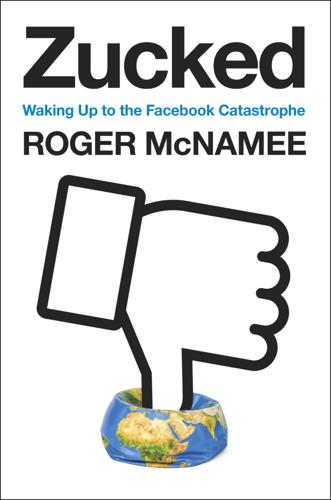
Zucked: Waking Up to the Facebook Catastrophe
by
Roger McNamee
Published 1 Jan 2019
The Guardian story opened with a bang: The data analytics firm that worked with Donald Trump’s election team and the winning Brexit campaign harvested millions of Facebook profiles of US voters, in one of the tech giant’s biggest ever data breaches, and used them to build a powerful software program to predict and influence choices at the ballot box. A whistleblower has revealed to the Observer how Cambridge Analytica—a company owned by the hedge fund billionaire Robert Mercer, and headed at the time by Trump’s key adviser Steve Bannon—used personal information taken without authorisation in early 2014 to build a system that could profile individual US voters, in order to target them with personalised political advertisements. Christopher Wylie, who worked with a Cambridge University academic to obtain the data, told the Observer: “We exploited Facebook to harvest millions of people’s profiles.
…
In the world of market research, there is considerable doubt about how well psychographics work in their current form, but that issue did not prevent Cambridge Analytica from finding clients, mostly on the far right. To serve the US market, SCL needed to obey federal election laws. It created a US affiliate staffed by US citizens and legal residents. Reports indicated that Cambridge Analytica took a casual approach to regulations. The team of Robert Mercer and Steve Bannon financed and organized Cambridge Analytica, with Alexander Nix as CEO. The plan was to get into the market within a few months, test capabilities during the 2014 US midterm elections, and, if successful, transform American politics in 2016. To be confident that their models would work, Nix and his team needed a ton of data.
…
Kaiser transferred into Cambridge Analytica and went to work bringing in clients. Her early clients were in Africa, but in 2015 she and Nix shifted their focus to the United States in anticipation of the presidential election cycle. Kaiser asserted that Nix was not a political ideologue—unlike his patrons Robert Mercer and Steve Bannon—and hoped to create a “famous advertising company in the US market.” As quoted in The Guardian: “Corporations like Google, Facebook, Amazon, all of these large companies, are making tens or hundreds of billions of dollars off of monetising people’s data,” Kaiser says. “I’ve been telling companies and governments for years that data is probably your most valuable asset.
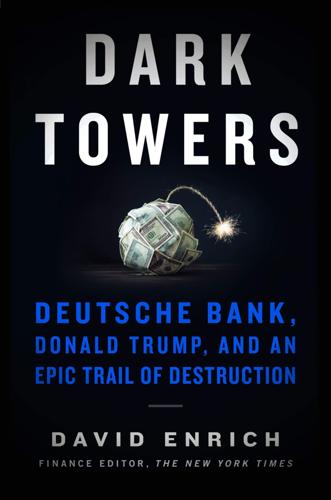
Dark Towers: Deutsche Bank, Donald Trump, and an Epic Trail of Destruction
by
David Enrich
Published 18 Feb 2020
Since the late 1990s, Deutsche had been peddling products to hedge funds, including the enormous Renaissance Technologies, that helped them avoid taxes. Founded by a former government code-breaker, Renaissance specialized in using computer programs to scout out tiny market inefficiencies that could be exploited. The firm recruited engineers and mathematicians, including an IBM programmer named Robert Mercer, a right-wing zealot who once noted that he enjoyed spending time with cats more than with people. Mercer eventually rose to the top of Renaissance, helping it become one of the world’s most successful hedge funds. Renaissance was always looking for a new, sharper edge, and that’s where Deutsche came in.
…
He peppered the lawyer with questions about what he needed to do next. The way Broeksmit talked, he seemed to be bracing for a world of shit to land on him at any moment. The Senate’s report was unveiled with fanfare in July 2014, paired with congressional hearings—just as the co-head of Renaissance, Robert Mercer, was beginning to bankroll a series of right-wing initiatives, such as Breitbart News, aimed at upending the Western political order. Senator Carl Levin, the chairman of the investigations committee, convened the first public hearing at 9:30 one July morning in the Hart Senate Office Building.
…
“Any Russia stuff at all,” Simpson requested. He added that he was eager for emails or documents related to Renaissance Technologies—the huge hedge fund that Deutsche had worked with to help save it billions in taxes. Simpson was especially curious about any materials on Renaissance’s enigmatic leader, Robert Mercer, who along with his daughter Rebekah had become a leading financier of Trump, Steve Bannon, and Breitbart News. “Be safe and I will see you tomorrow,” Simpson signed off. The weather in Saint Thomas was balmy, and Val and Glenn alternated between sifting through Bill’s files in a hotel suite and sitting at a picnic table on the beach, drinking beers and smoking cigarettes.
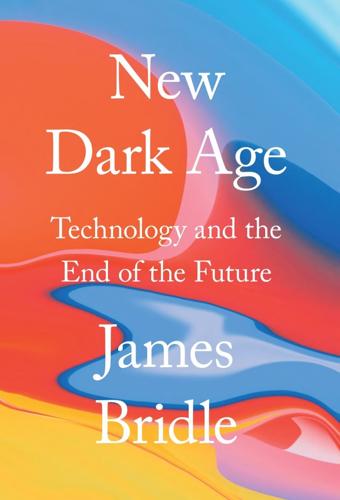
New Dark Age: Technology and the End of the Future
by
James Bridle
Published 18 Jun 2018
In the run-up to the EU referendum in the United Kingdom, a fifth of the electorate believed that the poll would be rigged in collusion with the security services.24 Leave campaigners advised voters to take pens with them to vote, in order to ensure pencil votes weren’t erased.25 In the aftermath, attention focused on the work of Cambridge Analytica – a company owned by Robert Mercer, former AI engineer, hedge fund billionaire and Donald Trump’s most powerful supporter. Cambridge Analytica’s employees have described what they do as ‘psychological warfare’ – leveraging vast amounts of data in order to target and persuade voters. And of course it turned out that the election really was rigged by the security services, in the way that rigging actually happens: the board and staff of Cambridge Analytica, which ‘donated’ its services to the Leave campaign, includes former British military personnel – notably the former director of psychological operations for British forces in Afghanistan.26 In both the EU referendum and the US election, military contractors used military intelligence technologies to influence democratic elections in their own countries.
…
(von Neumann), 28 Capital in the Twenty-First Century (Piketty), 112 carbon dioxide, 75 Catch-22 (Heller), 187–8 ‘cautious regulator’ theory, 94–5 CCTV, 181–2 centaur chess, 159 Chanarin, Oliver, 143 chaotic storage, 115–6 Chargaff, Erwin, 96–7 Charlie Hebdo attacks, 212 chemtrails, 192–5, 206–8, 214 children’s television, 216–7 children’s YouTube, 219, 238 Cirrus homogenitus, 196, 197 Civil Aviation Authority (CAA), 161–2 clear-air turbulence, 68 climate carbon dioxide, 75 global warming, 73, 193, 214 permafrost, 47–9, 56–7 seed banks, 52–6 turbulence, 65–9 climate change patterns disrupted by, 72–3 resilience against, 59 climate crisis, 56 Clinton, Bill, 243 Clinton, Hillary, 207, 232–3 cloning, 86–8 closed-circuit television, 181–2 cloud(s), 6–7, 8, 17, 195–6 ‘The Cloud Begins with Coal-Big Data, Big Networks, Big Infrastructure, and Big Power’ report, 64 ‘The Cloud of Unknowing,’ 9 cloudy thinking, 9 coal deposits, discovery of, 52 coastal installations, 62 Cocks, Clifford, 167 code/spaces, 37–9 code words, 175 cognition about, 135–6 artificial intelligence (AI), 139 facial recognition, 141 image recognition, 139–40 machine translation, 147 ‘predictive policing’ systems, 144–6 collectivism, totalitarianism vs., 139 Commission on Government Secrecy, 169 complex systems about, 2–3 aggregation of, 40 high-frequency trading, 14, 106–7, 108, 122, 124 complicity computational logic, 184–5 Freedom of Information, 161–2, 165, 192 global mass surveillance, 179–80 Glomar response, 165, 186 public key cryptography, 167–8 computation calculating machines, 27 Electronic Numerical Integrator and Computer (ENIAC), 27, 27–30, 33 flight trackers, 35–6, 36 IBM Selective Sequence Electronic Calculator (SSEC), 30, 30–2, 31, 146 opaqueness of, 40 computational logic, 184–5 computational thinking about, 4 evolution of, 248 importance of, 44–5 Concorde, 69, 70, 71 conspiracy chemtrails, 192–5, 206–8, 214 conspiracy theories, 195, 198–9, 205 contrails, 196–8, 197, 214 global warming, 73, 193, 214 9/11 terrorist attacks, 203–4, 206 ‘Conspiracy as Governance’ (Assange), 183 contrails, 196–8, 197, 214 Copenhagen Climate Change Conference (COP15), 199 Cowen, Deborah, 132 Credit Suisse, 109 cryptocurrency, 63 Cumulus homogenitus, 195–6 cyborg chess, 159 D Dabiq (online magazine), 212 Dallaire, Roméo, 243 darkness, 11–2 “Darkness” (poem), 201–2 dark pools, 108–9 DARPA (Defense Advanced Research Projects Agency), 33 Darwin, Charles, 78 data abundance of, 83–4, 131 big, 84 importance of, 245–6 realistic accounting of, 247 thirst for, 246 data dredging, 90–1 Debord, Guy, 103 DEC (Digital Equipment Corporation), 33 Decyben SAS, 110 Deep Blue, 148–9, 157–60 DeepDream, 153, 154–5 DeepFace software, 140 defeat devices, 120 Defense Advanced Research Projects Agency (DARPA), 33 de Solla Price, Derek, 91–2, 93 Diffie-Hellman key exchange, 167 digital culture, 64–5 Digital Equipment Corporation (DEC), 33 digital networks, mapping, 104 digitisation, 108 ‘Discussion of the Possibility of Weather Control’ lecture, 26 diurnal temperature range (DTR), 204 DNA sequencing, 93 D-Notices, 179 domain name system, 79 doomsday vault, 52–3 Dow Jones Industrial Average, 121–2 drones, 161–2 drug discovery/research, 94–5 DTR (diurnal temperature range), 204 Duffy, Carol Ann, 201 Dunne, Carey, 194–5 E Elberling, Bo, 57 electromagnetic networks, 104 Electronic Computer Project, 27 Electronic Frontier Foundation, 177 Electronic Numerical Integrator and Computer (ENIAC), 27, 27–30, 33 Elements of Chemistry (Lavoisier), 208–9 Elkins, Caroline, 183–4 Ellis, James, 167 encoded biases, 142 ‘End of Theory’ (Anderson), 83–4, 146 Engelbart, Douglas, 79 ENIAC (Electronic Numerical Integrator and Computer), 27, 27–30, 33 Enlightenment, 10 Environmental Protection Agency (EPA), 119–20 EPA (Environmental Protection Agency), 119–20 Epagogix, 130 epidemic type aftershock sequence (ETAS) model, 145–6 Epimetheus, 132–4 Equinix LD4, 104 Eroom’s law, 86, 93–6 ETAS (epidemic type aftershock sequence) model, 145–6 Euronext Data Center, 104, 105, 106 Evangelismos Hospital, 130–1 evolution, theory of, 78 exploitation, 229–30 Eyjafjallajökull, eruption of, 200–1, 202 F Facebook, 39–40, 156–7 facial recognition, 141 Fairchild Semiconductor, 80 Farage, Nigel, 194 Fat Man bomb, 25 Fermi, Enrico, 250 Ferranti Mark I, 78 fiat anima, 19–20 fiat lux, 19–20 Finger Family, 221–2, 224, 227 ‘Five Eyes,’ 174 Flash Boys (Lewis), 111–2 flash crash, 121–2, 130–1 FlightRadar24, 36, 189, 191 flight trackers, 35–6, 36 ‘Fourteen Eyes,’ 174 Fowler, R.H., 45 Frankenstein (Shelley), 201 fraud, 86–8, 91 Freedom of Information, 161–2, 165, 192 Friends’ Ambulance Unit, 20 Fuller, Buckminster, 71 Futurama exhibit, 30–1 ‘Future Uses of High Speed Computing in Meteorology’ lecture, 26 G Gail, William B., 72–3 Galton, Francis, 140 game developers, 130 Gates’s law, 83 GCHQ (Government Communications Headquarters), 167, 174, 176–9, 189 genocide, 243 ghost cars (Uber), 118–9 G-INFO, 190 global mass surveillance, 179–80 Global Positioning System (GPS), 36–7, 42–3 Global Seed Vault, 54 global warming, 73, 193, 214 Glomar response, 165, 186 Godard, Jean-Luc, 143 Google, 84, 139, 230, 242 Google Alerts, 190 Google Brain project, 139, 148, 149, 156 Google Earth, 35–6 Google Home, 128–9 Google Maps, 177 Google Translate, 147–8, 156 Government Communications Headquarters (GCHQ), 167, 174, 176–9, 189 GPS (Global Positioning System), 36–7, 42–3 Graves, Robert, 159 Gravity’s Rainbow (Pynchon), 128 gray zone, 212–4 Great Nōbi Earthquake, 145 Greenland, 57–8 Green Revolution, 53 Greyball programme, 119, 120 guardianship, 251–2 H Hankins, Thomas, 102 Haraway, Donna, 12 Harvard Mark I machine, 30 Hayek, Friedrich, 156–7 The Road to Serfdom, 139 The Sensory Order: An Inquiry into the Foundations of Theoretical Psychology, 138–9 HealthyFoodHouse.com (website), 231–2 Heller, Joseph Catch-22, 187–8 Hermes, 134 Hersh, Seymour, 164 Hewlett-Packard, 143 hidden technological processes, 120 high-frequency trading, 14, 106–7, 108, 122, 124 high-throughput screening (HTS), 95–6 Hillingdon Hospital, 110–1, 111 Hippo programme, 32 Hofstadter, Douglas, 205–6 Hola Massacre, 170 homogenitus, 195, 196 Horn, Roni, 50, 201 How-Old.net facial recognition programme, 141 ‘How the World Wide Web Just Happened’ lecture, 78 HTS (high-throughput screening), 95–6 Hughes, Howard, 163 Hughes Glomar Explorer, 163–5 human genome project, 93 Human Interference Task Force, 251 human violence, 202 Humby, Clive, 245, 246 Hwang Woo-suk, 86–8 hyperobjects, 73, 75, 76, 194 hypertext, 79 I IBM Selective Sequence Electronic Calculator (SSEC), 30, 30–2, 31, 146 ICAO (International Civil Aviation Organisation), 68 ICARDA (International Center for Agricultural Research in the Dry Areas), 53–4, 55 ICT, 60–2 image recognition, 139–40 Infinite Fun Space, 149–50, 156 information networks, 62 information superhighway, 10 Infowars (Jones), 207 In Place of Fear (Bevan), 110 Institute of the Aeronautical Sciences, 26 integrated circuits, 79, 80 Intel, 80 International Center for Agricultural Research in the Dry Areas (ICARDA), 53–4, 55 International Civil Aviation Organisation (ICAO), 68 International Cloud Atlas, 195 Internet Research Agency, 235, 237 Inuit Knowledge and Climate Change, 199 The Invisibles (Morrison), 196–7 Isaksen, Ketil, 54 ISIL, 212–3 J Jameson, Fredric, 205 Jelinek, Frederick, 146–7 Jones, Alex Infowars, 207 Joshi, Manoj, 68–9 journalism, automated, 123–4 just-in-time manufacturing, 117 K K-129, 162–3 Karma Police operation, 175 Kasparov, Garry, 148–9, 157–8 Keeling Curve, 74, 74 Kennedy, John F., 169–70 Kinder Eggs, 215–6 Kiva robots, 114 Klein, Mark, 176–7 Kodak, 143 Krakatoa, eruption of, 202 Kunuk, Zacharias, 199, 200 Kuznets curve, 113 L Large Hadron Collider, 93 Lavoisier, Antoine, 78 Elements of Chemistry, 208–9 Lawson, Robert, 175–6 LD4, 104, 105 Leave Campaign, 194 Leibniz, Gottfried Wilhelm, 78 Levy, David, 158, 159 Lewis, Michael Flash Boys, 111–2 LifeSphere, 125 literacy in systems, 3–4 Lockheed Ocean Systems, 163 Logan, Walt (pseudonym), 165 Lombroso, Cesare, 140 London Stock Exchange, 110–1 Lovecraft, H.P., 11, 249 ‘low-hanging fruit,’ 93–4 M Macedonia, 233–4 machine learning algorithms, 222 machine thought, 146 machine translation, 147 magnetism, 77 Malaysian Airlines, 66 manganese noodles, 163–4 Manhattan Project, 24–30, 248 Mara, Jane Muthoni, 170 Mark I Perceptron, 136–8, 137 Maslow’s hierarchy of needs, 128–9 Matthews, James Tilly, 208–10, 209 Mauro, Ian, 199 McCarthy, Joe, 205 McGovern, Thomas, 57–8 McKay Brothers, 107, 110 memex, 24 Mercer, Robert, 236 Merkel, Angela, 174 metalanguage, 3, 5 middens, 56 migrated archive, 170–1 Minds, 150 miniaturisation principle, 81 Mirai, 129 mobile phones, 126 The Modern Prometheus (Shelley), 201 monoculture, 55–6 Moore, Gordon, 80, 80, 83 Moore’s law, 80–3, 92–4 Mordvintsev, Alexander, 154 Morgellons, 211, 214 Morrison, Grant The Invisibles, 196–7 Morton, Timothy, 73, 194 Mount Tambora, eruption of, 201 Moynihan, Daniel Patrick, 169 Munch, Edvard The Scream, 202 Mutua, Ndiku, 170 N NarusInsight, 177 NASA Ames Advanced Concepts Flight Simulator, 42 Natanz Nuclear Facility, 129 National Centre for Atmospheric Science, 68–9 National Geospatial-Intelligence Agency, 243 National Health Service (NHS), 110 National Mining Association, 64 National Reconnaissance Office, 168, 243 National Security Agency (NSA), 167, 174, 177–8, 183, 242–3, 249–50 National Security Strategy, 59 natural gas, 48 neoliberalism, 138–9 network, 5, 9 networks, 249 Newton, Isaac, 78 NewYorkTimesPolitics.com, 221 New York World’s Fair, 30–1 NHS (National Health Service), 110 9/11 terrorist attacks, 203–4, 206 ‘Nine Eyes,’ 174 1984 (Orwell), 242 NORAD (North American Air Defense Command), 33 North American Air Defense Command (NORAD), 33 ‘The Nor’ project, 104 Not Aviation, 190–1 NSA (National Security Agency), 167, 174, 177–8, 183, 242–3, 249–50 nuclear fusion, 97–8, 100 nuclear warfare, 28 Numerical Prediction (Richardson), 45 Nyingi, Wambugu Wa, 170 Nzili, Paulo Muoka, 170 O Obama, Barack, 180, 206, 231 Official Secrets Act, 189 Omori, Fusakichi, 145 Omori’s Law, 145 Operation Castle, 97 Operation Legacy, 171–2 Optic Nerve programme, 174 Optometrist Algorithm, 99–101, 160 O’Reilly, James, 185–6 Orwell, George 1984, 242 ‘Outline of Weather Proposal’ (Zworykin), 25–6 P Paglen, Trevor, 144 ‘paranoid style,’ 205–6 Patriot Act, 178 Penrose, Roger, 20 Perceptron, 136–8, 137 permafrost, 47–9, 56–7 p-hacking, 89–91 Phillippi, Harriet Ann, 165 photophone, 19–20 Pichai, Sundar, 139 Piketty, Thomas Capital in the Twenty-First Century, 112 Pincher, Chapman, 175–6 Pitt, William, 208 Plague-Cloud, 195, 202 Poitras, Laura, 175 Polaroid, 143 ‘predictive policing’ systems, 144–6 PredPol software, 144, 146 Priestley, Joseph, 78, 208, 209 prion diseases, 50, 50–1 PRISM operation, 173 product spam, 125–6 Project Echelon, 190 Prometheus, 132–4, 198 psychogeography, 103 public key cryptography, 167–8 pure language, 156 Putin, Vladimir, 235 Pynchon, Thomas Gravity’s Rainbow, 128 Q Qajaa, 56, 57 quality control failure of, 92–3 in science, 91 Quidsi, 113–4 R racial profiling, 143–4 racism, 143–4 ‘radiation cats,’ 251 raw computing, 82–3 Reagan, Ronald, 36–7 Reed, Harry, 29 refractive index of the atmosphere, 62 Regin malware, 175 replicability, 88–9 Reproducibility Project, 89 resistance, modes of, 120 Reuter, Paul, 107 Review Group on Intelligence and Communications Technologies, 181 Richardson, Lewis Fry, 20–1, 29, 68 Numerical Prediction, 45 Weather Prediction by Numerical Process, 21–3 Richardson number, 68 The Road to Serfdom (Hayek), 139 Robinson, Kim Stanley Aurora, 128 robots, workers vs., 116 ‘Rogeting,’ 88 Romney, Mitt, 206–7 Rosenblatt, Frank, 137 Roy, Arundhati, 250 Royal Aircraft Establishment, 188–9 Ruskin, John, 17–20, 195, 202 Rwanda, 243, 244, 245 S Sabetta, 48 SABRE (Semi-Automated Business Research Environment), 35, 38 SAGE (Semi-Automatic Ground Environment), 33, 34, 35 Samsung, 127 Scheele, Carl Wilhelm, 78 Schmidt, Eric, 241–5 The Scream (Munch), 202 Sedol, Lee, 149, 157–8 seed banks, 52–6 Seed Vault, 55 seismic sensors, 48 self-excitation, 145 ‘semantic analyser,’ 177 Semi-Automated Business Research Environment (SABRE), 35, 38 Semi-Automatic Ground Environment (SAGE), 33, 34, 35 semiconductors, 82 The Sensory Order: An Inquiry into the Foundations of Theoretical Psychology (Hayek), 138–9 Shelley, Mary Frankenstein, 201 The Modern Prometheus, 201 SIGINT Seniors Europe, 174 simulation, conflating approximation with, 34–5 Singapore Exchange, 122–3 smart products, 127–8, 131 Smith, Robert Elliott, 152 smoking gun, 183–4, 186 Snowden, Edward, 173–5, 178 software about, 82–3 AlphaGo, 149, 156–8 Assistant, 152 AutoAwesome, 152 DeepFace, 140 Greyball programme, 119, 120 Hippo programme, 32 How-Old.net facial recognition programme, 141 Optic Nerve programme, 174 PredPol, 144, 146 Translate, 146 Solnit, Rebecca, 11–2 solutionism, 4 space telescopes, 168–9 speed of light, 107 Spread Networks, 107 SSEC (IBM Selective Sequence Electronic Calculator), 30, 30–2, 31, 146 Stapel, Diederik, 87–8 Stapledon, Olaf, 20 steam engines, 77 Stellar Wind, 176 Stewart, Elizabeth ‘Betsy,’ 30–1, 31 Steyerl, Hito, 126 stock exchanges, 108 ‘The Storm-Cloud of the Nineteenth Century’ lecture series, 17–9 Stratus homogenitus, 195–6 studios, 130 Stuxnet, 129–30 surveillance about, 243–4 complicity in, 185 computational excesses of, 180–1 devices for, 104 Svalbard archipelago, 51–2, 54 Svalbard Global Seed Vault, 52–3 Svalbard Treaty (1920), 52 Swiss National Bank, 123 Syed, Omar, 158–9 systemic literacy, 5–6 T Taimyr Peninsula, 47–8 Targeted Individuals, 210–1 The Task of the Translator (Benjamin), 147, 155–6 TCP (Transmission Control Protocol), 79 technology acceleration of, 2 complex, 2–3 opacity of, 119 Teletubbies, 217 television, children’s, 216–7 Tesco Clubcard, 245 thalidomide, 95 Thatcher, Margaret, 177 theory of evolution, 78 thermal power plants, 196 Three Guineas (Woolf), 12 Three Laws of Robotics (Asimov), 157 Tillmans, Wolfgang, 71 tools, 13–4 To Photograph the Details of a Dark Horse in Low Light exhibition, 143 totalitarianism, collectivism vs., 139 Toy Freaks, 225–6 transistors, 79, 80 Translate software, 146 translation algorithms, 84 Transmission Control Protocol (TCP), 79 Tri Alpha Energy, 98–101 Trinity test, 25 trolling, 231 Trump, Donald, 169–70, 194–5, 206, 207, 236 trust, science and, 91 trusted source, 220 Tuktoyaktuk Peninsula, 49 turbulence, 65–9 tyranny of techne, 132 U Uber, 117–9, 127 UberEats app, 120–1 unboxing videos, 216, 219 United Airlines, 66–7 Uniting and Strengthening America by Fulfilling Rights and Ending Eavesdropping, Dragnet-collection and Online Monitoring Act (USA FREEDOM Act), 178 USA FREEDOM Act (2015), 178 US Drug Efficacy Amendment (1962), 95 V van Helden, Albert, 102 Veles, objectification of, 235 Verizon, 173 VHF omnidirectional radio range (VOR) installations, 104 Vigilant Telecom, 110–1 Volkswagen, 119–20 von Neumann, John about, 25 ‘Can We Survive Technology?
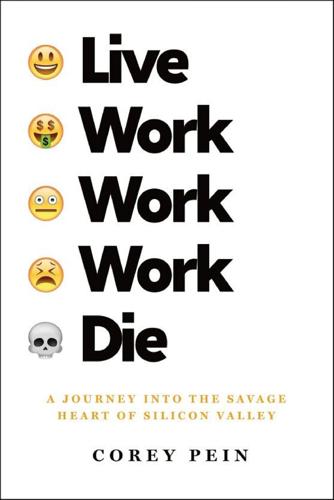
Live Work Work Work Die: A Journey Into the Savage Heart of Silicon Valley
by
Corey Pein
Published 23 Apr 2018
All the same, Thiel said, “You could never disown anything that you’ve written.” * * * The rise of the neoreactionaries was not exclusively a coup orchestrated from above with the help of powerful, well-connected hyperlibertarians like Thiel, Patri Friedman, and Trump’s campaign financier, the tech billionaire Robert Mercer. It was also a movement from below, embraced by thousands—and eventually perhaps by millions—of disaffected young people. While the neoreactionaries expounded at tiresome length about their aims, they revealed their individual motivations only in glimpses. Justine Tunney, the Google engineer–cum–Moldbug booster, provided one such peek inside the neoreactionary mind.
…
See PewDiePie Klein, Michael Klein, Roxanne Kleiner Perkins Kurzweil, Ray Laborize Land, Nick Lee, Rhoda Lifeboat Foundation Lifehacker Lifograph LinkedIn Lockheed Lockheed Martin Lombardi, Steven Lucas, George Luckey, Palmer Lyft Machine Intelligence Research Institute MacLeod, Ken Marshall, Brad Mason, Andrew McCauley, Raymond MCI Communications Mechanical Turk Meetup.com Mercer, Robert Microsoft Millionaires Society Miner, Bob Mishra, Pankaj Modi, Narendra Moldbug, Mencius. See Yarvin, Curtis Guy Monkeywrench International Moore, Gordon More, Max More Right Moritz, Michael Morozov, Evgeny Mossberg, Walt Muck Rack Musk, Elon Myers, PZ MySocialPetwork.com Nail, Rob NASA National Review National Science Foundation NerdWallet Netflix Netscape Newbridge Capital Newsweek New Yorker New York Times Nike Nimoy, Leonard Nissan Northrup Grumman Obama, Barack Odierno, Raymond Omni OpenBazaar Operation SLOG Oracle Othman, Ghazi Ben Outbrain Page, Larry Palantir Pando Pandora Patchwork Paul, Terry PayPal Paytm Pelosi, Nancy PepsiCo Petbu PewDiePie PharmaBot Plouffe, David Polous, James Poole, Chris Prabhakar, Hitha Procter & Gamble Product Hunt Quinn, Zoe Rand, Ayn Reagan, Ronald Reddit RentAFriend.com Reuters Rodger, Elliot Roof, Dylann Runway Sacks, David SAIC Samsung Sanders, Bernie San Francisco Chronicle San Jose Mercury News Sarkeesian, Anita SBIR Scalia, Antonin Schmidt, Eric Schulte, Todd Seasteading Institute SENS Research Foundation Sequoia Capital SF Weekly Shockley, William Silicon Valley Index Silk Road Singularity Singularity Is Near, The (Kurzweil) Singularity Summit Singularity University Sjöblad, Hannes Skinner, B.
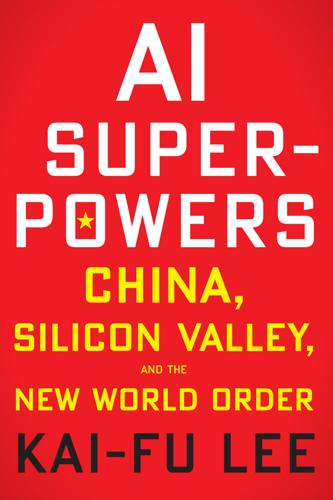
AI Superpowers: China, Silicon Valley, and the New World Order
by
Kai-Fu Lee
Published 14 Sep 2018
Using internet AI, Alibaba can recommend products you’re more likely to buy, Google can target you with ads you’re more likely to click on, and YouTube can suggest videos that you’re more likely to watch. Adopting those same methods in a different context, a company like Cambridge Analytica used Facebook data to better understand and target American voters during the 2016 presidential campaign. Revealingly, it was Robert Mercer, founder of Cambridge Analytica, who reportedly coined the famous phrase, “There’s no data like more data.” ALGORITHMS AND EDITORS First-wave AI has given birth to entirely new, AI-driven internet companies. China’s leader in this category is Jinri Toutiao (meaning “today’s headlines”; English name: “ByteDance”).
…
See also algorithms, AI chips and, 96 data and, 56 deep learning as part of, 6, 94 economy driven by, 25, 84, 91, 94–95 social investment stipend and, 221–22 machine reading, 161 machine translation, 104, 161 Manhattan Project, 85 Manpower, 47–48 market-driven startups, 26–27, 45 mass entrepreneurship and mass innovation, 54, 62–68, 99 McAfee, Andrew, 148–49, 150 McCarthy, John, 7 McKinsey Global Institute, 159–60 medical diagnosis, 113–15, 167, 195, 211. See also healthcare Meituan (Groupon clone), 23–24, 46–49, 72 Meituan Dianping, 49, 69, 70, 72 Mercer, Robert, 108 Messenger, 70 Mi AI speaker, 127 micro-finance, 112–13, 138 Microsoft AI chips and, 96 antitrust policy and, 28 China at time of founding of, 33 as dominant AI player, 83, 91 Face++ and, 90 Lee at, 28, 33, 105, 184 speech recognition, 93 Tencent and, 93 top researchers at, 93 Microsoft Research, 91 Microsoft Research Asia (formerly Microsoft Research China), 89–90, 105 Middle East, 137, 139, 169 mini-iPhones, 32 Minsky, Marvin, 7 mission-driven startups, 26, 45 MIT, 30 Mobike, 77–78 mobile payments, 16, 54–55, 60–61, 73–78, 79, 110 Momenta, 135 monopolies, 20, 96, 168–69, 170–71, 172, 229 Moravec, Hans, 166 Moravec’s Paradox, 166–67 Musical.ly, 109 Musk, Elon, 49, 131, 141 N Nanjing, China, 99 narrow AI, 10, 142 National Aeronautics and Space Administration (NASA), 3 natural-language processing, 105, 108, 115 Netherlands, 229 neural networks approach to AI, 7, 8–10, 89 new world order, 18–19, 20–21, 138–39 Ng, Andrew, 13, 44, 88, 93, 113–14, 144 99 Taxi, 137 Nixon, Richard, 207 North Africa, 138 Nuance, 105 Nuomi (group buying affiliate), 48–49 Nvidia, 96, 97, 135 O Obama, Barack, 97–98, 100, 104 object recognition, 9, 90, 94, 117.
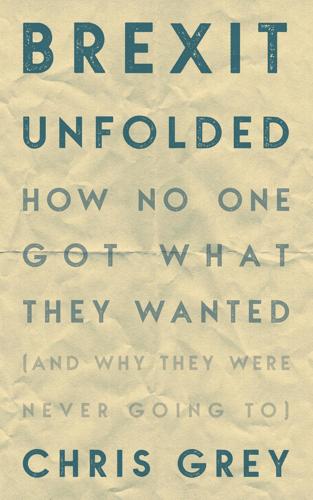
Brexit Unfolded: How No One Got What They Want (And Why They Were Never Going To)
by
Chris Grey
Published 22 Jun 2021
In particular, it’s instructive to recall how in the 1980s writers on the left, especially the sociologist Professor Stuart Hall, started to explain that Thatcher kept winning elections because contrary to the assumption of economic primacy, in Hall’s words, ‘material interests … are not escalators which automatically deliver people to their appointed destinations, “in place”, within the political ideological spectrum’.128 It’s an important insight that remains true. Coming to Brexit specifically, viewing leave voters as the unwitting dupes of ‘warlord’ or ‘disaster’ capitalism, funded by the likes of US hedge fund mogul Robert Mercer and supported by a network of libertarian think tanks, doesn’t take us anywhere. For whilst (some) remainers may believe that to be so, it has a precise mirror-image in the repeated claim made by (some) leavers that remainers are the mouthpieces of the ‘global elite’, funded by the likes of financier George Soros, one of the donors to the People’s Vote campaign, and supported by numerous liberal think tanks.
…
The Age of Britain in Europe’ 31 January 2020 The Gladstone Diaries (blog) http://gladstonediaries.blogspot.com/2020/01/brexit-in-historical-perspective-age-of.html 135 Stefan Stern, ‘The great Brexit “up yours”: How three decades of Euroscepticism made the UK go full tabloid’ Politics.co.uk 21 August 2019 https://www.politics.co.uk/comment-analysis/2019/08/21/the-great-brexit-up-yours-how-three-decades-of-euroscepticism-made-the-uk-go-full-tabloid/ 136 Margaret Thatcher, ‘Speech to the College of Europe (“The Bruges speech”)’ Margaret Thatcher Foundation 20 September 1988 https://www.margaretthatcher.org/document/107332 137 Anushka Asthana and Rowena Mason, ‘UK must leave European convention on human rights, says Theresa May’ The Guardian 25 April 2016 https://www.theguardian.com/politics/2016/apr/25/uk-must-leave-european-convention-on-human-rights-theresa-may-eu-referendum 138 James Blitz, ‘UK’s Brexit officials targeted with death threats and personal slurs’ Financial Times 20 October 2018 https://www.ft.com/content/a1def03a-d2fb-11e8-a9f2-7574db66bcd5 INDEX air travel 1 Article 1 ECJ ruling 1 extensions to leaving process 1, 2, 3, 4, 5, 6, 7 formally triggered 1 legal challenge 1, 2 not immediately triggered 1 parliamentary vote 1, 2 terms 1 time pressures 1, 2, 3 authenticity 1 automobile industry 1, 2, 3, 4 Baker, Steve 1, 2, 3 Barnier, Michel 1, 2, 3, 4, 5, 6 Barnier staircase 1, 2 Barwell, Gavin 1 Basu, Neil 1 BBC, Daily Politics 1 Benn Act (‘Surrender Act’) 1, 2, 3, 4 Benn, Hilary 1, 2, 3 Benn, Tony 1 Bercow, John 1, 2, 3 Bettel, Xavier 1 Biden, Joe 1 Blair, Tony 1, 2 Brady, Graham 1 Braverman, Suella 1 Brexit incompatibility of nationalist vs globalist ideas 1, 2 minimal scrutiny (2017 election campaign) 1 multiple models 1, 2, 3, 4, 5, 6 shifting terminology 1 symbolic act 1 see also outcome of Brexit; preparations for Brexit; process of Brexit; transition period ‘Brexit means Brexit’ 1 Brexit in name only (BRINO) 1, 2 Brexit Party 1, 2, 3, 4, 5, 6, 7 Brexit Ultras dissatisfaction with outcome 1, 2, 3, 4, 5 and the Irish border 1 repudiation of Withdrawal Agreement 1 Withdrawal Agreement Bill debate 1 see also European Research Group (ERG); UKIP; Brexit Party Brexiters definition 1n ill-equipped for delivering Brexit 1 misconceptions 1 motivations 1 privileged elite 1 promises 1, 2, 3, 4, 5 psychology of betrayal and victimhood 1, 2, 3, 4 Brown, Gordon 1, 2 budget contributions see financial settlement Cable, Sir Vince 1 Cameron, David 1, 2, 3, 4, 5 Canada, CETA (Comprehensive Economic and Trade Agreement) 1 Canada option see hard Brexit (Canada option) CANZUK (Canada, Australia, New Zealand and United Kingdom) confederation 1 care system, EU workers 1 Carney, Mark 1, 2 Carswell, Douglas 1 Chequers proposal (July 2018) 1, 2, 3, 4 China, global rise 1 citizens’ rights 1, 2, 3, 4 see also free movement of people civil service, Brexiter criticisms 1, 2 Clarke, Kenneth 1, 2, 3 Cockfield, Lord 1 Connelly, Tony 1 Conservative Party election manifesto (2017) 1, 2 internal divisions 1, 2, 3 leadership contest 1 loss of whip for rebels 1, 2 Malthouse Compromise (January 2019) 1, 2 May’s conference speech (2016) 1 single market enthusiasm 1 Thatcher’s Bruges speech 1, 2 see also Brexit Ultras; European Research Group (ERG) Cooper, Yvette 1, 2, 3 Corbyn, Jeremy ambiguous Brexit role 1, 2, 3, 4 Brexiter enabler 1, 2, 3 election campaign (2019) 1 meetings with May 1 coronavirus pandemic 1, 2 Cox, Geoffrey 1 culture war (Brexiter/remainer) 1, 2 Cummings, Dominic 1, 2, 3, 4, 5, 6, 7 Customs Bill 1 customs union background 1 Chequers proposal 1 EU Withdrawal Bill 1 possible UK membership 1 UK membership ruled out 1 UK white paper (February 2017) 1 Daily Mail 1, 2 Davis, David 1 Brexit promises 1, 2 on free trade agreement 1, 2 and Irish border 1 on Joint Report 1 negotiating failures 1, 2, 3 resignation 1 single market 1 on transition period 1 white paper (February 2017) 1 Democratic Unionist Party (DUP) Conservative government support 1, 2 election manifesto (2017) 1 Irish border issue 1, 2 objections to Withdrawal Agreement 1 potential threats from Brexit 1, 2 support for Brexit 1 Department for Exiting the European Union (DExEU) 1, 2, 3n disaster capitalism 1 Duncan Smith, Iain 1 economy business concerns 1 claims of Brexit benefits 1 coronavirus impacts 1 effects of referendum result 1 long-term prospects 1 minimal general election scrutiny 1 Project Fear 1, 2 Elliott, Larry 1 England, referendum result 1 Euratom 1 European Banking Authority (EBA) 1 European Capital of Culture (2023) 1 European Convention on Human Rights (ECHR) 1 European Court of Justice (ECJ) citizens’ rights 1, 2, 3 negotiations 1, 2, 3, 4, 5 role 1 single market rules 1 UK and Article 1 ruling 2 UK jurisdiction 1, 2, 3 white paper (February 2017) 1 European Economic Community, UK membership 1, 2 European Free Trade Association (EFTA) 1 European Medicines Agency (EMA) 1 European Parliament elections 1 ratification of exit deal 1, 2 European Research Group (ERG) and Covid Recovery Group 1, 2 demands for true Brexit 1, 2 and the Irish border 1 and May’s proposals 1 parliamentary scrutiny 1, 2 proposals 1 see also Brexit Ultras European Union Cameron renegotiation 1 hypothetical negotiating scenario 1 negotiating as a bloc 1, 2 UK future relations 1 UK membership benefits 1 experts 1, 2 Farage, Nigel 1 changing definition of true Brexit 1, 2, 3, 4 on Corbyn 1 coronavirus restrictions 1 election (2019) 1, 2 European election (2019) 1, 2 privileged elite 1 referendum result 1 financial settlement hypothetical scenario 1 negotiations 1, 2, 3 UK’s budget contributions 1, 2 fisheries 1 Flexcit (flexible continuous exit) 1 Florence speech (September 2017) 1 Fox, Liam 1, 2, 3, 4, 5, 6, 7, 8 Francois, Mark 1 free movement of people 1, 2, 3, 4, 5 see also citizens’ rights; immigration Frost, David 1, 2 General Agreement on Tariffs and Trade, Article XXIV 1, 2, 3 general election (2017) 1 general election (2019) 1 Germany, automobile industry 1, 2 Gibraltar 1 Global Britain 1 Good Friday (Belfast) Agreement (GFA) 1, 2 Gove, Michael 1, 2, 3, 4, 5, 6, 7 Green, Damian 1 Green, David Allen 1 Green Party 1 Greening, Justine 1 Greenland, EU departure 1 Grieve, Dominic 1 Hall, Stuart 1 Hammond, Philip 1, 2, 3, 4 Hannan, Daniel 1 hard Brexit (Canada option) ‘Canada-style’ deal confusion 1 definition 1 draft Withdrawal Agreement (November 2018) 1 first hints 1 mandate claimed by Brexiters 1 May’s Lancaster House speech (January 2017) 1 Hargreaves, Peter 1 Hartley-Brewer, Julia 1 Heaton-Harris, Chris 1 High Court, ruling on EU leaving process 1 Hill, Fiona 1 Hoey, Kate 1 House of Commons Benn Act (‘Surrender Act’) 1, 2, 3, 4 Brady amendment 1 Cooper Act 1 Customs Bill 1 gridlock 1 Grieve amendment 1 indicative votes 1 Johnson’s deal defeated 1 Kyle–Wilson plan 1, 2 Letwin motions 1, 2, 3 meaningful vote debate and rebellions 1 meaningful vote deferral 1 meaningful vote on Johnson deal disallowed 1, 2 meaningful votes defeated 1, 2, 3 no confirmatory vote on referendum result 1, 2 Parliament takes control of business 1 prorogation 1 provision of meaningful vote on final terms 1 third meaningful vote disallowed 1 Trade and Cooperation Agreement vote 1 vote on triggering Article 1 55, 2 see also Withdrawal Agreement Bill Howard of Lympne, Lord 1 Hungary 1 Hunt, Jeremy 1 immigration 1, 2, 3, 4, 5, 6 see also free movement of people Internal Market Bill (IMB) 1, 2 Ireland Common Travel Area 1 economic effects of Brexit 1 Irish reunification prospect 1, 2 support for EU membership 1 see also Irish border Irexit 1 Irish border backstop arrangements 1, 2, 3, 4 backstop legal advice 1 backstop renegotiations 1 Brexiter misconceptions 1, 2 differences between May and Johnson deals 1 draft Withdrawal Agreement (November 2018) 1, 2 ‘dual customs solution’ 1 frontstop 1, 2, 3, 4 historical background 1 insoluble problem 1 Johnson deal 1, 2 negotiations 1, 2 no preparations necessary 1 referendum campaign warnings 1 technological solutions 1, 2, 3, 4, 5 ‘two customs’ solution 1 Withdrawal Agreement Bill 1 Irish Times 1 Johnson, Boris 1, 2 Brexit promises 1, 2 election campaign (2019) 1 Foreign Secretary 1 on Irish backstop 1 on Irish border 1, 2 misunderstanding of Brexit complexities 1, 2, 3 opposition to Article 1 extension 2 ‘oven-ready’ Brexit 1, 2 party leader and Prime Minister 1 privileged elite 1 reaction to prorogation failure 1 reputation as untrustworthy 1, 2, 3 resigns as Foreign Secretary 1, 2, 3 Vote Leave Cabinet and advisers 1, 2, 3 votes for Withdrawal Agreement 1 Johnson, Jo 1 Juncker, Jean-Claude 1, 2, 3 Kawczynski, Daniel 1 Kwarteng, Kwasi 1 Kyle–Wilson plan 1, 2 Labour Party Article 1 Commons vote 2 Brexit policy 1, 2, 3, 4 election campaign (2019) 1 election manifesto (2017) 1 historical relations with EU 1, 2, 3 and immigration 1 on transition period 1 Lancaster House speech (January 2017) 1 Lawson, Nigel 1 Leave Alliance 1 Lee, Phillip 1 Letwin, Sir Oliver 1, 2, 3, 4 Level Playing Field (LPF) 1, 2, 3 Lewis, Brandon 1, 2 Lexiters (left-wing Brexiters) 1, 2, 3, 4, 5 Liberal Democrats 1, 2, 3, 4 Longworth, John 1, 2 Major, Sir John 1, 2 Malthouse Compromise (January 2019) 1, 2 ‘managed no deal’ 1, 2, 3 May, Theresa calls general election 1 character 1, 2 Chequers proposal (July 2018) 1 Commons vote on Article 1 2 conference speech (2016) 1 criticism 1 duty to deliver Brexit 1, 2 on financial settlement 1 Florence speech (September 2017) 1 Lancaster House speech (January 2017) 1 leadership style 1, 2 national tour 1 no confidence leadership vote 1 ‘no deal is better than a bad deal’ 1, 2 Prime Minister 1 reliance on DUP 1, 2 remain campaigner 1 request for EU to suggest terms 1, 2 resignation 1 sequenced vs parallel talks 1 televised address 1 media 1 Mercer, Robert 1 Merkel, Angela 1, 2 Middle England (Coe) 1 Miller, Gina 1 Monbiot, George 1 Morgan, Nicky 1 MPs, abuse and intimidation 1 NAFTA (North American Free Trade Agreement) 1 negotiations British unpreparedness 1, 2 Chequers proposal (July 2018) 1, 2 Chequers proposal rejected by EU 1, 2 conflation of exit and future terms deals 1, 2, 3, 4, 5, 6, 7, 8 draft Withdrawal Agreement (November 2018) 1 EU draft guidelines (March 2017) 1 EU draft Withdrawal Agreement rejected (February 2018) 1 hypothetical scenario 1 Joint Report (December 2017) 1 lack of clarity from UK 1, 2 May’s Florence speech (September 2017) 1 mistrust of British 1, 2, 3, 4, 5 phase one agreement 1 Political Declaration 1, 2, 3 Tusk’s comments 1 UK position papers (2017) 1 UK white paper (February 2017) 1, 2, 3, 4 see also trade negotiations Nixon, Richard 1 ‘no deal is better than a bad deal’ 1, 2 no-deal Brexit (WTO option) Brexiter demand 1 change in meaning 1 damage to EU–UK trade 1 definition 1 ‘Go WTO’ 1 Letwin amendment 1 ‘managed no deal’ 1, 2, 3 misunderstandings and contradictions 1, 2 terms 1 UK enthusiasm 1 UK preparations 1 non-tariff barriers (NTBs) 1, 2 North, Richard 1 Northern Ireland historical background 1 Irish reunification prospect 1, 2 referendum result 1, 2 security situation 1 see also Irish border Northern Ireland Assembly 1, 2, 3n Northern Ireland Protocol 1, 2, 3, 4 Norway 1, 2 Norway option see soft Brexit (Norway option) Operation Yellowhammer 1 O’Toole, Fintan 1 outcome of Brexit Brexiter victimhood psychology 1, 2, 3, 4 Brexiter/remainer culture war 1, 2 expectation that things would carry on as usual 1 future prospects 1 misleading and false claims 1, 2, 3, 4 never predetermined 1, 2 ‘oven-ready’ Brexit 1, 2 Paterson, Owen 1 Patten, Chris 1 People’s Vote campaign 1, 2, 3, 4, 5 Plaid Cymru 1 planning for Brexit, contradictory and ambiguous 1 Poland 1 Political Declaration 1, 2, 3, 4, 5 political integration 1 populist authenticity 1 preparations for Brexit business advice 1 customs and regulatory checks 1 hampered 1 for individuals 1 information campaigns 1 military planning 1 Operation Yellowhammer 1 Private Eye 1 process of Brexit extensions to leaving process 1, 2, 3, 4, 5, 6, 7 impatience with time taken 1, 2 lack of definition 1 ongoing 1 sequenced vs parallel talks (withdrawal and future terms agreements) 1, 2, 3, 4, 5, 6, 7, 8 time pressure of Article 1 process 2, 3, 4 Project Fear 1, 2, 3, 4, 5 prorogation 1 public opinion ambivalence over Brexit 1 on Brexit negotiations 1 economic damage of Brexit 1 polarisation 1, 2, 3, 4 Second World War nostalgia 1 on single market membership 1 Raab, Dominic 1, 2, 3, 4, 5 Redwood, John 1, 2 Rees-Mogg, Jacob 1, 2, 3, 4, 5 referendum (1975) 1 referendum (June 2016) advisory nature 1, 2 claims of irregularities 1 government leaflet 1 immediate economic effects 1 leave/remain voter demographics 1 no Commons confirmatory vote 1, 2 Project Fear 1, 2, 3, 4 result 1 Robbins, Olly 1 Rogers, Sir Ivan 1 Saunders, Robert 1 Schengen Area 1 Scotland 1, 2 Scottish National Party (SNP) 1 Second World War nostalgia 1, 2 security cooperation 1 services trade 1, 2, 3 single market Chequers proposal 1 confusion with free trade agreement 1, 2, 3, 4 EFTA member state access 1 four freedoms of movement 1 hypothetical scenario 1 prior UK enthusiasm 1 public preference 1 UK access debate 1, 2 UK membership rejected 1 UK white paper (February 2017) 1 soft Brexit ‘Brexit in name only’ (BRINO) 1 Flexcit (flexible continuous exit) 1 viability 1 soft Brexit (Norway option) 1, 2, 3, 4, 5 Soros, George 1 Soubry, Anna 1 sovereign equality 1, 2 sovereignty 1, 2, 3, 4, 5 Spain, Gibraltar issue 1 Starmer, Sir Keir 1, 2 state aid 1, 2 Stewart, Rory 1 Supreme Court rulings EU leaving process 1 prorogation 1, 2 Switzerland 1, 2, 3 terrorism threat 1 Thatcher, Margaret 1, 2 Timothy, Nick 1, 2 trade customs and regulatory checks 1 possible UK–US deal 1, 2 potential damage to EU–UK trade from hard Brexit 1 UK–EU trade statistics 1, 2 UK/non-EU countries 1 Trade and Cooperation Agreement (2020) Commons vote 1 conflation with Withdrawal Agreement 1, 2, 3, 4 confusion over timing 1 fisheries 1 governance 1 outstanding issues 1 terms 1 trade negotiations Barnier staircase 1 ‘final’ deadlines 1 governance mechanism 1 impossibility of frictionless trade 1, 2 ‘last-minute blink’ theory 1, 2 Level Playing Field 1, 2 possible options 1 single market membership vs free trade agreement 1, 2, 3, 4 third-country precedents 1 UK–EU deal 1, 2, 3 UK Future Relationship document 1 UK as ‘sovereign equal’ 1, 2 Vote Leave free zone promises 1, 2 zero tariff, zero quotas 1, 2, 3, 4 transition period differences over length 1 draft Withdrawal Agreement (November 2018) 1 expiry date 1 May’s acceptance 1 UK refusal to extend 1, 2, 3 Withdrawal Agreement 1 Trump, Donald 1, 2, 3 Turkey 1 Tusk, Donald 1, 2, 3, 4 UKIP (United Kingdom Independence Party) 1, 2, 3 Umunna, Chuka 1 United States, relations with UK 1, 2 Varadkar, Leo 1, 2 Villiers, Theresa 1 Vote Leave campaign and controlled immigration 1 free trade zone promises 1, 2 future terms promise 1 misleading economic claims 1 promises 1 slogan 1 time-frame claims 1 version of Brexit not specified 1, 2 Wales, referendum result 1 Weyand, Sabine 1 white paper (February 2017) 1, 2, 3, 4 Withdrawal Agreement Brexit Ultra repudiation 1 conflation with future terms agreement 1, 2, 3, 4, 5 draft (November 2018) 1 signature 1 UK’s lack of clarity on terms 1 UK’s unilateral change proposals 1 Withdrawal Agreement Bill Commons amendment 1 customs arrangement 1 enacted 1 government loses on meaningful vote requirement 1 Lords amendment 1 passes second reading 1 timescale for debate 1, 2 WTO (World Trade Organization) most favoured nation (MFN) terms 1 see also no-deal Brexit (WTO option) COPYRIGHT First published in Great Britain in 2021 by Biteback Publishing Ltd, London Copyright © Chris Grey 2021 Chris Grey has asserted his right under the Copyright, Designs and Patents Act 1988 to be identified as the author of this work.
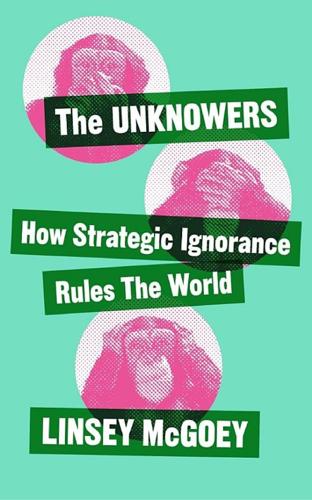
The Unknowers: How Strategic Ignorance Rules the World
by
Linsey McGoey
Published 14 Sep 2019
Buchanan’s defining character trait is that he is too insulated by his own wealth to recognize his own ignorance: he has no knowledge of how much he does not know. If we take a look around, we can recognize the Tom Buchanans and the Henry Fords of today. Take, for example, the big money support for right-wing publications like Breitbart and Fox News. Both in the past and now, it’s figures such as Ford in the 1920s and people such as Robert Mercer and Rupert Murdoch today whose money is used to fuel racially charged hostility in towns and cities across America and Britain. Mercer is a computer scientist who made a fortune through a hedge fund and used his money to back alt-right media vehicles such as Breitbart. Whether or not Mercer or Murdoch personally hold racist views is not certain: Mercer has strongly denied this.
…
, 108–9 inherited privilege, 182–4 inherited wealth, 200 institutional ignorance, 33–4, 294–5 International Monetary Fund, 33–4, 137 Iraq war, 17, 31–2, 52 Jews, anti-Semitism, 79–81, 97–8 Johann-Liang, Rosemary, 273 judiciary, 199 Kant, Immanuel, 9, 308–9, 318–19 Kelsey, Frances Oldham, 254, 255–8 Kendall, Tim, 249–52, 286–7 Kerviel, Jérôme, 120 Ketek, 269–77; adverse reactions, 253–4, 271, 272–4; drug trial irregularities, 271–2, 274–7; FDA failings, 269–70, 272–3; labelling, 273; reliance on expert ignorance, 276–7; withdrawal, 253 Keynes, John Maynard, 31, 167, 170, 172–3 Khurana, Rakesh, 118–19 Kim, Jim Yong, 219–20 Kirkman-Campbell, Anne, 270–2, 274–6, 276–7 Knight, Frank, 133–4, 152 knowledge: derived from torture, 74–5; equal unknowers, 47–9; low desire for knowledge of life events, 38–9; political knowledge, 66–7, 95–6 known unknowns, 52 Koch, Charles and David, 65, 237, 238, 244 Kuttner, Stuart, 103–4 labour: Adam Smith’s wage labourers, 139; domestic labour, 125; exploitation, 129–30; weakened labour protection, 134, 137, 218–20; see also servitude; slavery laissez-faire economy, 20, 21, 126–7, 194–5, 200 The Lancet, 252, 259, 286 language, in ignorance pathways, 168, 169, 200–1 Lay, Kenneth, 235 Leeson, Nick, 120 Leveson inquiry, 109, 110–11 Lippmann, Walter, 16 List, Friedrich, 188–91 Liverpool Football Club, 88–9 Lorde, Audre, 18, 163, 317–18, 319–21, 326–8 Loveland, Douglas, 274, 275 Macdonald, John A., 26–7, 28, 313 McIntosh, Glenn, 288–90 macro-ignorance, 12–15, 169, 225–6 Madison, James, 47 Mandeville, Bernard, 248 Mankiw, Gregory, 132; Macroeconomics, 152–3, 216 marginal productivity theory, 76, 130–5, 152–3 market fundamentalism, 4–5, 6–7, 13 Mason, Paul, 43 Mazzucato, Mariana, 152, 304; The Value of Everything, 134–5 meat industry, 255 medical experiments, 72 Medicines Act (1968) (UK), 291–2 Medicines and Healthcare Products Regulatory Agency (MHRA): antidepressant reviews, 282–6; dependence on pharmaceutical companies, 278, 284–5; GlaxoSmithKlein investigation, 252, 290, 291–2; non-prosecutions, 252, 253, 278, 291, 292; unpublished medical trials, 251–2, 286; useful unknowns, 51 Meikson Woods, Ellen, 296 Mens Rea Reform Act (US), 236–44 mental health: National Collaborating Centre, 249–50; see also antidepressants Mercer, Robert, 85–6, 87 Merck, 258–61 Merrell, 256, 257 Meyer, Eugene, 219 MHRA see Medicines and Healthcare Products Regulatory Agency (MHRA) micro-ignorance, 12–15, 141–2, 168, 225–6 Middle East, 14–15, 68–9, 202–3 Mill, George, 159 Mill, James, 161 Mill, John Stuart, 37, 41; as an ‘unknower’, 156–7, 162, 299; Autobiography, 157–60; Britain’s peaceful global dominance, 202, 203; co-authorship with wife and stepdaughter, 7, 60–1, 153, 157–60; Considerations on Representative Government, 161; and the coolie trade, 155–6; On Liberty, 7, 60–1, 153, 158, 166; Principles of Political Economy, 158; The Subjection of Women, 202, 203; voter franchise limitations, 156 Mills, Charles, 45, 304 mining companies, 185, 222–4 Miranda, Lin-Manuel, 193 Mishra, Pankaj, 44, 304 Monod, Jacques, 6 Montesquieu, Albert de Secondat, 29 Mosholder, Andrew, 287–8 Mulcaire, Glenn, 104, 105, 106, 112–13 multinational companies, 185, 219, 222–4 Murdoch, Elisabeth, 101, 115–16, 117 Murdoch, James, 100, 102 Murdoch, Lachlan, 102 Murdoch, Rupert: ignorance of phone hacking, 19; and racist news outlets, 85–6; select committee appearance, 99, 100–1, 114; Sun office meeting, 114–15; wilful blindness, 101–2 Muttitt, Greg, 32 Nasaw, David, 207, 208, 210 Nazism, 72, 74 neoclassical theory, 130–3, 303 Nevsun Resources, 223–4 New York Times, 54–5, 87, 238 News Corporation, 115–16, 117, 119–20, 274–5; see also phone hacking News of the World: Gordon Taylor lawsuit, 105–6; phone hacking, 19, 99, 101, 102–3; use of private investigators, 103–4 Nobel prize, 60–1 Nuremberg Code, 72 Obama, Barack, 82, 91–2, 148–9 oil companies: and Iraq war, 31–2; Standard Oil, 4, 211–14 On Liberty (Mill), 7, 60–1, 153, 158, 166 Open Society (Popper), 164 Operation Motorman, 107–8 oracular power: Brennan’s ‘simulated oracle’ test, 66–7, 95–6; concept, 16, 61–2; divine providence, 67–9; financial advisors, 67; historical context, 62–4; mainstream economic theories, 217; natural and social scientists, 64–7 Orwell, George, 129, 131–2, 164, 168, 225, 309–10 Ostrich instruction, 21, 228, 231–2; see also wilful ignorance Owens, Alec, 109–11 Paine, Thomas: ‘Agrarian Justice’, 183–4; blame-shifting, 180, 307; on divine providence, 174; and elite ignorance, 18–19; on hereditary privilege, 182–4, 308; Rights of Man, 149, 183 Patnaik, Utsa, 44, 304 pharmaceutical industry: damage settlements, 261; distortion of evidence, 11–12, 75; fear of reputational damage, 263–4; fraud, 22; medical trial data, 250–2, 259–60, 262; Merck settlement, 261; presumption of innocence, 291, 292–3; regulation seen as barrier to progress, 257–8; UK’s weak regulatory system, 252–3, 278, 291, 292; useful unknowns, 51, 257; Vioxx and heart failure, 258–62; see also drug trials; drugs philanthropy, 97–8, 204, 308 phone hacking: Caryatid Operation, 112–13; and corporate ignorance, 19; Culture, Media and Sport Committee report, 99–101; Gordon Taylor lawsuit, 105–6; ICO failure to pursue journalists, 109–12; method, 104–5; News of the World, 19, 99, 101, 102–3; victims, 19, 100, 105–6, 112 Pinker, Steven: Bannon-Pinker conundrum, 34–5; Enlightenment Now, 20, 36, 37, 135–6, 142, 202, 203, 224; globalization, 175; information avoidance theories, 37–8; poverty and in-country inequality, 36–7; on wealth distribution, 147–8 Plato, 164, 296, 297 plausible deniability, 56, 120 political deceptions, 30–1 political liberalism, 41 Popper, Karl, 163–5, 297–8; Open Society, 164 positive-sum theory, 123, 136, 147 Powell, Enoch, 68 press freedom, 199 Preston, Lewis, 219 prisoners of war, 72–3 private investigators, 103–4, 107–8 Proctor, Robert, 11 The Protocols of the Elders of Zion, 79–81 Prozac, 280–1, 289, 290 Pulquero, Ramiro Obrajero, 272 Puri, Poonam, 222–3, 304 race realism, 48 racial exploitation, 304 racism, 45, 48, 84–7, 319 Rampell, Catherine, 171, 217 rational ignorance, 46–7 Rawls, John, ‘veil of ignorance’, 8–9, 46 Reagan, Ronald, 68 reckless ignorance, 54–6, 235, 304 regulation: Adam Smith legacy, 20–1, 121, 126–7, 136–7, 140–1; anti-regulation stance, 246–8, 258, 303, 307; Hayek’s disdain, 248, 301, 303; pharmaceutical industry, 252–3, 257–8, 278, 291, 292; Tocqueville’s recommendations, 20–1, 197–200, 301 rent, 128 rent-seeking, 127–8, 131, 132 Rhodes, Cecil, 313 Ricardo, David, 186–7 Robbins, Lionel, 146 Robins, Nick, 180–1 Robinson, Joan, 133, 135, 147, 152 Rockefeller, John D.: belief in self-made success, 205, 214; beneficiary of laissez-faire practices, 205–6; deceitful opposition to anti-monopoly legislation, 4; master of ignorance, 20; new cooperation principle, 215; philanthropy, 204; secretive railroad deals, 211–13; South Improvement Company cartel, 213; Standard Oil, 4, 211–14; strategic ignorance of business takeovers, 213–14 Roosevelt, Franklin D., 196 Rosenfeld, Sophia, 58 Ross, David, 269–70, 272–3 Rumsfeld, Donald, 52 Samuelson, Paul, 134, 152 sanctioned ignorance, 40–2 Sand, George, 166–7, 324–6 Sanofi-Aventis, 269–77 Sarch, Alexander, 231–2, 233–5, 304 Sartre, Jean-Paul, 293–4 Schiebinger, Londa, 11 Schwartz, Anna, 54–5, 59–61 science, 8, 64–7 scientific racism, 48, 319 Scotland Yard, 112–14 Scott, Tom, 207, 212 Securities and Exchange Commission (SEC), 53–4 self-interest, 125–6, 126, 136, 139–40 Seroxat, 250–2, 282 servitude, 41–2, 44, 155–6 Shapiro, Aaron, 79 shared prosperity theory, 123, 136, 147 Sherman, Rachel, 117–18 Shine lawsuit, 115–16, 117 Simons, Henry, 246 Simpson, Jeffrey, 28 Sinclair, Niigaanwewidam James, 27 Sinclair, Upton, The Jungle, 255 slavery, 43–4, 205; see also servitude Smarsh, Sarah, 84 smarts see strong/smart groups Smith, Adam, 9; Britain a nation of shopkeepers, 192; criticism of monopoly protections, 127–9; criticisms of merchants, 247, 320; economic classes of society, 138–40, 143; and economic inequality, 136; on government regulation, 20–1, 121, 126–7, 136–7, 140–1; his mother’s influence, 125; inevitability of conflict, 186; misrepresentation of his ideas, 142–6, 310–12; on relative poverty, 142–3; on self-interest, 126, 136; strategic and wilful ignorance of, 122–3; tiered justice system, 121; timing and motives for helping the poor, 245; trade protectionism, 186, 190–1; on wealth distribution, 142–4, 191; Wealth of Nations, 6–7, 121, 125–6, 136, 169, 189, 245; Wealth of Nations abridged versions, 144–6 Smith, David, 109–10 snowmobile fallacy, 241–3 social silence, 53 Société Générale, 120 Socrates, 45, 63 Somin, Ilya, 94–5, 96 Sorel, Georges, 17 Soviet Union, uncomfortable facts, 5, 13 Spivak, Gayatri, 40–1 SSRI drugs see antidepressants Standard Oil, 4, 211–14 Steinzor, Rena, 244–5 Stewart, Maria W., 130–1 Stigler, George, 133, 246–7, 248 strategic ignorance: autocratic exploitation, 69–71; business practices, 20, 205; Carnegie, 208–10; corporate anonymity, 45–6; definition, 3; of drone strikes, 91–2; economic theory, 122–3; emancipatory nature, 315–17; exposure efforts treated as inexcusable, 269–70; Ford, 79–81, 98; MHRA’s non-prosecution record, 291–2, 293–4; and political networks, 22; Rockefeller, 213–14 strong/smart groups, 16–17, 69–71, 77, 173–4, 312–13 student loans, 185 Suez crisis, 31 suicide rates, 307 Sun, 114–15 Sutherland, Kathryn, 145–6, 159 Syll, Lars, 187 Symons, Baroness, 32 taxation, Paine’s proposals, 184, 308 Taylor, Gordon, 105–6 Taylor, Harriet, 7, 60–1, 153, 157–60, 166, 299 Taylor, Helen, 157–60 Taylor, Keeanga-Yamahtta, 68 Teicher, Martin, 280 Temple, Robert, 287–8 Tett, Gillian, 53 Thalidomide, 254, 256–8 think tanks, 65 Thomas, Richard, 110, 111 Tillerson, Rex, 214 tobacco industry, 51 Tocqueville, Alexis de: Democracy in America, 197–200, 309, 322–3; and divine providence, 322–4; French workers, 325–6; government regulation of industry, 20–1, 197–200, 301; prejudice against women, 166–7, 324–6 torture, 72–5 trade: free trade, 17–13, 57, 200–1; mercantilism, 169–70, 171; protectionism, 186, 188, 190–1; Ricardo’s comparative advantage theory, 186–8; US policy, 171, 188, 190, 217 Trefgarne, George, 179–80 Trump, Donald: class myths of voter support, 81–4, 162, 163; elite ignorance, 90–1, 93–4; on history, 314; on Obama, 82, 148–9; presidential election, 19; selective use of facts, 92–4; on torture, 73–4; and truth, 17; wealthy backers, 83–4 truth, liberating potential, 9–10 United Kingdom: male enfranchisement, 42; market interventionism, 43–4; military interventions, 14–15; Suez crisis, 31; trade policies, 44, 57, 186, 190–1; weak regulation of pharmaceutical companies, 252–3, 278, 291–2 United States: conscription, 14–15; drone strikes, 91–2; in-country inequality, 14–15, 36–7; labour oppression, 129–30; laissez-faire policies, 194–5; military interventions, 14–15, 68–9, 185; New Deal, 196; origins myths, 169; suicide rates, 307; trade policies, 171, 188, 190, 217; War Crimes Act (1996), 73; workplace deaths, 219–20 United States Department of Justice, 102, 238, 252, 261 Unser, Bobby, 242–3 unwitting ignorance, 42, 122–3 useful unknowns, 51–6, 257, 277 utilitarianism, 8, 155 ‘veil of ignorance’, 8–9, 46 Viner, Jacob, 300, 302–3 Vinson and Elkins, 235 Vioxx, 258–62 von Eschenbach, Andrew, 273 voter ignorance: Brexit, 82–3, 89–90, 162; collective, shared problem, 243–4; definition, 94; justification for disenfranchisement, 70, 156, 174; political knowledge test, 66–7, 95–6; solutions, 94–5; Trump election, 19, 162; see also democracy, and disenfranchisement War Crimes Act (1996) (US), 73 Washington Consensus, 34 Washington Post, 89, 171, 217, 257 Watkins, Sherron, 235 Watson, Mathew, 187, 188 wealth: evidence of intelligence, 77, 81; financial oligarchy, 65; ignorance and inherited wealth, 139; inherited wealth, 117–18; and morality, 162–3; and racism, 84–7; US voter support for Trump, 83–4, 162, 163 wealth inequality: effect on social wellbeing, 135, 147; God’s will, 75–7; growth, 137; in-country inequality, 36–7; India-England, 129; legitimisation, 75–6; as natural law, 71; relative poverty, 143 Wealth of Nations (Smith), 6–7, 121, 125–6, 136, 169, 189; abridged versions, 144–6 Weber, Max The Protestant Ethic and the Spirit of Capitalism, 67 welfare systems, 185–6 wellbeing, and inequality, 135, 147 whistle-blowers, 40, 262–3 White, William Allen, 81, 97, 111–12 white-collar crime, Mens Rea Reform Act, 236–44 Whittam Smith, Andreas, 102 Whittamore, Steve, 107–8, 109, 110 wilful ignorance: definition, 21–2, 228–9; difficult to prove, 22; Enron, 21–2; equal culpability thesis, 233–5; financial law, 239–40; first court appearances, 227–8; Grenfell Tower fire, 24–6; ‘ignorance doesn’t excuse’ principle, 231–3, 239–40; News International, 274–5; and reckless ignorance, 235; Rupert Murdoch, 101–2; suspected fraud Ketek trials fraud, 271–2, 274–7 Williams, Zoe, 90 Williamson, Kevin, 83 Wollstonecraft, Mary, 20–1, 163, 317; economic fairness, 122; family background and social norms, 268, 269; legacy, 151–2; on mixed education, 312; ‘Rights of Men’ rebuttal of Burke, 149, 150–1 women: domestic violence, 59; ignorance of co-authorship, 7, 60–1; minority women, 59 Woods, Kent, 285–6, 290–1, 292 workplace health and safety, 217, 218–19, 238 World Bank: disputed assumption of neutrality, 221–2; Employing Workers Indicator, 225; institutional ignorance, 33–4; presidents, 219–20; weakened labour protection, 137, 218–20 Zinn, Howard, 196
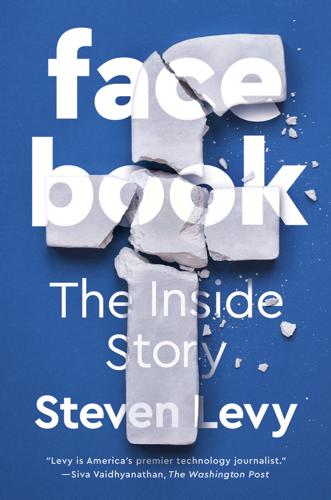
Facebook: The Inside Story
by
Steven Levy
Published 25 Feb 2020
Somehow the gay nerd and the proto–white nationalist bonded. “It felt like we were flirting,” Wylie would later write about their data-wonky intellectual jam sessions. Soon they were hatching a plan for SCL to enter America. Bannon set up a meeting with a wealthy funder of right-wing causes named Robert Mercer. Before making his fortune in hedge funds, Mercer had been a celebrated IBM researcher, so SCL’s promise to change voting behavior resonated with him. He agreed to fund the subsidiary. In December 2013, “Cambridge Analytica” was registered in Delaware. The name came from Bannon, who liked the implication that it was involved with the university.
…
(Later, a Cambridge Analytica executive would explain that the team was headed to a party in Washington, DC, and the random person left in the office hung up on Davies.) He put the story aside. But in the fall of 2015, Davies came across a Politico article that explained the relationship between SCL and Cambridge Analytica, the connection to Robert Mercer, and that the Ted Cruz presidential campaign was using the data. Davies dug back into the documents and in spare time from his researching duties, put together the story: how Kogan had gathered the data for a research project and then, violating Facebook’s standards, sold it to Cambridge Analytica.
…
A feature writer and investigative journalist known for deep dives into her topics, often with a participatory twist (like working in an Amazon warehouse), Cadwalladr had become fascinated with what she perceived as the pernicious influence of big tech companies. In 2016, she began investigating Cambridge Analytica. She wrote a series of articles about the company—its involvement in Brexit, its methods, its ties to Robert Mercer and the ultraconservative movement that had backed Trump. And the Facebook data that Kogan had been called out for in December 2015. She lit on Wylie as the key to the story. When she first contacted him in March 2017, he was wary, but eventually he handed over documents that helped inform her stories.
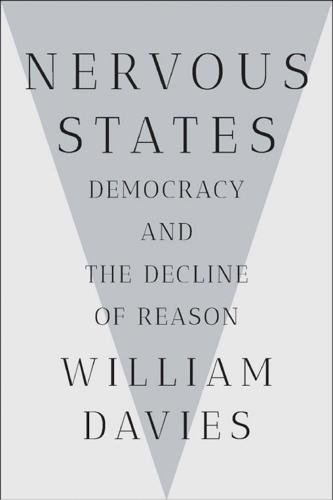
Nervous States: Democracy and the Decline of Reason
by
William Davies
Published 26 Feb 2019
Granted this, it would be unreasonable to deny that a society is likely to get a better elite if ascent is not limited to one generation, if individuals are not deliberately made to start from the same level.27 In our new age of extreme personal wealth, billionaire owners of private companies such as the Koch brothers or Robert Mercer, the hedge-fund billionaire who has backed various populist and alt-right campaigns including Breitbart media, have huge political autonomy, without needing to be public about how they’re using it. Facebook and Google are now listed on the stock market, yet their founders retain majority shareholding rights.
…
Kennedy International Airport, New York, x, xiii, 41 Johns Hopkins University, 176 Jones, Alexander, 131 Kant, Immanuel, 128, 130 Kemelmacher-Shlizerman, Ira, 188 Kennedy Jr., Robert, 23 Kepler, Johannes, 35 Keynes, John Maynard, 165 King Jr., Martin Luther, 21, 224 knowledge economy, 84, 85, 88, 151–2, 217 known knowns, 132, 138 Koch, Charles and David, 154, 164, 174 Korean War (1950–53), 178 Kraepelin, Emil, 139 Kurzweil, Ray, 183–4 Labour Party, 5, 6, 65, 80, 81, 221 Lagarde, Christine, 64 Le Bon, Gustave, 8–12, 13, 15, 16, 20, 24, 25, 38 Le Pen, Marine, 27, 79, 87, 92, 101–2 Leadbeater, Charles, 84 Leeds, West Yorkshire, 85 Leicester, Leicestershire, 85 Leviathan (Hobbes), 34, 39, 45 liberal elites, 20, 58, 88, 89, 161 libertarianism, 15, 151, 154, 158, 164, 173, 196, 209, 226 Liberty Fund, 158 Libya, 143 lie-detection technology, 136 life expectancy, 62, 68–71, 72, 92, 100–101, 115, 224 Lindemann, Frederick Alexander, 1st Viscount Cherwell, 138 Lloyds Bank, 29 London, England bills of mortality, 68–71, 75, 79–80, 81, 89, 127 Blitz (1940–41), 119, 143, 180 EU referendum (2016), 85 Great Fire (1666), 67 Grenfell Tower fire (2017), 10 and gross domestic product (GDP), 77, 78 housing crisis, 84 insurance sector, 59 knowledge economy, 84 life expectancy, 100 newspapers, early, 48 Oxford Circus terror scare (2017), ix–x, xiii, 41 plagues, 67–71, 75, 79–80, 81, 89, 127 Unite for Europe march (2017), 23 London School of Economics (LSE), 160 loss aversion, 145 Louis XIV, King of France, 73, 127 Louisiana, United States, 151, 221 Ludwig von Mises Institute, 154 MacLean, Nancy, 158 Macron, Emmanuel, 33 mainstream media, 197 “Make America Great Again,” 76, 145 Manchester, England, 85 Mann, Geoff, 214 maps, 182 March For Our Lives (2018), 21 March for Science (2017), 23–5, 27, 28, 210, 211 marketing, 14, 139–41, 143, 148, 169 Mars, 175, 226 Marxism, 163 Massachusetts Institute of Technology (MIT), 179 Mayer, Jane, 158 McCarthy, Joseph, 137 McGill Pain Questionnaire, 104 McKibben, William “Bill,” 213 Megaface, 188–9 memes, 15, 194 Menger, Carl, 154 mental illness, 103, 107–17, 139 mercenaries, 126 Mercer, Robert, 174, 175 Mexico, 145 Million-Man March (1995), 4 mind-reading technology, 136 see also telepathy Mirowski, Philip, 158 von Mises, Ludwig, 154–63, 166, 172, 173 Missing Migrants Project, 225 mobilization, 5, 7, 126–31 and Corbyn, 81 and elections, 81, 124 and experts, 27–8 and Internet, 15 and Le Bon’s crowd psychology, 11, 12, 16, 20 and loss, 145 and Napoleonic Wars, xv, 127–30, 141, 144 and Occupy movement, 5 and populism, 16, 22, 60 and violence, opposition to, 21 Moniteur Universel, Le, 142 monopoly on violence, 42 Mont Pelerin Society, 163, 164 moral emotion, 21 morphine, 105 multiculturalism, 84 Murs, Oliver “Olly,” ix Musk, Elon, 175, 176, 178, 183, 226 Nanchang, Jiangxi, 13 Napoleonic Wars (1803–15), 126–30 chappe system, 129, 182 and conscription, 87, 126–7, 129 and disruption, 170–71, 173, 174, 175, 226 and great leader ideal, 146–8 and intelligence, 134 and mobilization, xv, 126–30, 141, 144 and nationalism, 87, 128, 129, 144, 183, 211 and propaganda, 142 Russia, invasion of (1812), 128, 133 Spain, invasion of (1808), 128 National Aeronautics and Space Administration (NASA), 23, 175 National Audit Office (NAO), 29–30 national citizenship, 71 National Defense Research Committee, 180 National Health Service (NHS), 30, 93 National Park Service, 4 National Security Agency (NSA), 152 national sovereignty, 34, 53 nationalism, 87, 141, 210–12 and conservatism, 144 and disempowerment, 118–19 and elites, 22–3, 60–61, 145 ethnic, 15 and health, 92, 211–12, 224 and imagined communities, 87 and inequality, 78 and loss, 145 and markets, 167 and promises, 221 and resentment, 145, 197, 198 and war, 7, 20–21, 118–19, 143–6, 210–11 nativism, 61 natural philosophy, 35–6 nature, 86 see also environment Nazi Germany (1933–45), 137, 138, 154 Netherlands, 48, 56, 129 Neurable, 176 neural networking, 216 Neuralink, 176 neurasthenia, 139 Neurath, Otto, 153–4, 157, 160 neurochemistry, 108, 111, 112 neuroimaging, 176–8, 181 Nevada, United States, 194 new atheism, 209 New Orleans, Louisiana, 151 New Right, 164 New York, United States and climate change, 205 and gross domestic product (GDP), 78 housing crisis, 84 JFK Airport terror scare (2016), x, xiii, 41 knowledge economy, 84 September 11 attacks (2001), 17, 18 New York Times, 3, 27, 85 newspapers, 48, 71 Newton, Isaac, 35 Nietzsche, Friedrich, 217 Nixon, Robert, 206 no-platforming, 22, 208 Nobel Prize, 158–9 non-combatants, 43, 143, 204 non-violence, 224 North Atlantic Treaty Organization (NATO), 123, 145, 214 North Carolina, United States, 84 Northern Ireland, 43, 85 Northern League, 61 Northern Rock, 29 Norwich, Norfolk, 85 nostalgia, xiv, 143, 145, 210, 223 “Not in my name,” 27 nuclear weapons, 132, 135, 137, 180, 183, 192, 196, 204 nudge techniques, 13 Obama, Barack, 3, 24, 76, 77, 79, 158, 172 Obamacare, 172 objectivity, xiv, 13, 75, 136, 223 and crowd-based politics, 5, 7, 24–5 and death, 94 and Descartes, 37 and experts, trust in, 28, 32, 33, 51, 53, 64, 86, 89 and Hayek, 163, 164, 170 and markets, 169, 170 and photography, 8 and Scientific Revolution, 48, 49 and statistics, 72, 74, 75, 82, 88 and telepathic communication, 179 and war, 58, 125, 134, 135, 136, 146 Occupy movement, 5, 10, 24, 61 Oedipus complex, 109 Office for National Statistics, 63, 133 Ohio, United States, 116 oil crisis (1973), 166 “On Computable Numbers” (Turing), 181 On War (Clausewitz), 130 Open Society and Its Enemies, The (Popper), 171 opiates, 105, 116, 172–3 opinion polling, 65, 80–81, 191 Orbán, Viktor, 87, 146 Organisation for Economic Co-operation and Development (OECD), 72 Oxford, Oxfordshire, 85 Oxford Circus terror scare (2017), ix–x, xiii, 41 Oxford University, 56, 151 OxyContin, 105, 116 pacifism, 8, 20, 44, 151 pain, 102–19, 172–3, 224 see also chronic pain painkillers, 104, 105, 116, 172–3 Palantir, 151, 152, 175, 190 parabiosis, 149 Paris climate accord (2015), 205, 207 Paris Commune (1871), 8 Parkland attack (2018), 21 Patriot Act (2001), 137 Paul, Ronald, 154 PayPal, 149 Peace of Westphalia (1648), 34, 53 peer reviewing, 48, 139, 195, 208 penicillin, 94 Pentagon, 130, 132, 135, 136, 214, 216 pesticides, 205 Petty, William, 55–9, 67, 73, 85, 167 pharmacology, 142 Pielke Jr., Roger, 24, 25 Piketty, Thomas, 74 Pinker, Stephen, 207 plagues, 56, 67–71, 75, 79–80, 81, 89, 95 pleasure principle, 70, 109, 110, 224 pneumonia, 37, 67 Podemos, 5, 202 Poland, 20, 34, 60 Polanyi, Michael, 163 political anatomy, 57 Political Arithmetick (Petty), 58, 59 political correctness, 20, 27, 145 Popper, Karl, 163, 171 populism xvii, 211–12, 214, 220, 225–6 and central banks, 33 and crowd-based politics, 12 and democracy, 202 and elites/experts, 26, 33, 50, 152, 197, 210, 215 and empathy, 118 and health, 99, 101–2, 224–5 and immediate action, 216 in Kansas (1880s), 220 and markets, 167 and private companies, 174 and promises, 221 and resentment, 145 and statistics, 90 and unemployment, 88 and war, 148, 212 Porter, Michael, 84 post-traumatic stress disorder (PTSD), 111–14, 117, 209 post-truth, 167, 224 Potsdam Conference (1945), 138 power vs. violence, 19, 219 predictive policing, 151 presidential election, US (2016), xiv and climate change, 214 and data, 190 and education, 85 and free trade, 79 and health, 92, 99 and immigration, 79, 145 and inequality, 76–7 and Internet, 190, 197, 199 “Make America Great Again,” 76, 145 and opinion polling, 65, 80 and promises, 221 and relative deprivation, 88 and Russia, 199 and statistics, 63 and Yellen, 33 prisoners of war, 43 promises, 25, 31, 39–42, 45–7, 51, 52, 217–18, 221–2 Propaganda (Bernays), 14–15 propaganda, 8, 14–16, 83, 124–5, 141, 142, 143 property rights, 158, 167 Protestantism, 34, 35, 45, 215 Prussia (1525–1947), 8, 127–30, 133–4, 135, 142 psychiatry, 107, 139 psychoanalysis, 107, 139 Psychology of Crowds, The (Le Bon), 9–12, 13, 15, 16, 20, 24, 25 psychosomatic, 103 public-spending cuts, 100–101 punishment, 90, 92–3, 94, 95, 108 Purdue, 105 Putin, Vladimir, 145, 183 al-Qaeda, 136 quality of life, 74, 104 quantitative easing, 31–2, 222 quants, 190 radical statistics, 74 RAND Corporation, 183 RBS, 29 Reagan, Ronald, 15, 77, 154, 160, 163, 166 real-time knowledge, xvi, 112, 131, 134, 153, 154, 165–70 Reason Foundation, 158 Red Vienna, 154, 155 Rees-Mogg, Jacob, 33, 61 refugee crisis (2015–), 60, 225 relative deprivation, 88 representative democracy, 7, 12, 14–15, 25–8, 61, 202 Republican Party, 77, 79, 85, 154, 160, 163, 166, 172 research and development (R&D), 133 Research Triangle, North Carolina, 84 resentment, 5, 226 of elites/experts, 32, 52, 61, 86, 88–9, 161, 186, 201 and nationalism/populism, 5, 144–6, 148, 197, 198 and pain, 94 Ridley, Matt, 209 right to remain silent, 44 Road to Serfdom, The (Hayek), 160, 166 Robinson, Tommy, ix Roosevelt, Franklin Delano, 52 Royal Exchange, 67 Royal Society, 48–52, 56, 68, 86, 133, 137, 186, 208, 218 Rumsfeld, Donald, 132 Russian Empire (1721–1917), 128, 133 Russian Federation (1991–) and artificial intelligence, 183 Gerasimov Doctrine, 43, 123, 125, 126 and information war, 196 life expectancy, 100, 115 and national humiliation, 145 Skripal poisoning (2018), 43 and social media, 15, 18, 199 troll farms, 199 Russian Revolution (1917), 155 Russian SFSR (1917–91), 132, 133, 135–8, 155, 177, 180, 182–3 safe spaces, 22, 208 Sands, Robert “Bobby,” 43 Saxony, 90 scarlet fever, 67 Scarry, Elaine, 102–3 scenting, 135, 180 Schneier, Bruce, 185 Schumpeter, Joseph, 156–7, 162 Scientific Revolution, 48–52, 62, 66, 95, 204, 207, 218 scientist, coining of term, 133 SCL, 175 Scotland, 64, 85, 172 search engines, xvi Second World War, see World War II securitization of loans, 218 seismology, 135 self-employment, 82 self-esteem, 88–90, 175, 212 self-harm, 44, 114–15, 117, 146, 225 self-help, 107 self-interest, 26, 41, 44, 61, 114, 141, 146 Semi-Automatic Ground Environment (SAGE), 180, 182, 200 sentiment analysis, xiii, 12–13, 140, 188 September 11 attacks (2001), 17, 18 shell shock, 109–10 Shrecker, Ted, 226 Silicon Fen, Cambridgeshire, 84 Silicon Valley, California, xvi, 219 and data, 55, 151, 185–93, 199–201 and disruption, 149–51, 175, 226 and entrepreneurship, 149–51 and fascism, 203 and immortality, 149, 183–4, 224, 226 and monopolies, 174, 220 and singularity, 183–4 and telepathy, 176–8, 181, 185, 186, 221 and weaponization, 18, 219 singularity, 184 Siri, 187 Skripal poisoning (2018), 43 slavery, 59, 224 smallpox, 67 smart cities, 190, 199 smartphone addiction, 112, 186–7 snowflakes, 22, 113 social indicators, 74 social justice warriors (SJWs), 131 social media and crowd psychology, 6 emotional artificial intelligence, 12–13, 140–41 and engagement, 7 filter bubbles, 66 and propaganda, 15, 18, 81, 124 and PTSD, 113 and sentiment analysis, 12 trolls, 18, 20–22, 27, 40, 123, 146, 148, 194–8, 199, 209 weaponization of, 18, 19, 22, 194–5 socialism, 8, 20, 154–6, 158, 160 calculation debate, 154–6, 158, 160 Socialism (Mises), 160 Society for Freedom in Science, 163 South Africa, 103 sovereignty, 34, 53 Soviet Russia (1917–91), 132, 133, 135–8, 177, 180, 182–3 Spain, 5, 34, 84, 128, 202 speed of knowledge, xvi, 112, 124, 131, 134, 136, 153, 154, 165–70 Spicer, Sean, 3, 5 spy planes, 136, 152 Stalin, Joseph, 138 Stanford University, 179 statactivism, 74 statistics, 62–91, 161, 186 status, 88–90 Stoermer, Eugene, 206 strong man leaders, 16 suicide, 100, 101, 115 suicide bombing, 44, 146 superbugs, 205 surveillance, 185–93, 219 Sweden, 34 Switzerland, 164 Sydenham, Thomas, 96 Syriza, 5 tacit knowledge, 162 talking cure, 107 taxation, 158 Tea Party, 32, 50, 61, 221 technocracy, 53–8, 59, 60, 61, 78, 87, 89, 90, 211 teenage girls, 113, 114 telepathy, 39, 176–9, 181, 185, 186 terrorism, 17–18, 151, 185 Charlottesville attack (2017), 20 emergency powers, 42 JFK Airport terror scare (2016), x, xiii, 41 Oxford Circus terror scare (2017), ix–x, xiii, 41 September 11 attacks (2001), 17, 18 suicide bombing, 44, 146 vehicle-ramming attacks, 17 war on terror, 131, 136, 196 Thames Valley, England, 85 Thatcher, Margaret, 154, 160, 163, 166 Thiel, Peter, 26, 149–51, 153, 156, 174, 190 Thirty Years War (1618–48), 34, 45, 53, 126 Tokyo, Japan, x torture, 92–3 total wars, 129, 142–3 Treaty of Westphalia (1648), 34, 53 trends, xvi, 168 trigger warnings, 22, 113 trolls, 18, 20–22, 27, 40, 123, 146, 148, 194–8, 199, 209 Trump, Donald, xiv and Bannon, 21, 60–61 and climate change, 207 and education, 85 election campaign (2016), see under presidential election, US and free trade, 79 and health, 92, 99 and immigration, 145 inauguration (2017), 3–5, 6, 9, 10 and inequality, 76–7 “Make America Great Again,” 76, 145 and March for Science (2017), 23, 24, 210 and media, 27 and opinion polling, 65, 80 and Paris climate accord, 207 and promises, 221 and relative deprivation, 88 and statistics, 63 and Yellen, 33 Tsipras, Alexis, 5 Turing, Alan, 181, 183 Twitter and Corbyn’s rallies, 6 and JFK Airport terror scare (2016), x and Oxford Circus terror scare (2017), ix–x and Russia, 18 and sentiment analysis, 188 and trends, xvi and trolls, 194, 195 Uber, 49, 185, 186, 187, 188, 191, 192 UK Independence Party, 65, 92, 202 underemployment, 82 unemployment, 61, 62, 72, 78, 81–3, 87, 88, 203 United Kingdom austerity, 100 Bank of England, 32, 33, 64 Blitz (1940–41), 119, 143, 180 Brexit (2016–), see under Brexit Cameron government (2010–16), 33, 73, 100 Center for Policy Studies, 164 Civil Service, 33 climate-gate (2009), 195 Corbyn’s rallies, 5, 6 Dunkirk evacuation (1940), 119 education, 85 financial crisis (2007–9), 29–32, 100 first past the post, 13 general election (2015), 80, 81 general election (2017), 6, 65, 80, 81, 221 Grenfell Tower fire (2017), 10 gross domestic product (GDP), 77, 79 immigration, 63, 65 Irish hunger strike (1981), 43 life expectancy, 100 National Audit Office (NAO), 29 National Health Service (NHS), 30, 93 Office for National Statistics, 63, 133 and opiates, 105 Oxford Circus terror scare (2017), ix–x, xiii, 41 and pain, 102, 105 Palantir, 151 Potsdam Conference (1945), 138 quantitative easing, 31–2 Royal Society, 138 Scottish independence referendum (2014), 64 Skripal poisoning (2018), 43 Society for Freedom in Science, 163 Thatcher government (1979–90), 154, 160, 163, 166 and torture, 92 Treasury, 61, 64 unemployment, 83 Unite for Europe march (2017), 23 World War II (1939–45), 114, 119, 138, 143, 180 see also England United Nations, 72, 222 United States Bayh–Dole Act (1980), 152 Black Lives Matter, 10, 225 BP oil spill (2010), 89 Bush Jr. administration (2001–9), 77, 136 Bush Sr administration (1989–93), 77 Bureau of Labor, 74 Central Intelligence Agency (CIA), 3, 136, 151, 199 Charlottesville attack (2017), 20 Civil War (1861–5), 105, 142 and climate change, 207, 214 Clinton administration (1993–2001), 77 Cold War, see Cold War Defense Advanced Research Projects Agency (DARPA), 176, 178 Defense Intelligence Agency, 177 drug abuse, 43, 100, 105, 115–16, 131, 172–3 education, 85 Federal Bureau of Investigation (FBI), 137 Federal Reserve, 33 Fifth Amendment (1789), 44 financial crisis (2007–9), 31–2, 82, 158 first past the post, 13 Government Accountability Office, 29 gross domestic product (GDP), 75–7, 82 health, 92, 99–100, 101, 103, 105, 107, 115–16, 158, 172–3 Heritage Foundation, 164, 214 Iraq War (2003–11), 74, 132 JFK Airport terror scare (2016), x, xiii, 41 Kansas populists (1880s), 220 libertarianism, 15, 151, 154, 158, 164, 173 life expectancy, 100, 101 March For Our Lives (2018), 21 March for Science (2017), 23–5, 27, 28, 210 McCarthyism (1947–56), 137 Million-Man March (1995), 4 National Aeronautics and Space Administration (NASA), 23, 175 National Defense Research Committee, 180 National Park Service, 4 National Security Agency (NSA), 152 Obama administration (2009–17), 3, 24, 76, 77, 79, 158 Occupy Wall Street (2011), 5, 10, 61 and opiates, 105, 172–3 and pain, 103, 105, 107, 172–3 Palantir, 151, 152, 175, 190 Paris climate accord (2015), 205, 207 Parkland attack (2018), 21 Patriot Act (2001), 137 Pentagon, 130, 132, 135, 136, 214, 216 presidential election (2016), see under presidential election, US psychiatry, 107, 111 quantitative easing, 31–2 Reagan administration (1981–9), 15, 77, 154, 160, 163, 166 Rumsfeld’s “unknown unknowns” speech (2002), 132 Semi-Automatic Ground Environment (SAGE), 180, 182, 200 September 11 attacks (2001), 17, 18 Tea Party, 32, 50, 61, 221 and torture, 93 Trump administration (2017–), see under Trump, Donald unemployment, 83 Vietnam War (1955–75), 111, 130, 136, 138, 143, 205 World War I (1914–18), 137 World War II (1939–45), 137, 180 universal basic income, 221 universities, 151–2, 164, 169–70 University of Cambridge, 84, 151 University of Chicago, 160 University of East Anglia, 195 University of Oxford, 56, 151 University of Vienna, 160 University of Washington, 188 unknown knowns, 132, 133, 136, 138, 141, 192, 212 unknown unknowns, 132, 133, 138 “Use of Knowledge in Society, The” (Hayek), 161 V2 flying bomb, 137 vaccines, 23, 95 de Vauban, Sébastien Le Prestre, Marquis de Vauban, 73 vehicle-ramming attacks, 17 Vesalius, Andreas, 96 Vienna, Austria, 153–5, 159 Vietnam War (1955–75), 111, 130, 136, 138, 143, 205 violence vs. power, 19, 219 viral marketing, 12 virtual reality, 183 virtue signaling, 194 voice recognition, 187 Vote Leave, 50, 93 Wainright, Joel, 214 Wales, 77, 90 Wall Street, New York, 33, 190 War College, Berlin, 128 “War Economy” (Neurath), 153–4 war on drugs, 43, 131 war on terror, 131, 136, 196 Watts, Jay, 115 weaponization, 18–20, 22, 26, 75, 118, 123, 194, 219, 223 weapons of mass destruction, 132 wearable technology, 173 weather control, 204 “What Is An Emotion?”
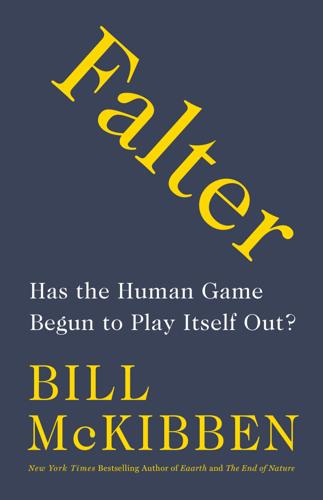
Falter: Has the Human Game Begun to Play Itself Out?
by
Bill McKibben
Published 15 Apr 2019
But as we now know, Trump was simply bringing something new to the game: not clever messaging, but brazen lying. And arriving in Washington with no existing ideology except feeding his narcissism and enriching his family, Trump proved the perfect president finally to enact the full government-hating agenda. Robert Mercer, who’d funded not only Trump’s campaign but also Cambridge Analytica, the source of so much Facebook skullduggery, was a key figure—and a classic Randian. As one colleague explained, “Bob believes that human beings have no inherent value other than how much money they make. A cat has value, he’s said, because it provides pleasure to humans.
…
Koch, Mary Koch, William “Bill” Kodas, Michael Kona Korea Krueger, Alan Kumkum Bhagya (soap opera) Kurzweil, Fredric Kurzweil, Ray Kyoto Protocol labor law labor unions Lahore, Pakistan laissez-faire Lanier, Jaron Las Vegas lead poisoning Leap Manifesto Lear, Norman Leary, Timothy Lee, Kai-fu LeFevre, Robert leukemia leverage Lewis, Seko Serge Lexington, Battle of libertarianism Libertarian Party life expectancy lightning strikes limestone limits Limits to Growth, The (Meadows) Lindbergh, Charles lobster fisheries Locklear, Samuel Lomé, Togo London Los Angeles Los Angeles Times Louisiana Lovelock, James Lowndes County, Alabama Luntz, Frank Lyme disease Machine Intelligence Research Institute MacLean, Nancy Maduro malaria Mallory, George Maltese Falcon (yacht) Mann, Michael Manson, Charles manufacturing MAOA gene variant marine species Maris, Bill markets marlin Mars Marsh, George Perkins Marshall Islands mass extinctions Matchright maturity Mauryan Empire Mayans Mayer, Jane McArthur Forest Fire Danger Index McCain, John Medicaid Medicare Megafire (Kodas) Mehlman, Maxwell Mekong Delta meltwater pulse 1A Mercer, Robert Merkle, Ralph Merritt Island Wildlife Refuge methane Mexico Miami Beach Microsoft migration Mill, John Stuart Miller, Dean Milner, Yuri Milosevic, Slobodan Minsky, Marvin Mises, Ludwig von Mississippi Delta MIT Technology Review Mongolia Monsanto Montgomery Bus Boycott Mont Pelerin movement Montreal Montreal Protocol More, Max mortality Moses, Robert Mount Kenya MSTN gene Muir, John Mumbai Murdoch, Rupert Musk, Elon Nabokov, Vladimir nanobot blood cells National Academy of Medicine National Academy of Sciences National Aeronautics and Space Administration (NASA) National Cancer Institute National Coal Association National Energy Policy Act (proposed) National Geographic National Governors Association National Journal National Oceanic and Atmospheric Administration (NOAA) national parks and monuments Native Americans natural gas Nature Nawabshah, Pakistan Nazi Germany Nectome neoliberalism Neolithic period Nepal Netherlands New Deal NewsCorp New York New Yorker New York Times Magazine Nietzsche, Friedrich Niviana, Aka Nixon, Richard Nokia nonviolence North America North American Free Trade Agreement (NAFTA) North Carolina North Korea Norway Novartis nuclear power Nuclear Test Ban Treaty nuclear weapons nutrition Obama, Barack Obamacare Objectivist oceans.
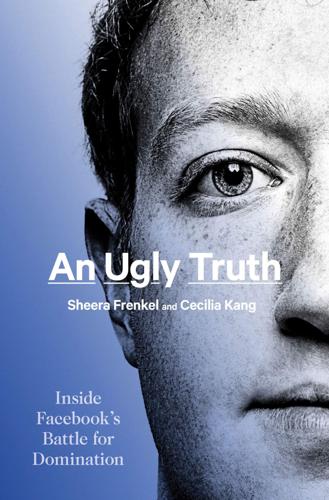
An Ugly Truth: Inside Facebook's Battle for Domination
by
Sheera Frenkel
and
Cecilia Kang
Published 12 Jul 2021
Chapter 8 Delete Facebook On March 17, 2018, the New York Times and the Observer of London broke front-page stories about a company called Cambridge Analytica that had obtained profile information, records of likes and shares, photo and location tags, and the lists of friends of tens of millions of Facebook users. A whistleblower within the UK-based political consulting firm had brought the story to the news organizations with a stunning claim that the firm, funded by Trump supporter Robert Mercer and led by Trump’s senior adviser, Stephen K. Bannon, had created a new level of political ad targeting using Facebook data on personality traits and political values. But the jaw-dropping detail was that Cambridge Analytica had harvested the Facebook data without users’ permission. “The breach allowed the company to exploit the private social media activity of a huge swath of the American electorate, developing techniques that underpinned its work on President Trump’s campaign in 2016,” the New York Times reported.1 The Observer wrote that the “unprecedented data harvesting, and the use to which it was put, raises urgent new questions about Facebook’s role in targeting voters in the US presidential election.”2 It was the latest breach of trust in Facebook’s repeated pattern of data privacy abuses.
…
See freedom of speech issues Hemphill, Scott, 229–232, 261 Hertz, Jessica, 297 Hoefflinger, Mike, 55 Holocaust deniers, Facebook policy and, 205–207, 276–278, 281 Holt, Lester, 257–258 Horowitz, Ben, 191–192 Hughes, Chris New York Times op-ed, 219–222 on origins of Facebook, 253 Wu and, 231–232 Zuckerberg’s “pivot to privacy” and, 224–227 Ifill, Sherrilyn, 255 Independent Investigative Mechanism for Myanmar, of UN, 186 Information Technology Industry Council, 165 Infowars, 204 Instagram, 7, 8, 166, 193–194, 221, 222, 253, 259, 295 Facebook’s “pivot to privacy” and, 222–224 Federal Trade Commission (FTC) and, 68 interoperability of messaging apps and, 227–228 Russian Internet Research Agency and, 133 Trump and, 267, 288–290, 292 Wu and Hemphill’s evaluation of Facebook’s acquisition of, 230–231 Zuckerberg’s broken commitment to founders of, 2, 194, 227–229 International Association of Privacy Professionals, 64–65 International Criminal Court, 185–186 Internet Association, 241 Internet Research Agency (IRA), of Russia, 130–134, 137, 143, 144–145 Internet.org, 175–177 iSEC Partners, 101 James, Letitia, 1–2, 3 “JJDIDTIEBUCKLE” (leadership principle), 246 Jobs, Steve, 48, 51, 174 Jones, Alex, 82, 204–205, 206 Kalanick, Travis, 207 Kang-Xing Jin, 51 Kaplan, Joel, 197, 241, 260, 276, 278 Biden administration and, 297–298 Cambridge Analytica and, 150 election of 2016 and, 81, 108–109, 111–112, 123, 125 Kavanaugh hearings and, 200–203 manipulated video of Pelosi and, 236, 238 personality of, 14 political contributions and, 164–165 Sandberg and, 14, 87 Trump administration and, 161, 243–247 Trump and COVID-19, 267–268, 269 Trump’s anti-Muslim rhetoric and hate speech issues, 11–15 Kaplan, Laura Cox, 200 Kavanaugh, Ashley Estes, 200 Kavanaugh, Brett, 200–203 Kaye, David, 174–175 Kellogg, Hansen law firm, 295 Kendall, Tim, 36–37, 51 Kennedy, John, 153 Kenosha Guard, 279–281 Kimmel, Jimmy, 166 King, Bernice, 254, 259 Kirkpatrick, David, 114–115 Klobuchar, Amy, 153 Kogan, Aleksandr, 152–153, 155 Koum, Jan, 194, 229 Kraff, Brian, 41 Krieger, Mike, 228–229 Kushner, Jared, 15, 243–244, 256 Kustomer, acquired by Facebook, 299 Le Pen, Marine, 118 Lean In (Sandberg), 79, 127, 157–158 Leibowitz, Jonathan, 67, 154, 199 Leone, Isabella, 131 Lewandowski, Corey, 112–113 Libra (blockchain currency), 241–242, 256–257, 300 LinkedIn, 175 London, Eric, 155 Losse, Katherine, 49, 50, 124 Lynton, Michael, 56 Ma, Olivia, 26 Mac, Ryan, 272 Macron, Emmanuel, 118, 124–125, 219, 221, 237 Martin, Jenny Beth, 81 Martin, Kevin, 80, 112 Mauer, Greg, 80, 112, 140 Mayer, Marissa, 102–103 McKinsey and Company, 41, 50 McNamee, Roger, 44, 232 Mercer, Robert, 149 MeToo movement, 150, 200–201, 203 Microsoft, 31, 165, 174, 175, 241 advertising and, 51, 53, 54 Modi, Narenda, 106 Montgomery, Kathryn, 58, 60 Moran, Ned, 95–98, 100–101, 105, 129–132, 147 Moskovitz, Dustin, 31 Mossberg, Walt, 43 Mosseri, Adam, 114, 228, 261 Moveon.org, 59 Mubarak, Hosni, 157 Mueller, Robert, 147 Murphy, Laura, 248, 249 Myanmar, hate speech against Rohingya and, 85, 169–173, 176, 178–182, 185–187, 293–294 Narendra, Divya, 21 “net neutrality,” 230 Netscape, 25, 52 New Republic, The, 287 New York Times, 88, 272, 285 Cambridge Analytica and, 149 Chester on behavioral advertising and, 59 Clegg’s op-ed in, 240 Federal Trade Commission (FTC) and, 1 Hughes’ op-ed in, 219–222 Myanmar and, 186 Russian election interference and, 130, 215 New Yorker, The, 66 Newsom, Gavin, 266 Next One Billion project, of Facebook, 176–177 Nielsen, 56 Nuland, William, 147 Nuñez, Michael, 70–79 Oath Keepers, 287–288 Obama, Barack and administration of, 11, 67, 82, 118, 121, 138, 146, 184, 230, 236, 248, 251, 252, 255 Observer, 149 Ocasio-Cortez, Alexandria, 257 Oculus VR headset, 80, 81, 190 O’Donnell, Nora, 157–159 Olivan, Javier, 194, 195, 260 Onavo, 195–196, 260 O’Neill, Catlin, 140, 236, 297 Only the Paranoid Survive (Grove), 192 Open Society Foundation, 108 Option B (Sandberg), 79, 258 Overstock, 59–60 Page, Larry, 43, 44, 65, 192 Palihapitiya, Chamath, 51 Parakilas, Sandy, 152, 164 Parikh, Jay, 9, 10 Parker, Sean, 26, 28, 44, 221 Parscale, Brad, 15, 247 Pearlman, Leah, 62–63 Pelosi, Nancy, 233–234, 297 Facebook and manipulated video of, 234–240 Pence, Mike, 290 Philippines, 85, 106, 177, 291 Phillips Exeter Academy, 19–20 Pichai, Sundar, 198 “Pizzagate,” 278 Podesta, John, 100 politics, and Facebook Biden administration and, 286, 296–298 Clegg’s policy of not fact-checking political ads, 249–252 Facebook’s PAC for political contributions, 164–165 liberal favoritism at Facebook, 12–13, 74–75, 78 political ads on Facebook, 212–214 Trump administration and Facebook executives, 243–247 see also election of 2016; election of 2020; freedom of speech issues Price, Bill, 89–92 Pritchett, Lant, 41 Proceedings of the National Academy of Sciences, 182–183 Proud Boys, 288 Putin, Vladimir, 121, 123 QAnon, 278–279, 281 Red-State Secession group, 288 Reich, Robert, 226 Reynolds, Tom, 141, 145 Rice, Brian, 141 Robinson, Rashad, 249, 251, 276–277 Rose, Dan, 44, 45, 46, 51 Rosen, Guy, 195, 260, 285 Rosensweig, Dan, 43–44 Rubio, Marco, 161 Russian disinformation, on Facebook platform, 3, 282 Congressional interest in, 127–128, 133–134, 139–145 Facebook board of director’s interest in, 134–137 Facebook employees and, 190 Facebook public relations team and, 208–215 Facebook’s security team’s investigation of, 117–127 French election of 2017 and, 118, 121 Russian Internet Research Agency and, 130–134, 137, 143, 144–145 Sandberg and, 215–217 U.S. election campaign of 2016 and, 95–101, 105–109, 124–125, 248 Zuckerberg and, 196, 204, 215–217 Ryan, Paul, 78 Sai Sitt Thway Aung, 169 Sandberg, Michelle, 43, 44 Sandberg, Sheryl backlash to Lean In and, 157–158 behavioral advertising and data collecting, at Facebook, 2–3, 45–46, 51–56, 59, 60–63, 67, 87, 225 Biden administration and, 297 books by, 79, 127, 157–158, 258 Cambridge Analytica and, 153, 154–156, 159, 160–161 Capital Building storming in January 2021 and, 286–287 Congress and, 153, 170–171, 197–200 Couric’s interview of, 258–260 cyber security and, 97–98, 210 diversity and gender equity and, 50, 202–203, 273 education and professional positions before Facebook, 39–43, 46–47, 50, 52–53 election of 2016 and conservatives, 82–83 election security and, 210 Facebook and privacy, 67 Facebook’s earnings call in 2021 and, 298–299 Federal Trade Commission (FTC) and, 45, 295, 296 Goldberg’s death and, 79–81, 233 hate speech issues and, 11–14, 275–277 Hillary Clinton and, 79, 111–112, 243–244 Instagram and WhatsApp and, 228–229 Kaplan and, 14, 87 Kaplan and Kavanaugh hearings and, 201–202 manipulated video of Pelosi and Facebook debates about, 234–240 meets Zuckerberg, 4 Nuñez’s reporting and, 79 organizational changes in 2018 and, 194 parents and siblings of, 41, 44 Pelosi and, 233–234 personal life of, 41, 43, 258, 295 personality of, 2, 45, 199–200 as protective of her image, 4 reaction to emotional contagion research, 183 response to criticisms of Facebook, 156–157 responsible growth and, 86 Russian disinformation investigation and, 118–119, 120, 121, 122–123, 126, 127–128, 134, 136, 139, 143–144, 147, 196–197 Schrage and, 87–88, 89–92 Stamos and, 10–11, 103–104 Zuckerberg hires, 43–48 Zuckerberg’s working relationship with, 54–57, 86–87, 190, 260–261 Sanders, Bernie, 100, 132, 140, 221, 226 Sandy Hook Elementary School, shooting at, 82, 157, 204–205 Sanghvi, Ruchi, 32, 34, 274 Saverin, Eduardo, 30 Scavino, Dan, 243 Schatz, Brian, 166, 236 Schiff, Adam, 140, 142–144 Schissler, Matt, 171–173, 177–182 Schmidt, Eric, 42, 44, 46, 62, 192, 207 Schrage, Elliot Definers Public Affairs and, 216–217 Russian disinformation and, 119, 123, 125–126, 134–135 Sandberg and, 87–88, 89–92 Schumer and, 66–67, 88 Trump’s 2015 anti-Muslim rhetoric and hate speech issues, 12, 13 Schroepfer, Mike, 194, 291 Schumer, Chuck, 66–67, 68, 88 Scott, Kim, 47 Secureworks, 98 Segall, Laurie, 160 Sidley Austin law firm, 295 Smith, Matthew, 185–187, 294 Snapchat, 240, 253 Snowden, Edward, 8 Sorkin, Andrew Ross, 156 Soros, George, 108, 156–157, 215–216, 226 South Park Commons, 274 Sparapani, Tim, 65, 66 Sperling, Gene, 248 Stamos, Alex background before Facebook, 101–103 election of 2020 and, 283–284 investigation and report on Russian meddling and disinformation, 97, 100, 103–107, 116, 117–127, 130, 132, 145–147 2015 report on security of user’s information, 7–11 2018 Facebook reorganization and, 194 as “warranty canary,” 103, 134, 145 Standard Oil, Facebook’s parallel with, 230 Steyer, Jim, 89, 91, 232, 261, 275–276 Stop the Hate for Profit, 275 “Stop the Steal” groups, 288, 292 Stretch, Colin Cambridge Analytica and, 150 Russian disinformation and, 97, 100, 107, 119–120, 125, 135, 144–145, 146, 147 Students Against Facebook News Feed, 34, 35 Sullivan, Joe, 103–104 Summers, Lawrence, 39-42, 47 Swisher, Kara, 29–30, 43, 203–208 Systrom, Kevin, 194, 228–229 Talking Back to Facebook (Steyer), 89, 91 TechCrunch, 64, 65 TechCrunch Disrupt conference, 88, 174 Thiel, Peter Facebook’s board of directors and, 30, 81, 86, 202 Gawker lawsuit and, 202 Zuckerberg and, 25, 29, 31, 206, 244, 256 ThreatConnect, 98 Tiger, Roi, 195 TikTok, 240, 245, 253 Tillery, Kristopher, 20 Time magazine, 127, 177 TPG Capital, 89 Traynham, Robert, 271 Trump, Donald J., 213, 221, 232 Access Hollywood tape and, 100 accusations of voter fraud in 2020 election and, 273–275, 283–285, 290 accused of inciting violence in January 2021 and banned from Facebook, 286–292, 294 anti-Muslim rhetoric and hate speech and, 11–17, 85, 249 comments after George Floyd’s death, 268–273 Facebook and COVID-19 and, 267–268 hackers and 2016 campaign, 105–106, 140 meeting with Facebook executives, 161, 243–247 number of Facebook followers and interactions with, 244, 283 Pelosi and, 234, 235 on Twitter, 232, 244–245, 268–271, 276 Zuckerberg and, 256 Twitter, 15, 37, 63, 75, 98, 231, 240, 253, 287 Cambridge Analytica and, 153 election interference and, 98, 142, 144–145 privacy and, 56, 63–64 Sandberg and, 197–198 Trump and, 232, 244–245, 268–271, 276 Ukraine, Bidens and, 251 United Kingdom, Brexit and, 154 Vaidhyanathan, Siva, 61 Vargas, Jose Antonio, 66 Verge, the, 272 Villarreal, Ryan, 73, 76 Vladeck, David, 199 Vox, 154, 166 Walk Away campaign, 292 Wall Street Journal, 1, 43, 47–48, 88 Walz, Tim, 268 Warner, Mark, 127–128, 132, 246 Warren, Elizabeth, 221, 226, 242, 259, 295 Washington Post, 24, 26–29, 30, 47, 84, 141, 164–165, 234, 236, 272 Wasserman Schultz, Debbie, 100 Waters, Maxine, 256–257 WeChat, 175, 245 Weedon, Jen, 108–109, 129, 147 Weibo, 175 Wexler, Nu, 83 What You Do Is Who You Are (Horowitz), 191–192 WhatsApp, 71–72, 166, 193–194, 221 data security and, 8, 222 Facebook’s acquisition of, 196, 295 Federal Trade Commission and, 68 interoperability of messaging apps and, 227 “pivot to privacy” and, 222–224 Wu and Hemphill’s evaluation of Facebook’s acquisition of, 230–231 Zuckerberg’s broken commitment to founders of, 2, 194, 227–229 Whetstone, Rachel, 204, 206–207 Wicker, Roger, 162 Williams, Maxine, 272–273 Willner, Dave, 92–93 WilmerHale law firm, 160, 197 Winklevoss, Cameron, 21 Winklevoss, Tyler, 21 Wirathu, Ashin, 172 Women@Google, 50 World Anti-Doping Agency, data stolen from, 99 Wu, Tim, 229–232, 261 Xi Jingping, 176 Yahoo, 8, 26–27 global expansion and, 42, 175 Goldberg and, 43–44 offer to buyout Facebook declined by Zuckerman, 30–32, 44 Stamos and, 101–103 Yang, Jerry, 42 Zients, Jeff, 297 Zuboff, Shoshana, 3, 61 Zucked (McNamee), 232 Zuckerberg, Ethan, 163 Zuckerberg, Mark Beacon feature and, 57–63 Black Lives Matter memo and, 71–73 Cambridge Analytica and, 16, 153, 154–156, 160, 204 coding at Phillips Exeter, 19–20 “company over country” and, 124 cyber security and, 97–98 decline of Yahoo’s buyout offer, 30–32, 44 earnings call in 2021 and, 298–299 election of 2016, 113–116 election security and, 210 employees’ internal conversations and, 70 Federal Trade Commission (FTC) and, 295–296 free speech issues and, 74–75, 252–261, 263, 269, 281 goals of global expansion and end of economic inequality, 173–177 Goldberg’s death and, 79 hate speech and disinformation issues, 11, 193, 204–208, 275–277 hearing regarding Libra and, 256–257 Kaplan and Kavanaugh hearings and, 201–202 Kaplan’s organization of dinners with politicians, 243–247 manipulated video of Pelosi and, 236–240 meets Sandberg, 4 News Feed and apology for, 32–36 Nuñez’s reporting and, 79 personal privacy and image guarded by, 4, 65–66 personality of, 29–30, 45–46, 48–49 philanthropy of, 174, 262 “pivot to privacy” and reactions to, 222–227, 235 plans for Facebook’s future, 299–300 portrayed in attorneys general complaint, 2 public opinion and, 257–258 reaction to Hughes’ New York Times op-ed, 219–222 reaction to Stamos’ 2015 report on data security, 7, 8–10 reorganization of Facebook in 2018 and, 193–194 responsible growth and, 86 reversing of promises made when acquiring Instagram and WhatsApp, 2, 194, 227–229 Russian disinformation investigation and, 117, 118–119, 120, 121, 126, 134, 136–137, 139, 142, 147, 196, 204 Sandberg’s hiring and, 43–47 testimony before Congress, 150–151, 153, 160–167, 210 Trump banned by, 290–292, 294 “wartime” leadership philosophy and, 189–193, 207 working relationship with Sandberg, 54–57, 86–87, 190, 260–261 yearly goals of, 261–263 About the Authors Sheera Frenkel covers cybersecurity from San Francisco for the New York Times.
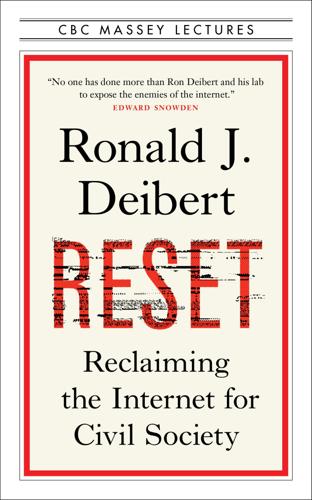
Reset
by
Ronald J. Deibert
Published 14 Aug 2020
Before it was kicked off Facebook’s platforms for breaching the company’s terms of service (and let’s face it, Facebook probably kicked it off only because of the bad publicity), it vacuumed up data on hundreds of thousands of unwitting users and 87 million of their even less witting networks of friends to fine-tune precision messaging and behaviour manipulation of tiny segments of target populations. Cambridge Analytica had the support of a group of wealthy but highly dubious backers, including conservative muckraker and Trump supporter Steve Bannon and billionaire right-winger Robert Mercer. More ominously, it also had links to the U.K. and U.S. defence establishments. These political and financial supporters helped the company recognize that their psychometric profiling expertise, normally applied to digital marketing, could easily be repurposed for political campaigns, however unethically or illegally.
…
See also restraint Li Wenliang, 85, 86, 264 Lin, Herb, 108–109, 117, 122 Lindsay, Jon, 152 LinkedIn, 59–60, 251 lithium, 221–222 loan sharking, 61–63 location tracking, 187–188 Lucas, Jerry, 147–148 Lynas Corp., 221 Lynch, Jim, 248 Machiavelli, Niccolò, 279 Madison, James, 282 Madonna, Richard, 175 Malaysia, 68, 150–151, 221, 302 Mansoor, Ahmed, 151–152, 197 Marczak, Bill, 144 The Markup, 130–131 Mastodon (search engine), 270–271 Maya (app), 57 McConnell, Mitch, 278 McDonald’s, 64 McGill University, 116 McKibben, Bill, 262 McKinsey & Company, 141, 142 McLuhan, Marshall, 21–22, 209, 263, 268 McMaster University, 234 media ecology, 21–22, 24 media literacy, 268–269 Mercer, Robert, 119 Mexico, 150–151, 152–153, 176, 261 Microsoft, 77 data sharing by, 43, 56 and the environment, 239, 241 security/privacy issues, 59, 175–176, 231–232 Miller, James Grier, 107 Mindstrong Health (app), 54–55 mining, 221–224 Bitcoin, 234–235 for rare earth elements, 218–221 for tin, 224–225 Modi, Narendra, 202–203 monopolies.
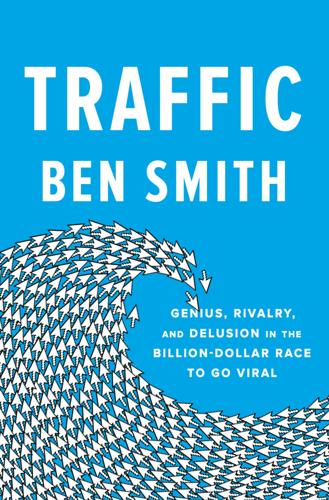
Traffic: Genius, Rivalry, and Delusion in the Billion-Dollar Race to Go Viral
by
Ben Smith
Published 2 May 2023
“If it does bring down our company, it would be a funny way to go out,” Nolan mused. 21 Upworthy As Nick and Jonah’s competition intensified in the beginning of 2012, Andrew Breitbart felt he’d finally found his footing. Anthony Weiner’s dick, his downfall, and the election of a Republican to replace him had combined for Andrew to wash away the stain left by the Shirley Sherrod incident. Breitbart had brought a new wave of money into the company too: A low-profile hedge fund billionaire, Robert Mercer, had been taken with this new source of power, and invested $10 million. They’d put some of the cash into a splashy redesign, just like the one Nick Denton had done a year earlier to make the Gawker Media brands look bolder and less bloggy. (This stylish redesign had cost the site valuable page views.
…
See also MIT Media Lab “matchmaking” events, 15–16 Mayer, Kevin, 196, 199–200 Mayer, Marissa, 64–65 McCain, John, 167, 248–49, 251 McCain Institute, 250 McCarthy, Megan, 85 McCollum, Ashley, 193 McEnroe, John, 28 McInnes, Gavin, 97, 139, 184, 290 McKinsey consulting firm, 225 McNeill, Caitlin, 209–10 “meaningful social interactions” metric, 272–75, 284 Media Matters, 191 Meier, Barry, 249, 258 memes and Bannon’s political activism, 117 and BuzzFeed’s competition, 196, 284 and BuzzFeed’s journalism, 280 and BuzzFeed’s news and social content, 151, 167 and BuzzFeed’s traffic sources, 123, 126–27, 153 and Contagious Media Showdown, 48–49 and Gionet, 295 and political campaigns, 254 and right-wing media, 186, 188, 192 and social engagement on Facebook, 276–77 and “the Dress” viral post, 210–11 Mensch, Louise, 255–56 Mercer, Robert, 177 Merkley, Jeff, 295 MetaFilter, 3 #MeToo movement, 100 Millard, Wenda Harris, 106, 169 Miller, Katherine, 194, 240 Miller, Zeke, 166 Mini Cooper, 47 misogyny, 143, 184 MIT Media Lab, 1–2, 8, 11, 47 mobile phones, 151, 262 Modi, Narendra, 243 Morales, Oscar, 179, 240 Moreover, 16–18, 20, 51, 138 Morgan Stanley, 120 Morin, Dave, 216 Moss, Kate, 57 Mosseri, Adam, 211 Movable Type software, 34 MoveOn.org, 180–81, 237 Moyers, Bill, 98 MSN, 196 MSNBC, 255–56 MTV, 73, 110, 127–28, 154–55, 269 Mucha, Zenia, 117 mullet strategy, 79–80 Murdoch, Rupert, 53, 56, 255, 272 mybarackobama.com, 111, 114 MySpace, 93, 111 N NAACP, 135 National Review, 167 National Rifle Association (NRA), 25–28, 129, 187 native advertising, 130, 266 NBC, 268–69, 279–80, 283, 301, 303 NBCUniversal, 238, 300 Negations, 7 nepotism, 283 netroots, 29 Netscape, 207 New Black Panther Party, 187 Newmark, Craig, 281 new Right, 41, 43 NewsBlogger, 16 News Feed (Facebook) and BuzzFeed’s news and social content, 160–62 and BuzzFeed’s traffic growth, 205 and BuzzFeed’s traffic sources, 152 and funding for Ratter, 216 and origin of social media politics, 115 and social engagement on Facebook, 273 and “the Dress” viral post, 211 and Upworthy, 182–83 NewsGuild, 282 Newsweek, 33, 70 New Yorker, 207, 249 New York magazine, 54, 181 New York Observer, 57, 156 New York Post, 86 New York Times and anti-NRA efforts, 28–29 and BuzzFeed’s influence, 186 and BuzzFeed’s layoffs, 280–82 and BuzzFeed’s SPAC deal, 301 and BuzzFeed’s traffic growth, 167 and changing media environment, 218 and coverage of Trump presidency, 269 and Denton’s wedding, 213–14 and Disney’s bid to buy BuzzFeed, 196 and Facebook’s dominance of social media, 270 and Facebook’s political content, 238 on Gawker scandals, 54 and news aggregation–distribution startups, 15 Peretti’s address to board, 218–20 and political blogs, 33 and revival of legacy media, 220–30 and shifting strategy at Huffington Post, 81 and social engagement on Facebook, 275–76 and social media politics, 115 and splintering of internet media, 298 and the Steele Dossier, 248–49, 255, 256 and traffic monitoring tools, 105 Wirecutter acquisition, 287 Nguyen, Dao, 192, 244, 267, 288 Nielsen ratings, 150 Nike, 2–4, 7–8, 10–11, 27, 149, 288, 300, 302 Nisenholtz, Martin, 222, 223 Nolan, Hamilton, 176 NowThisNews, 283 “Numa Numa Dance” (video), 72 O Obama, Barack and Breitbart’s political background, 43 and BuzzFeed’s traffic sources, 155–56 and Facebook’s influence, 152, 177 and Facebook’s political content, 240 and Harman’s investment in Huffington Post, 120 and Harman’s support, 118–19 and Huffington Post’s political content, 107–8 and Huffington Post’s traffic, 70, 116 Iger’s access to, 197 and Lerer’s political clout, 149 Obamacare, 158 and online political activism, 132, 134–35, 152 and Pariser’s background, 180 presidential campaign, 102–3, 106, 109–15 and right-wing media, 186, 191 and shape of today’s internet media, 304 and the Steele Dossier, 250 Tkacik’s support for, 94, 97 and Wonkette’s political content, 31 Ocasio-Cortez, Alexandria, 277, 284 Occupy Wall Street, 166 Ochs, Adolph, 222 Oddjack blog, 55–56 OkCupid, 149 O’Keefe, James, 133–34, 135 O’Malley, Martin, 168 One D at a Time (Egan), 92 One Million Voices Against FARC, 113, 131–32 The Onion, 180 Openbook, 206 O’Reilly, Bill, 135 Oxfeld, Jesse, 56 Ozy, 195, 284–85, 286, 299 P pac-manning, 81–82 Page, Larry, 64 Palihotel, 197 Palin, Sarah, 82 Paltrow, Gwyneth, 46 paparazzi, 141–42 Pariser, Eli, 179–81, 183, 237, 269 Parsons, Richard, 25 Paul, Ron, 166 Paulson, Hank, 118 PayPal mafia, 85 paywalls, 224–26, 229, 269 Peacock streaming platform, 300 Pelosi, Nancy, 277 Peretti, Chelsea, 24, 47, 49, 58–59 Peretti, Della, 4–5 Peretti, Jonah acquisition of HuffPost, 286–87 and Arianna Huffington’s influence, 34 arrival in New York, 10, 12 and author’s background, 157–64, 247 background and education, 1–9 bet with Marlow, 1, 9, 49, 302–3 and Breitbart’s death, 178–79 and Breitbart’s departure from Huffington Post, 131–32 and Breitbart’s political background, 43 and Breitbart’s role at Huffington Post, 40 and BuzzFeed’s labor tensions, 280–86 and BuzzFeed’s news and social content, 167–69 and BuzzFeed’s office leases, 204–5, 319n204 and BuzzFeed’s SPAC deal, 300–303, 324n302 and BuzzFeed’s traffic, 122–29, 152–54, 154–56, 203–8 and competition with Huffington Post, 67–77 and Contagious Media Showdown, 51 and Daulerio’s background, 139 and Denton’s arrival in New York, 18 and Denton’s parties, 52, 58, 59 and devaluation of traffic, 264–70 and Disney’s bid to buy BuzzFeed, 196–202 and early virality projects, 24–29 and Facebook’s political content, 237–38, 244–45 and Gionet, 292 and Huffington Post’s investors, 116–18, 120 and Huffington Post’s launch, 44–50 and Huffington Post’s political content, 313n102 and Huffington Post’s strategy, 78–82 and launch of Upworthy, 180–83 meeting with New York Times board, 219–20, 222 and New York blogging scene, 21 Nike sweatshop email prank, 2–4, 7–8, 10–11, 27, 302 and political engagement, 102–8 and product marketing, 287–89 and revival of legacy media, 230 and right-wing media, 185, 191, 290 and rise of New York tech companies, 61–62 rivalry with Denton, 170–72, 177, 206, 315n126 and sale of Huffington Post, 147–51 and social engagement on Facebook, 272–74 and social media politics, 111 and the Steele Dossier, 248, 258 and “the Dress” viral post, 210–11 and venture capital investments, 213 and Zuckerberg’s purchase offer for BuzzFeed, 160–62, 165 Perpich, David, 220–27, 229–30 Perry, Rick, 158, 160 PETA, 153 Petraeus, David, 180 PewDiePie, 201 Philadelphia magazine, 138 photoshopping (photo retouching), 93 Pinterest, 182, 267, 269 Pitney, Nico, 159 plagiarism, 187, 193–94 Politico, 156, 158, 165, 180, 246 Pollak, Joel, 145 Poochareon, Ann, 47–48 Poole, Chris (“moot”), 117, 126–27, 290 populism, 166, 191, 238, 240, 243, 255, 302, 304 pornography, 57, 97–98.
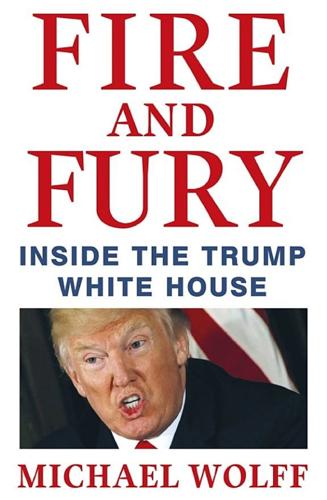
Fire and Fury: Inside the Trump White House
by
Michael Wolff
Published 5 Jan 2018
Bannon met Breitbart News founder Andrew Breitbart at a screening of one of the Bannon-Bossie documentaries In the Face of Evil (billed as “Ronald Reagan’s crusade to destroy the most tyrannical and depraved political systems the world has ever known”), which in turn led to a relationship with the man who offered Bannon the ultimate opportunity: Robert Mercer. * * * In this regard, Bannon was not so much an entrepreneur of vision or even business discipline, he was more simply following the money—or trying to separate a fool from his money. He could not have done better than Bob and Rebekah Mercer. Bannon focused his entrepreneurial talents on becoming courtier, Svengali, and political investment adviser to father and daughter.
…
Edgar, 219 Hubbell, Webster, 97 Hull, Cordell, 105 Hussein, Saddam, 27 Hutchison, Kay Bailey, 81 IBM, 88 Icahn, Carl, 20, 141, 211 Iger, Bob, 88, 238 immigration and travel ban, 36, 62–65, 68, 70, 78, 95, 113, 116–17, 138, 288 infrastructure, 224, 295 Ingraham, Laura, 201, 205, 222 intelligence community, 6–7, 41–42, 98, 101–2, 104, 153, 159, 219 Internet Gaming Entertainment (IGE), 56–57 In the Face of Evil (documentary), 58 Iran, 4, 191, 225–27 Iraq, 42, 49, 128, 138, 182 ISIS, 7, 49, 219 isolationism, 118, 174, 184, 191, 227 Israel, 4, 6, 140–43, 211, 219, 227, 230, 265, 281, 289 Jackson, Andrew, 44, 67, 158 Jackson, Michael, 28, 42 Japan, 39, 106 Jarrett, Valerie, 129 Jefferson, Thomas, 293 Jerusalem, 6 Jews, 73, 140–45, 157, 293 John Birch Society, 127 Johnson, Boris, 70 Johnson, Jamie, 79–80 Johnson, Lyndon B., 6–7, 53, 66, 158, 167 Johnson, Woody, 12 Jones, Paula, 201 Jordan, 6 Jordan, Hamilton, 27 Jordan, Vernon, 78 Justice Department (DOJ), 94–96, 98, 105, 151, 154–56, 168–69, 210, 216–17, 242 Kaepernick, Colin, 303 Kalanick, Travis, 88 Kaplan, Peter, 74–76 Kasowitz, Marc, 238, 259–60, 280–81 Kazakhstan, 281 Keaton, Alex P., 128 Kelly, John, 4, 63, 109, 188, 218, 285, 287–91, 294–97, 299–300, 304–7 Kennedy, John F., 53, 84 Kent, Phil, 92 Khan Sheikhoun chemical attack, 183–84, 188–93 Kim Jong-un, 293 King, Martin Luther, Jr., 50–51 Kirk, Russell, 127 Kislyak, Sergey, 95, 106, 151, 154–55, 218, 236 Kissinger, Henry, 41, 77, 142, 145, 193, 226–28 Koch brothers, 178 Kudlow, Larry, 143, 207 Ku Klux Klan (KKK), 294–95 Kurtz, Howard, 217 Kushner, Charlie, 17, 31, 72, 210–11, 257, 281 Kushner, Jared background of, 28, 71–76, 80–81 Bannon and, 8, 12, 52–53, 68, 110, 115, 132–34, 140, 145–47, 154, 173–74, 176, 179–82, 187, 191, 207–8, 235–36, 238–39, 243, 245–47, 274, 276, 281, 289, 291, 297 business affairs of, 17–18, 102, 211, 256, 281 business council and, 35, 87–88 Charlottesville rally and, 294 China and, 193, 211, 228 Christie and, 31 Comey and, 168–70, 210–14, 216–18, 232, 243, 245, 280, 307 CPAC and, 132–34 electoral victory and, 10, 12, 18–19, 45, 60, 103, 112 intelligence community and, 41–42, 48, 156–57 Kelly and, 288–91, 294, 305–6 McMaster and, 176, 189, 192–93, 235, 266, 289 media and, 68–69, 76, 146, 202–3, 207, 277–79 Mexico and, 77–78 Middle East and, 70, 140–43, 145, 157, 182, 192, 194, 211, 266, 268 Murdoch and, 73, 156, 179 Obamacare and, 72, 166–68 Office of American Innovation and, 181, 207 policy and, 115–25, 226, 228 role of, in White House, 29–30, 40–41, 64, 69–72, 77, 93, 109, 172, 285 Russia and, 24, 106, 154–56, 170, 236, 239, 253–58, 261, 271, 273, 278, 280, 283–84, 307–8 Saudi Arabia and, 225–29 Trump’s speech to Congress and, 149–51 White House staff and, 33, 110, 121, 140, 143–49, 186, 253, 268, 271–74, 282–83, 286 Kushner, Josh, 69, 166 Kushner Companies, 256 Kuttner, Robert, 297–98 labor unions, 67–68 Ledeen, Michael, 104 Lee, Robert E., 293 Lefrak, Richard, 27 Le Pen, Marine, 100 Lewandowski, Corey, 11–13, 17, 26, 28–29, 204, 234, 237–38, 252–53, 255 Lewinsky, Monica, 233 Libya, 6, 42 Lighthizer, Robert, 133 Limbaugh, Rush, 128, 222 Lowe, Rob, 42 Luntz, Frank, 201 Manafort, Paul, 12, 17, 28, 101, 210, 240, 253–56, 278, 280 Manhattan, Inc., 74 Manigault, Omarosa, 109 Mar-a-Lago, 4, 69, 99, 106, 159, 189, 193–94, 210, 228, 248–49 Marcus, Bernie, 309 Mattis, James, 4, 21, 103, 109, 188, 264–65, 288, 296, 304–5 May, Theresa, 258 McCain, John, 112, 306 McCarthy, Joe, 73 McConnell, Mitch, 32, 117, 301–2 McCormick, John, 167 McGahn, Don, 95, 212–14, 217 McLaughlin, John, 10 McMaster, H. R., 109, 176, 185, 188–93, 211, 235, 258, 263–68, 276–77, 288–89, 298–99, 304–5 McNerney, Jim, 88 Meadows, Mark, 161, 163, 171 Medicare, 165 Melton, Carol, 78 Mensch, Louise, 160 Mercer, Rebekah, 12, 58–59, 121, 127, 135, 139, 177–80, 201, 208, 309 Mercer, Robert, 12, 58–59, 112, 177–80, 201, 309 Mexico, 39, 62, 77, 93, 228 Middle East, 29, 70, 140, 145, 157, 190, 211, 224–33, 242, 264 Mighty Ducks, The (TV show), 56 military contractors, 265, 267 Miller, Jason, 234, 237–38, 299 Miller, Stephen, 61, 64–65, 89, 133, 148, 209, 213, 229, 258, 307 Mnuchin, Steve, 13, 133, 290, 296, 304 Mohammed bin Nayef, crown prince of Saudi Arabia (MBN), 228, 231 Mohammed bin Salman, crown prince of Saudi Arabia (MBS), 224–31 Moore, Roy, 302–4 Morgan, Piers, 22 Morning Joe (TV show), 32, 66–67, 121, 189, 247–48 MSNBC, 66, 106, 247 Ms.
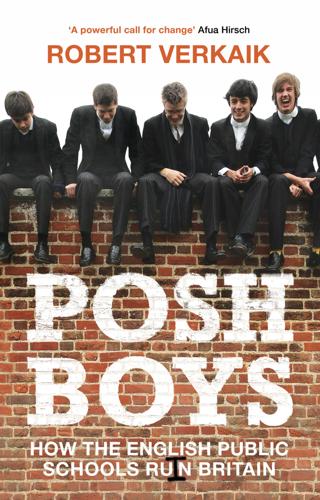
Posh Boys: How English Public Schools Ruin Britain
by
Robert Verkaik
Published 14 Apr 2018
Billionaire hedge-fund owner and former futures trader David Harding (Pangbourne) donated £3.5 million to the same campaign. Before the country went to the polls, the Leave campaigners had one more card to play in the battle to persuade the British people to support Brexit. Some believe it may have even been a decisive factor. In the summer of 2015, US billionaire Robert Mercer, a close friend of Donald Trump and an investor in alt-right media company Breitbart News, introduced Farage to a data company set up by two Old Etonian brothers who had cut their teeth on controversial military style ‘psy-ops’ which they ran in election campaigns in the developing world.15 Nigel and Alex Oakes were colourful businessmen with a special interest in psychological profiling.
…
INDEX Abbott, Diane 181 Abromovich, Roman 197 abuse 207–20, 254 Adams’ Grammar School 172–3, 184 Addrison, John 210 Adonis, Andrew 240–1, 333 Africa 53–4, 314–15 Ahmad, Muhammad 37, 38–9 Aitken, Jonathan 255 Aldridge, Sir Rod 318 Alexander, Danny 148 Alfred the Great, King 14 Allan, Tim 169 Alpha Plus 316–18 Ametistova, Ekaterina 200–1 Ampleforth College 219, 237, 250–1 Anderson, Bruce 146 Andersdon, Dr Eric 105, 106, 115, 137 Anne, HRH Princess 110 Anthony, Vivian 108–9 Apostles Club 306 aristocracy 18, 22, 28 Arkwright, Richard 32 Arnold, Matthew 66 Arnold, Thomas 31, 67 Aspinall, John 156 Asquith, Herbert 64 al-Assad, Bashar 128, 196, 202 Attlee, Clement 87, 88, 89, 99, 180 Augustine, St 13–14 Australia 283 Baddiel, David 263–5 Bailey, Mark 227 Balfour, Arthur 33 Ball, Peter 216–19 banking 295–9 Banks, Arron 163, 164, 165 Bannon, Steve 164, 282 Barrington, Robert 202 Barton, Laura 305 Barttelot, Sir Brian 38, 40–1 Barttelot, Maj Edmund Musgrave 38–40 Barttelot, Sir Walter 40–1, 60–1 Bash camps 212–13, 216 BBC 298–300 beatings 21, 30, 211, 213–14, 215 Beckett, Andy 304–5 Bedales 182–3 Beefsteak Club 291–2 Bellak, Benjamin 138 Benn, Melissa 255, 268, 323–4, 339 Benn, Tony 96–7, 174, 175, 176, 180, 255–6 Bennett, Alan 1, 336–7 Bentham, Jeremy 66 Berezovsky, Boris 199 Beveridge, William 89 Blackadder Goes Forth (TV show) 62 Blair, Tony 103–6, 107, 109, 111, 179, 180–1 Blunkett, David 106–8, 109, 111 Blunt, Anthony 133 Bo Xilai 198 Board of Education 68–9, 69 ‘Boarding School Syndrome’ 270–1 Boarding Schools Corporation 98 Boer War 40, 52–4 Bonar Law, Andrew 64 Borwick, Tom 165 Bracken, Brendan 85–6 Brexit 127, 151, 161–3, 164–70; see also Farage, Nigel Bridgeman, Luke 292–3 British Army 36, 40–2, 55–64, 72–3, 224, 225 British Empire 30, 32, 33–5, 36–7, 38–40, 42–3, 44–5 and Second World War 74–5 British Expeditionary Force (BEF) 52 Brodie, Stanley 116 Brooke, Rupert 62 Brook’s 291 Brooks, Charlie 147 Brougham, Henry 29 Brown, Gordon 107, 287 Bruce, Charles 136 Brunel, Isambard Kingdom 32 Bryant, Chris 128 Buchanan, Mike 119 Buffet, Warren 329 Bullingdon Club 137, 141–2, 306 bullying 271, 273 Burgess, Guy 133 bursaries 226–35, 321–2, 332 Butler, Rab 77, 78–9, 81, 82 Butler, Robin, Lord 193 Byers, Stephen 107–8 Cable, Vince 167 Caldicott prep school 209–10, 215, 219 Callaghan, James 99, 180 Cambridge Analytica (CA) 164–6 Cambridge, HRH Catherine, Duchess of 191 Cambridge Spy Ring 133 Cambridge University 1, 25 Cameron, David 6, 105, 133–8, 139, 140, 274 and ‘big society’ 313, 315 and Conservative Party 143, 144–8 and Eton 119, 190 and EU Referendum 127, 161, 162, 166–7, 169, 170 and government 148–54 and Oxford 141–2, 143 and psychology 271, 273 and Russia 132 camps 212–16 Canning, George 33 Card, Tim 61 Cardigan, James Brudenell, 7th Earl of 56 Carey, George, Lord 217 Carpenter, John 17 Carswell, Douglas 161 Cash, Bill 161 Castle House Preparatory School 172 Catling, Susan 95, 96 Chakrabarti, Shami 181–3 Chamberlain, Neville 72 chantry schools 15, 24, 26 Charitable Uses Act (1601) 109 Charities Act (2006) 114–16, 223 charity 17, 47, 88–9, 114–21, 341 and law 109–10, 111 Charles, HRH Prince of Wales 105, 110, 143, 216, 217, 283 Charterhouse School 19–20, 195–6, 233, 257 China 197–8, 200, 203, 204 Christianity 13–14, 15, 24, 215–16 and muscular 35–8, 44, 67, 211 church, the 2, 13–15, 24, 211–19 Churchill, Winston 40, 72, 74, 78, 84, 286 and Bracken 86 and Eden 91 and Harrow 33, 77, 82–3 City, the 4, 292–3, 295–7 City of London School 17, 181 Clarendon, George Villiers, 4th Earl of 48, 49–51 Clark, Alan 62 Clark, Ross 194 Clarke, Kenneth 146, 147 class 22, 65–6, 86–7, 95, 237–8, 315–16 and the army 55–6 and government 91–3 and grammar schools 67–8 and the media 298–300 classics 30–1 Clegg, Nick 147–8, 181, 209–10, 327–8 Clifford, Adm Sir Augustus 34 Clive, Robert 42–3 Comenius, John 27 comprehensive schools 94–5, 255–6 Conrad, Joseph 39–40 conscription 52–3 Conservative Party 69, 86, 90, 92, 99–100, 101–2 and Cameron 143, 144–8 Cook, Henry 169 Cooke, Alistair 143 Coombs, Mark 163 Corbet, Richard 23 Corbyn, Ben 178 Corbyn, Jeremy 17, 121, 171–5, 176–80, 186, 314 Corbyn, Sebastian 178 corporal punishment 21 Cranmer, Thomas 11–12, 14 Crawford, David Lindsay, 27th Earl of 59–60 Crimean War 56 Cromwell, Oliver 27 Crosland, Anthony 95–6, 97, 255 Cruz, Ted 164 Cumberbatch, Benedict 252 Cummings, Dominic 165–6 Cust, Sir Lionel Henry 222 Czerin, Peter 144 Dacre, Paul 147 Daffarn, Edward 318 Dalton, Hugh 180 Damasio, Antonio 276 D’Ancona, Matthew 144 Darwin, Charles 30–1 Davidson, Jim 261–3, 266–7 Davison, Dick 108 De Carvalho, Alexander 168–9 De Freitas, Geoffrey 89 Deakin, Chloe 157, 158 Dean, Victoria 169 Debrett’s 289 Derham, Patrick 120 Dimbleby, David 149, 251 Disraeli, Benjamin 42 Doggart, Simon 215 donations 228–9 Dorries, Nadine 250–1 Dowding, Hugh 83 Duff, Grant 47–9, 50 Duffell, Nick 271, 272–3, 276–7, 284 Dulwich College 90, 156–61, 181–2, 192, 248, 330–1 and overseas franchises 203, 204 and sponsorships 239–42 Duncan, Alan 167 Eden, Anthony 64, 90–2 Edinburgh Academy 47 Edmiston, Robert, Lord 163 education 11–12, 13–15, 27, 321–4, 327–9 and Ragged Schools 37 and reforms 65–6 and rights 337–8 and Scotland 43–4 see also grammar schools; public schools; state schools Education Acts: 1902: 69 1918: 65 1944: 82, 87, 93 Education Review Group 117 Edward III, King 16 Edward IV, King 26 11-plus exam 82, 93 Elizabeth I, Queen 18, 19 Elizabeth II, Queen 133 Elliott, Matthew 165 Emms, David 157 employment 341–3 End of the ‘Old School Tie’, The (Worsley) 75–6 Endowed Schools Commission 50 English Civil War 27 entry requirements 18–19 Establishment, the 125–6 Eton College 3, 17, 19, 22, 204, 278–9 and admission 189–90 and alumni 33, 140–1 and bursaries 228–9, 230 and Cameron 119, 136–8, 140 and charity 99, 115, 221–3, 235–6 and Eden 91, 92 and exams 257 and fees 113, 188–9, 227 and foundation boys 50 and Goldsmith 155 and government 134 and grants 238 and international students 198–9 and Leggatt 293 and masters 46–7 and Oxbridge 25, 301 and poor boys 28–9 and Putin 127–32 and reforms 26–7 and Rifles 52, 53, 59 and sponsorships 242 and sport 35 and town 187–8 and Wellington 33, 41–2 see also Old Etonians EU Referendum 127, 150–1, 161–3, 164–70 Evans, Chris 298–9 exams 82, 93, 257, 267–8 Fabian Society 180 fagging 22, 29, 98, 104 faith schools 180–1 Fallon, Michael 62 Faraday, Michael 32 Farage, Nigel 156–9, 160–1, 162, 163, 167, 169, 248 and the establishment 283 and psychology 273 and Trump 282 Farr, Clarissa 278 Farron, Tim 153 fascism 157, 158 federations 238 fees 13, 19, 67, 69, 111–13, 194 and Eton 188–9 and subsidies 221–2, 224–35, 245–9 and university 260–1 Fettes College 103–6, 211 Finkelstein, Daniel 146 Finland 268, 344 First World War 54–64, 65–6 Fisher, Herbert 68–9 Fleming, David Pinkerton, Lord 79–81, 90 Fletcher, David 200, 201 Fletcher, Frank 68, 69 Foot, Michael 106, 180 Fox, Edward 156 Fox, Laurence 252–3 France 268–9 Fraser, Giles 211, 216 free scholars 16, 17, 18, 23, 50–1 Freemasons 193 French, John 61 French Revolution 28 Freud, Matthew 147 Gaitskell, Hugh 180 Galsworthy, John 66–7 Gascoigne, Michael 104 Gates, Bill 329 Geelong Grammar School 283 GEMS Education 111, 113–14, 204–6 gender pay gap 298, 299 gentlemen’s clubs 143–4, 169, 291–2 Germany 196, 268–9, 344 Ghosh, Helen 149 Gibb, Dame Moira 217, 218 Gill, Ameet 168 Girls’ Public Days School Trust 68 girls’ schools 229 Girls’ Schools Association 108 Gladstone, William 33, 37, 48 Goldsmith, James 155–6 Goodall, Lewis 298–9 Goodhart, David 320–1 Gordon, Gen Charles 36–8, 53 Gordonstoun 110, 211 Goschen, Giles, Viscount 135–6 Gove, Michael 144, 149, 161, 282, 322 and Brexit 166, 168 and psychology 273 and sponsorships 238 and subsidies 247–9 government 4–5, 6, 148–54 Gracie, Carrie 298 grammar schools 14, 15, 24, 30, 44, 56–7 and grants 93–4, 100–1 and Labour 183–5 and reforms 49–50, 67–8 Granville, Granville George Leveson-Gower, 2nd Earl of 48 Gray, Herbert Branston 45 Grayling, Chris 161 Great Depression 69–70 Green, Francis 307 Green, Michael 145 Greenwood, David 208, 219 Gregory, Pope 13 Grenfell Tower 316, 317–19 Greville, Fulke 22 Guppy, Darius 289–90 Guru-Murthy, Krishnan 234–5 Haberdashers’ Aske’s 263–5, 300 Haig, Gen Douglas 61 Haileybury College 88, 89 Haldane, Richard Burdon 53 Halfon, Robert 249, 311, 333, 336 Halls, Andrew 194 Hammond, Richard 67 Hancock, Matt 342 Hannan, Daniel 161 Hanson, David 219 Harding, David 163, 168 Hardman, Robert 144 Hargreaves, Peter 163 Harman, Harriet 181 Harrison, Rupert 144, 153, 275 Harrow School 17, 23, 24, 29, 31–2, 68 and alumni 33, 34, 252–3 and bursaries 233–4 and Churchill 83 and foundation boys 50 and overseas franchises 203 and soldiers 52, 53 Hart, Basil Liddel 62 Hasan, Mehdi 327 Hastings, Max 277 Hastings, Warren 43 Haynes, Tim 227 Headmasters’ and Headmistresses’ Conference (HMC) 51, 119 Healey, Denis 175, 176 Heart of Darkness (Conrad) 39–40 Heath, Edward 99, 287 Heath, Lt Gen Sir Lewis ‘Piggy’ Macclesfield 74 Heatherdown 135–6 Henderson, Simon 235 Hendon County Grammar School 183–5 Henry, Hugh 210 Henry VI, King 19, 26, 221, 301 Henry VIII, King 18, 26 Henty, G.A. 53 Heseltine, Michael 145, 167 Higgins, Matthew James 46–7 Hillman, Nick 99, 100, 255, 302–3 Hilton, Steve 144, 153 Hitler, Adolf 3, 73 Hobsbawm, Eric 34 Hoey, Kate 161 Hogg, Charlotte 295–6 Hogg, Dame Mary 294 Hogg, Douglas 294–5 Hogg, Quintin 97, 294, 295 Hogg, Sarah 294–5 Holle, Arnold 196 homosexuality 35–6 Hong Chin 201 Hosking, Jeremy 163 Howard, Adam 283–4 Howard, Michael 146 Howard, Nicholas 152 Howe, Geoffrey 101–2 Howell, Steve 183–5 Hughes, Billy 90 Hughes, Thomas 35 Huhne, Chris 148 Hunt, Jeremy 271, 273 Hurtwood House 225 Hutton, Will 274 Huxley, Thomas 66 Ibori, James 201 immigration 156, 157, 162, 168, 264 imperialism 33–4, 53–4; see also British Empire Independent Inquiry into Child Abuse 210–11 Independent Schools Council (ISC) 110, 113, 116, 120, 288, 325–7 and charity 223, 224, 226 and sponsorships 238 India 42–3, 53 industrial revolution 32 inequality 306–12, 314–16, 321–4, 327–9 initiation ceremonies 21 international students 196–202 internships 341–2 Iremonger, William 91 Itoje, Maro 234 Iwerne Trust 212, 214 Jameson, James Sligo 39 Japan 73–4 Jardine, Cassandra 94–5 Johnson, Boris 6, 31, 128, 142, 150–1, 272 and Brexit 162, 166, 167, 168, 169 and bursaries 321–2 and the Establishment 125–6 and Eton 136, 190 and Guppy 289–90 and psychology 271, 273, 276–7 Johnson, Jo 149 Johnson, Stanley 292 Jones, Owen 274–5, 328 Jonson, Ben 23 journalism 274–5, 297–8 Journey’s End (Sherriff) 58 judiciary 5, 292–3 Keir Hardie, James 180 Kensington Aldridge Academy (KAA) 318–19 KGB 132, 133 King Edward’s School 68, 93–4 Kingston Grammar School 56, 57 Kinnock, Neil 180 Kipling, Rudyard 53, 64 Kitchener, Gen Herbert 54–5, 57 Korski, Daniel 168–9 Kynaston, David 328–9, 337 Labour Party 6, 69, 86–8, 99, 100–1 and Corbyn 171, 174–5, 176–80 and education 180–6, 328–9 see also New Labour Lammy, David 303–4, 343 Lamont, Norman 143, 145 Lampl, Sir Peter 116 Landale, James 150 language 20–1, 277 Lansman, Jon 175–6, 178–9 Lansman, Max 178 Latin 14, 30 Laws, David 148 Leach, Arthur 14, 27 Leach, Sir John 109–10 league tables 267–8 Leanders, Rocky 214–15 Leather, Suzi 114–15, 117 Leggatt, George 292–3 Lenon, Barnaby 226–7, 228, 233–4, 258–61, 279, 303, 325–7 Leonard, Richard 186 Leslie, Chris 179 Letwin, Oliver 148, 149, 271 Levellers 27 Lewis, Sir George 48–9 Li Wei Gao 201 Liddle, Rod 299–300 Lineker, Gary 195, 298–9 literacy 14, 15, 43 Little, Steven 231–2 Little, Tony 190, 193–4, 198, 199, 205–6, 278–9 and assisted places 226, 230, 235 and parents 256 Litvinenko, Alexander 128 Livingstone, David 43, 44 Llewellyn, Ed 144, 148, 152 Lloyd George, David 65 local education authorities (LEAs) 80–1, 89–90, 98 Lockwood, Chris 144 London 316–19, 334; see also City, the London Oratory 180–1 Loom of Youth, The (Waugh) 63, 70 Lyon, John 17 Macdonald, Ramsay 180 McDonnell, John 174–5, 178–9, 186 McGovern, Steph 298 McKenna, Alison 116 Maclean, Donald 133 Macmillan, Harold 92 McNeil, Rosamund 120 Madders, Justin 185, 311–12 Made in Chelsea (TV show) 325 Magnitsky, Sergei 128 Major, John 321 Major, Lee Elliott 305 Mallinckrodt, Edward 135 Manchester Grammar School 27–8, 68 Mandelson, Peter 88, 183 Marathon Asset Management 292–3 Marlborough College 52, 55, 79, 192, 232 Marshall, Patrick 209 Marshall, Sir Paul 167–8 Marxism 177–8 Mason, A.E.W. 53 Masonic lodges 145, 193 May, Theresa 69, 118–19, 121, 127, 129 and internships 341–2 and ‘shared society’ 313–14, 322–3 and sponsorships 243 Meacher, Michael 176 media 297–300 Mercer, Robert 163, 164 Merchant Taylors’ School 17, 21, 28, 42–3, 140, 300–1 Merivale, Charles 22–3 Middleton, Kate, see Cambridge, Duchess of Milburn, Alan 315, 336 Military Cross 59 Millar, Fiona 109, 185–6, 324 Millfield School 247–8 Milne, Seumas 17, 177–9 Milton, John 27 Mitchell, Andrew 237, 271 Momentum 175–7, 178–9 monasteries 14, 15, 18, 24, 25, 26–7 money-laundering 201–2 Montgomery, Bernard 83 Moore, Thomas 42 morality 273–4 Morrison, Herbert 88 Mosley, Oswald 143, 158, 159 Mount, Ferdinand 139, 143 Mount, Harry 328 Mulcaster, Richard 20 Mumsnet 258 Murdoch, Rupert 147, 282–3 Murray, Andrew 178–9 Murray, Charles 334 Murray, Laura 178 Nash, Eric ‘Bash’ 212–13 Nash, Paul 62 National Front 157, 158 Neile, Richard 23 Nelson, Lord Horatio 44 New Labour 105, 106–7, 111 New York Military Academy (NYMA) 280–2 Newbolt, Sir Henry 55 Newmark, Brooks 292 Newsom, Sir John 97, 246 Newsome, David 273 newspapers 46–7, 297–8 Nix, Alexander 164, 165 non-cognitive skills 276 North Foreland Lodge 110 north–south divide 310–11 Norwood, Cyril 67, 70 Notting Hill Prep 316–18 Nyachuru, Guide 215 Oakes, Alex 163, 164 Oakes, Nigel 163–4 O’Brien, James 237, 250–1 Odey, Crispin 163, 167, 193 O’Dowda, Brendan 198 Office of Fair Trading (OFT) 112, 113 Officer Training Corps (OTC) 52, 53, 55, 62 old boys’ networks 21–2, 289–91 Old Etonians (OEs) 136, 140–1, 149, 192, 224, 228–9 Oldfield, Bruce 68 oligarchs 129–30, 140, 194, 197, 199, 202 Olympic Games 36 Onyeama, Dillibe 254 Operation Winthorpe 209 Organ, Bill 111–12 Orwell, George 3, 74, 76, 77, 254 and democracy 286, 309 Osborne, George 6, 144, 146, 147, 148, 153 and Brexit 162 and politics 274–5 and psychology 273 overseas franchises 202–6, 329 Oxbridge 1–2, 5, 264–5, 279, 300–6, 342–3; see also Cambridge University; Oxford University Oxford University 2, 16, 17, 18, 25, 107 and Cameron 141–2 and Union 125–6 Pakenham, Frank 180 Palmerston, Lord 33, 48 parents 194–6, 251–6, 257–8, 261–3, 265–7 and failure 278 and rights 337–8 Parker, Peter 62–3 Parris, Matthew 306, 314–15 Pasha, Emin 39 Patel, Priti 162 Patrick, Andrew 277 Paxman, Jeremy 223–4, 273 pay 298–9, 306–7 Peasants’ Revolt 16 Peat, Sir Michael 205 Peel, Robert 33 Percival, Arthur Ernest 73–4 Perry, Tom 210 Philby, Kim 133 Piers Gaveston Club 137, 141, 142–3 Pitt the Elder, William 28 Plato 313 Pleming, Richard 195 politics 91–3, 271–3, 274–5, 303–5; see also Conservative Party; government; Labour Party poor, the 16–17, 19–20, 22, 24, 28–9 and subsidised places 221–2, 224–7 Portillo, Michael 146 Portland Communications 169 ‘posh bashing’ 252–3 Powell, Enoch 93, 156–7 Powell, Hugh 138–40 prefects 21 Price, Leolin 115–16 Priestley, J.B. 76–7 private education, see public schools Profumo, John 92 property 310 psychology 270–3, 275–7 Public School Lodges’ Council 145, 193 public schools 2–7, 66–7, 258–61, 286–9, 324–5 and abolition 336–44 and abuse 207–20 and actors 252–3 and alumni 1–2, 140 and assisted places 87–8, 90, 101, 321–2, 329–33 and beginnings 15–20 and Brexit 161–2, 163, 165–6, 167, 170 and British Empire 33–4, 41, 42–3, 44–5 and business rates 243–4 and charity 88–9, 107–11, 114–21, 221–35 and class 22–4 and criticism 46–7 and demand 70–1 and entitlement 283–5 and espionage 132–3 and Europe 268–9 and facilities 193–4 and fees 111–14, 245–9 and funding 68–70 and government 91–3 and inequality 306–9 and international students 196–202 and Labour Party 180–3, 185–6 and London 316–18 and the media 297–300 and networks 21–2, 191–3, 289–91 and overseas franchises 202–6 and Oxbridge 300–6 and parents 194–6, 251–2, 253–6, 257–8, 261–3, 265–7 and psychology 270–3, 275–7 and reforms 25–7, 29–32, 47–51, 79–82, 95–100 and revolts 27–9 and Second World War 75–9 and slang 20–1 and society 334–6 and soldiers 52–64 and state schools 236–43, 326–7 Public Schools Act (1868) 51 Public Schools Commission 97–100 Puritans 27 Putin, Vladimir 127–32, 133, 154 Pyper, Mark 110 Queen’s Scholarship 19 Raab, Dominic 322 racism 156, 157, 162 Rae, John 101, 274, 302 Ragged School movement 29, 37, 38 Ranger, Terence 34 Rawls, John 5 Ray, Christopher 115 Reay, Diane 268, 269, 284–5, 335 Reckless, Mark 161 Redwood, John 161 Rees-Mogg, Jacob 31, 154, 161, 193, 251, 282 Referendum Party 155, 156 Reform Act (1832) 47 Reformation, the 26 Remain Vote 162, 163, 166, 168 Renton, Alex 219–20, 254 Repton School 302–3 Reznikov, Peter 131 Rhodes, Cecil 33, 43 Rich, Richard 11–12, 14 Richards, Amy 169 Richardson, Ed 197 Ripon Grammar School 67–8 Roberts, Frederick, Field Marshal Lord 52–3 Rock, Patrick 151–2 Roman Empire 13 Romilly, Peter 135 Rooney, Wayne 191 Rothermere, Jonathan Harmsworth, Lord 147 royal family 133, 134 Royal Military Academy Sandhurst 36, 38, 40, 56 Royal Military Academy Woolwich 36, 56 Royal Navy 44, 73 rugby 35 Rugby School 28, 31, 52, 53, 73 Ruskin, John 66 Russia 127–34, 139–40, 199–200, 202 Ruston, Mark 214 Sainsbury, David 163 St Paul’s School 14, 17, 18, 209, 227 Sandel, Michael J. 315–16 Sandhurst, see Royal Military Academy Sandhurst Sansom-Mallett, David 209 Sassoon, Siegfried 62 Sawar, Anas 186 Schaverien, Joy 270–1 Schellenberg, Walter Friedrich 3 Schneider, James 17, 177 scholarships 226–8, 240 School Teachers Superannuation Act (1918) 68 science 30 Scotland 43–4, 47, 186, 211, 341 Second World War 3, 40–1, 72–9, 82–4, 86–7 secondary schools 82, 90, 94–5 Sedbergh School 85 segregation 316 Seldon, Sir Anthony 192, 230, 242, 261, 331–3 serfdom 15 Sevenoaks School 111–12 sexual assault 207–20 Shaw, George Bernard 66 Shawcross, Hartley 99 Shawcross, William 117 Sherborne School 55, 70 Sherriff, Robert 56–7, 58 Shevkunov, Father Tikhon 130–1 Shrewsbury School 21–2, 30, 58 Shrosbree, Colin 31 Sidney, Sir Philip 21–2 Singapore 73–5 Sked, Alan 155 Smith, Ian Duncan 146, 161 Smith, Zadie 328 Smyth, John 211–12, 213–15, 216, 219 Soames, Nicholas 167 social media 165, 166 social mobility 93–4, 196, 311, 315, 321–2, 330–3 and Commission 336 socialism 86–7, 88, 95–6, 177–8 Socrates 313 song schools 14, 15 Spence, Dr Joseph 159, 160, 204, 241–2, 330–1 Spencer, Charles, 9th Earl 317 Spencer, Herbert 66 Spender, Stephen 70 Spielman, Amanda 252 spies 132–3 sponsorships 238–43 sport 20, 35–6, 233–4, 236–8 Stanley, Henry Morton 39, 40 Starkie, James 169 state schools 2, 6, 68, 83–4, 149, 318–20 and business rates 244 and Europe 268–9 and exams 257 and funds 265, 267 and Oxbridge 301–2 and parents 255–6 and public schools 120, 236–43, 326–7 Stephenson, George 32 Stephenson, Paul 168 Stewart, Rory 292 Stoics Club 142 Stowe School 233 Strachey, Lytton 38 Strategic Communication Laboratories (SCL) 164 Sudan 37, 38–40 Suez Crisis 91–2 super-rich 196–7 Sutton, Thomas 19, 233 Sutton Trust 116, 287, 296, 297, 303 Sweden 344 Taunton Commission 50 Tawney, R.H. 66, 89 taxation 243, 244–7, 248–9, 338–9; see also VAT teachers 257, 340 Thatcher, Margaret 93, 100, 101–2, 136, 138–9, 323 Thorn, John 213, 214 Timothy, Nick 121, 326 Titus Trust 215–16 Tom Brown’s School Days (Hughes) 35 Trades Union Congress 81 Transparency International 201–2 Trump, Donald 127, 163, 164, 280–2, 329 Turner, Andrew 233 Uber 151 UK Independence Party (UKIP) 155, 156, 157, 161 Ukraine 127, 128, 139–40 Ummuna, Chuka 179 United States of America 84, 164, 229, 280–2, 329 universities 260–1, 306, 308, 342–3; see also Oxbridge Utley, Tom 265–6 Vaizey, Ed 99 VAT (value added tax) 69, 107, 121, 183, 243, 247 Vereker, John 72–3 Victoria Cross (VC) 58–9 Villiers, Barbara 91 Villiers, Theresa 161–2 Viner, Katharine 67 Vote Leave 161–3, 164–6, 167–8 Vunipola, Billy 234 Wade, Rebekah 147 Waldegrave, William 342 Wang Sicong 198 Warre, Edmond 53 Warre-Dymond, Capt Godfrey 58 Warren, Justice 116 Wasserman, Gordon, Lord 102 Waterloo, Battle of 33, 42 Watson, Andrew 213 Waugh, Alec 55, 58, 59, 63, 67, 70, 254 wealth gap 309–10 Webb, Sidney 66 Welby, Justin, Archbishiop of Canterbury 79, 193, 212, 214, 216 Weller, Paul 136, 251–2 Wellington, Arthur Wellesley, Duke of 33, 41–2, 53 Wellington College 242 Westminster, Gerald Grosvenor, 6th Duke of 254 Westminster School 17, 18–19, 23, 43, 204 and Oxbridge 300, 302 Whetstone, Rachel 144, 145 Whitehouse, Mary 212 White’s 143–4, 169 Whittingdale, John 161, 177 Who’s Who 289, 292 Wilkinson, Ellen 87–8, 90 Willetts, David 93–4, 307–8 Wilshaw, Sir Michael 120, 205, 240, 340 Wilson, Harold 25, 95, 99, 180, 287 Winchester College 15–17, 23, 28, 81, 257 and abuse 212–14, 215 and bursaries 229, 230–2 and fees 111–12, 113 and international students 199–200 and Oxford 25, 301 and soldiers 52, 53 Witheridge, Rev.
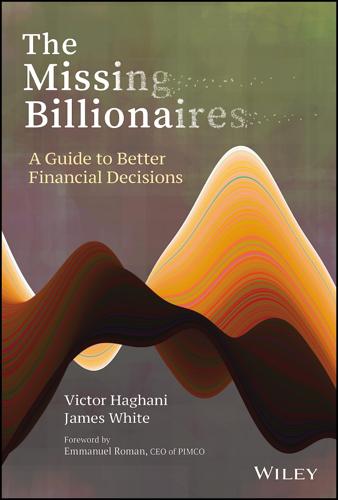
The Missing Billionaires: A Guide to Better Financial Decisions
by
Victor Haghani
and
James White
Published 27 Aug 2023
A Wall Street trading desk with $10 billion in capital would be happy taking $10 million of risk on a trade for an expected gain of just $20,000, as long as the many individual trades they're making have a low correlation with one another. Finding a high volume of low‐correlation trades is difficult, so for competitive reasons these firms tend to be quite secretive about their edge. But Robert Mercer, former co‐CEO at Renaissance Technologies, has stated that historically their trades have been successful only about 50.75% of the time.4 By being able to find lots of these opportunities that are ever‐so‐slightly in their favor, and sizing them sensibly, they've generated a compound return of more than 60% from 1988 to 2021.
…
“bond” investors, 195–196 and young investors, 196–198 Hyperbolic time preference, 190 I Bonds, 227 “Inclusion/exclusion” friction (index funds), 212 Income share agreements (ISAs), 197–198 Independence axiom, 110 Indexes, 221 Index funds, 210–212 Individual stocks, investing in, 224–226, 226e Inflation‐protected annuities, 173 Inheritances, 161, 169n Initial public offerings (IPOs), 93–94 Institutional investors, 299 Insurance, 7 home, 251, 252 life, 198, 272 Insurance companies, 165–166 Interest rate options, 256 Interest rates, 297–301 and endowments, 150–151 negative, 297–301 nominal, 204–205 nonzero, 292–293 stability of, 75 and time preference, 189, 190 Intergenerational bequests, 182 International diversification, 61–62 Inter‐temporal framework, 130 IPOs (initial public offerings), 93–94 IRAs, 131, 272 ISAs (income share agreements), 197–198 iTunes, 22 Japan, 208, 298 Jensen, M., 351n9 Joint and survivor annuities, 165n Jones, Paul Tudor, 61 JP Morgan, 228 Kahneman, Daniel, 104, 107–110, 331, 332 Kelly, John, 37 Kelly betting, 282 Kelly criterion, 37–38, 112–115, 121, 340 Keynes, John M., 111, 275, 298 Klarman, Seth, 116 Knightian uncertainty, 276 Konnikova, Maria, 32–33 Landsburg, Steven, 94–96 Large numbers, fallacy of, 96–97 Learning, 278–279 Lehman Brothers, 160n Levine, Matt, 189n, 241n, 263 Lewis, Michael, 5, 46, 118, 320, 328 Liar's Poker (game), 327–333 Liar's Poker (Lewis), 5, 46, 320, 328 Life and death choices, expected utility for, 115 Life expectancy (longevity), 140, 144 Life insurance, 198, 272 Lifetime annuities, 165–172 and annuity puzzle, 166 deferred income, 171 and end‐of‐life bequests, 169–170 equity‐linked, 170 inflation‐protected, 171 and longevity risk, 167–169, 167e, 168e Lifetime Expected Utility, see Expected Lifetime Utility Lift, drag vs., 31–33 Lintner, John, 232, 344n2 Lo, Andy, 32n Log‐utility function, 71 Longevity risk, 167–170, 167e, 168e Long‐Term Capital Management (LTCM), 4–5, 117–126, 179, 230, 333 Long‐term inflation‐linked government bonds, 204 Long‐term tax deferral, 62 LOR, 184, 185 Loss aversion, 109 Lottery, playing the, 105, 261–262, 287–289 LTCM, see Long‐Term Capital Management Macroeconomic models, 190 Madoff, Bernard, 263 Malkiel, Burton, 64, 246 Marginal tax rates, 229 Market timing, 63–64 Markowitz, Harry, 56, 130, 232, 322, 344n2 “Martingale system,” 18 Mayweather, Floyd, 82 Median, 30–33, 91, 114, 152–154, 158 Mehra, R., 292 Mercer, Robert, 45 Meriwether, John, 46–47, 118 Merton, Robert C., 8, 37, 62, 87, 121, 132, 135–136, 151, 158, 160, 243, 348nn2–3, 351n7 Merton optimal spending rule, 158–159, 159e Merton‐Samuelson lifetime consumption and portfolio choice framework, 132–141 Merton share, 10, 37–39, 41–47, 53, 53e, 62–64, 68, 89–92, 136, 186, 206n, 267, 335 “Middle” wealth, maximizing, 30–31, 31t Milevsky, Moshe, 195 Mill, John Stuart, 103, 116 Miller, Merton, 56, 344n2 Modigliani, Franco, 166 Money pump, 96 Monte Carlo simulations, 99, 142, 197 Morgenstern, Oskar, 74–75, 110 Mortgage‐backed securities, 256 Mortgages, 215 Morton, Andrew, 86 Mossin, Jan, 232, 344n2 Municipal bonds, 213 Musk, Elon, 43 Mutual funds, 6, 215–217 Nalebuff, Barry, 196–197 Natural gas, 231 Necktie paradox, 277 Negative risk‐aversion, 109 Negative savings rate, 194 Negative time preference, 189 1929 stock market crash, 208 Nominal government bills and bonds, 204–205 Nonzero interest rates, 292–293 October 1987 stock market crash (Black Monday), 184–185, 207, 249, 290, 313, 315 Odd lot trade, 227 Oil, 231 Options, 197n, 227, 245–264 alternative classes of, 262–263 determining fair price for, 254–256 and equity price drops, 253–254 exotic, 263 hedging, 263–264 interest rate, 256 and life cycle investing, 260 as lottery tickets, 261–262 as portfolio insurance, 251–253 and portfolio rebalancing, 248–251, 248t, 250e selling, 256–260 on single stocks, 260–261 trading in, as zero‐sum activity, 246 trading volume of, vs. stocks, 245 two‐asset case with, 248–249, 248t using Expected Utility with, 247–248 Outlier events, 23 Out‐of‐the‐money call options, 262 Parameter uncertainty, with multiple risky assets, 282–283 Parfit, Derek, 189 Paulson, John, 189n Perold, André, 118n Perpetuities, 299, 300e Perpetuity paradox, 309 “Personal Identity” (Parfit), 189 Personal trading, 63 Personal utility function, 9 Philanthropy, 182–183 Piketty, Thomas, 324 Ponzi schemes, 263 Portfolios: asset mix in, 231–233 options and rebalancing of, 248–251, 248t, 250e Powerball, 288 Present value, of an equity investment, 208 Price of risk, 83–87, 84e Private Placement Life Insurance (PPLI), 272 Professional gamblers, 45 Prospect theory, 109 Put options, 250e, 252, 253n, 256–257 Rabin's calibration paradox, 105 Ragulin, Vladimir, 245n RAR, see Risk‐adjusted return Rate of growth, optimizing the, 38 Rational choice, axioms of, 74 Real, after‐tax income, 335 Real estate, 213–215 Realized gains, 266–268 Real returns, focusing on, 235 Renaissance Technologies, 45 Renting, buying vs., 214 Residential real estate, 213–215 Retirement, 198–199 Return‐chasing, 222 Reverse convertibles, 256 Reward‐to‐variability ratio (R/V ratio), 56–57 Risk(s): and desire, 68–70 of factor investing, 223 importance of calculating, 335 putting a cost on, 337 risk‐adjusted return and price of, 83–87, 84e standard deviation as measure of, 34–35 uncertainty vs., 275–284 Risk‐adjusted return (RAR), 90, 91e, 240–242 endowments, 156–158, 160 ESG investing, 224 factor investing, 219 formula for, 340 importance of knowing, 335 mutual funds, 216 options, 250, 250e, 257, 258 and price of risk, 83–87, 84e and retirement, 135–137 and taxation, 268 Risk‐aversion, 36–38, 41–42, 69, 75–79, 86–87, 105–107, 108n, 109, 113, 114, 179–181, 281, 292, 319, 335.

People, Power, and Profits: Progressive Capitalism for an Age of Discontent
by
Joseph E. Stiglitz
Published 22 Apr 2019
But we have seen a far more sinister side, as, for instance, Russia has repeatedly interfered in democratic elections, seemingly in an attempt to undermine confidence in Western democracy. The new technologies can be used for manipulation, not only to enhance economic profits, but also to foster certain views, and cast doubt on others. Those with more money can do this better—and the family of Robert Mercer and others who funded Cambridge Analytica in their secretive and subversive attempt to manipulate the 2016 election have shown how it can be done. Thus, the new technologies have opened a new avenue through which power and money begets more power and money. A host of reforms have been proposed, none convincingly up to the task.
…
US, 343n50 Jungle, The (Sinclair), 144 Justinian Code, 352n21 Kagan, Elena, 333n35 Kennedy, John F., 28, 33 Keynes, John Maynard, 148 Keynesian economics, xv, 141–42 King, Martin Luther, Jr., 176, 180 knowledge and growth, 183–86 and productivity, xxiv as public good, 141 Trump’s disdain for, xvii and wealth of nations, 9 knowledge-based economy, 237 knowledge gap, 96, 98 knowledge institutions, undermining of, 233–34 Koch brothers, 20, 43, 279n40 Krueger, Alan, 42 Kurz, Mordecai, 54 Kuznets, Simon, 258n9 Kuznets’s Law, 258n9 labeling of food, 88 labor contracts, 73 labor force participation, 42, 181–83, 193 labor income, 51, 54 labor markets, atomistic, 64–66 Land O’Lakes, 352n23 learning society, creating, 183–86 Lee Se-dol, 315n1 legal system, bypassing by arbitration panels, 56–57 lending, 110–11; See also credit Levin, Carl, 311n6 liberalization of markets, See market liberalization life, quality of, 209–21; See also standards of living life expectancy, 14, 41 Lighthizer, Robert, xvi living standards, See standards of living loans, See credit lobbyists, 85, 102, 107, 206, 220 local market power, 61 location-based policies, 187–88 long-term investors, 106 long-term savers, 106 long-term unemployment, insurance for, 189 loopholes, in 2017 tax bill, xvii–xix, 85, 194, 206, 237 low-income trap, 44 low-skilled workers automation and, 118, 119, 122 competitive labor markets and, 198 globalization and, 21, 82, 86 job polarization and, 119 social justice and, 198 trade agreements and, 80 Luther, Martin, 10 machines, as workers, 119 MacLean, Nancy, 160 macroeconomic factors, 89, 190 macro economy, 194 Madoff, Bernie, 145, 311n4 majority rights, voting reform and, 161 Malthus, Thomas Robert, 9 Manchester, England, 188 mandatory voting, 172 manufacturing, tariffs and, 91 March on Washington for Jobs and Freedom (1963), 176 market concentration, 55–57, 108 market economy, 30 market failures, 209–10, 214–16 market forces, as impersonal, 51 market fundamentalism, 150, 239 market liberalization, xiii, 4, 21–22 marketplace of ideas, 75–76 market power, 47–78 and AI, 123–35 antitrust laws to curb, 68–76 and Big Data, 128 creating wealth vs. taking wealth, 49–50 diminishing share of labor and capital, 52–54 and division of national income pie, 51–52 of employers over workers, 64–67 implicit rules of economic game, 62 increase in, 54–62 as inimical to growth, 62–64, 183 and innovation, 57–60, 63–64 and intellectual property rights, 74–75 and labor markets, 64–67 in marketplace of ideas, 75–76 and mergers, 72–73, 108 need to constrain excesses of, 70–72 and political divide, 234 and private investment in research, 184 reasons for increases in, 61 and rents, 54 and technology, 73–74, 122 and wage suppression, 65–66 markets as basis for economy, xii–xiii excessive faith in, 154 failure to achieve full employment, 193–94 failure to address work–life balance, 192 failure to create prosperity, xxii–xxiv failure to provide public goods, 140–41 government’s role in managing, 180 limits of, 24 as means rather than ends, 24 need to restructure, 244 markups, 55, 62 Marshall, John, 241 mass incarceration, See incarceration MasterCard, 60 materialism, 30 media and marketplace of ideas, 75–76 and myth of American Dream, 225 and society’s checks and balances, 11 Trump’s attacks on, 15 Medicare, 13, 142, 168, 210 men, in labor force, 38, 42 mercantilism, 8, 240 Mercer, Robert, 132 merchant fees, 60, 70 mergers banks’ profits from, 107–8 and market power, 72–73 in media outlets, 75 preemptive, 60–61, 70, 73 vertical, 325n17 Merkel, Angela, 268n42 “Mickey Mouse” provision, 74 Microsoft, 58, 75, 325n17 middle-class societies, 13 migrant labor, 163 minimum wage, 86, 87, 199, 274n21 MIT (Massachusetts Institute of Technology), 16 moats, 48, 57–58, 62–63; See also barriers to entry/competition mobility, place-based policies and, 188 monetary policy, 83, 121 money in politics, 167–70; See also campaign spending agenda for reducing power of, 171–74 campaign spending, 171–73 as cause of current problems, 239 Citizens United case, 166, 169–70, 172 curbing influence of, 176–78 disclosure laws, 171 revolving doors and, 173–74 technology and, 132, 246 voting reform and, 162–63 money laundering, 168, 169 monopoly defined, 55 and income inequities, 198 and intellectual property rights, 74–75 natural, 61, 134 and net neutrality, 148 perfect competition vs., 56 and rents, 52 tech companies and Big Data, 131 monopsony, 64, 198 moral sentiments, 229 moral turpitude, 7, 30, 103, 240 mortgage risk, 107 mortgage system, 216–18 movements, need for new, 174–76 multilateral trade deficit, 90–91 multinational corporations, tax avoidance by, 85, 99, 108 multinational development banks, 106 Murdoch, Robert, 133, 177 Musk, Elon, 266n33 Muslim travel ban, 165 Myriad, 126–27 myths, failings masked by, 224–26 National Defense Education Act, 210 National Federation of Independent Business v.

Mindf*ck: Cambridge Analytica and the Plot to Break America
by
Christopher Wylie
Published 8 Oct 2019
He was fully on board. In fact, he called the SCL office after reading the report and was almost giddy. “This is so great, guys,” he kept saying. Now we just had to persuade Robert Mercer. * * * — A COUPLE OF WEEKS after this, one evening in late November 2013, Nix called me at home. “Pack a bag,” he said. “You’re flying to New York tomorrow.” He, Tadas Jucikas, and I were going to present our findings to Robert Mercer and his daughter Rebekah. Nix flew out first thing in the morning, but for some reason he’d booked Jucikas and me on a later flight. We landed at JFK around four in the afternoon, with our meeting scheduled to start at five.
…
I called Nix to tell him how everything had gone—and that I needed a new ticket. “Chris, I’m busy, sort it out yourself.” * * * — BANNON’S INTEREST IN OUR work wasn’t merely academic; he had big ideas for SCL. He told Nix of a major right-wing donor who might be persuaded to make an investment in the firm. Robert Mercer was unusual for a billionaire. He’d gotten a Ph.D. in computer science in the early 1970s, then went on to become a cog in the wheel at IBM for twenty-some years. In 1993, he joined a hedge fund called Renaissance Technologies, where he used data science and algorithms to inform his investments—and made a stupid amount of money doing it.
…
This was a no-brainer. I asked Stillwell if I could run some tests on their data. I wanted to see if we could replicate our results from Trinidad, where we had access to similar types of Internet browsing data. If the Facebook profiles proved as valuable as I hoped, we would not only be able to fulfill Robert Mercer’s desire to create a powerful tool—what was even cooler was that we could mainstream a whole new field of academia: computational psychology. We were standing at the frontier of a new science of behavioral simulation and I was bursting with excitement at the prospect. * * * — FACEBOOK LAUNCHED IN 2004 as a platform to connect students and peers in college.
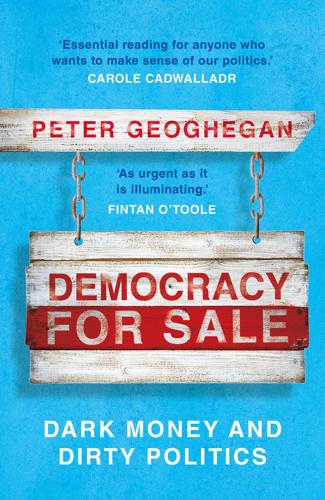
Democracy for Sale: Dark Money and Dirty Politics
by
Peter Geoghegan
Published 2 Jan 2020
The Koch brothers, David and Charles, co-owners of the second-largest private company in the United States with strong interests in coal and petroleum, spent more than $1.5 billion on Republican political causes until David’s death in 2019. The pair bankrolled countless conservative think tanks and politicians. Trump’s biggest backers included hedge fund billionaire Robert Mercer, whose data firm Cambridge Analytica also worked on Trump’s presidential campaign. In America, elections involving hundreds of millions of voters have become contests decided, in key constituencies, by a handful of plutocrats. In Britain, money has long played a determining role in politics. The ‘rotten boroughs’ of the 18th and 19th centuries were notoriously crooked, and their tiny electorates could be bought by influential patrons.
…
In an October 2015 diary entry in The Bad Boys of Brexit, Banks writes that Leave.EU had “hired Cambridge Analytica, an American company that uses ‘big data and advanced psychographics’ to influence people”.40 Cambridge Analytica, which went on to work for the Trump campaign, had a burgeoning reputation as the cutting edge in election black-ops. It was bankrolled by radical libertarian hedge fund billionaire and Trump backer Robert Mercer. His daughter Rebekah sat on the board, alongside Nigel Farage’s friend Steve Bannon. At the time, Cambridge Analytica was working on Republican presidential hopeful Ted Cruz’s campaign, boasting of using psychological data gleaned from tens of millions of Facebook users.41 This would later be at the centre of the scandal that brought down the company.
…
The firm later went into administration.27) This faith in monetarism brought him into the orbit of dark money-funded US conservative groups. In 2015, American Principles in Action paid for Baker to attend a conference on global finance in Jackson Hole, Wyoming. The conservative think tank has received funding from Robert Mercer and the Koch brothers. Another libertarian outfit, the American Liberty Fund, picked up the tab for Baker’s attendance at similar events in Britain, Italy and the US.28 Baker has also spoken at the Antigua Forum in Guatemala. Billed as “the accelerator for freedom”, this invitation-only gathering has featured an unlikely smattering of libertarians from around the world.
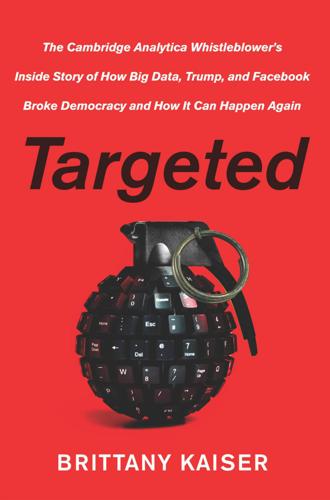
Targeted: The Cambridge Analytica Whistleblower's Inside Story of How Big Data, Trump, and Facebook Broke Democracy and How It Can Happen Again
by
Brittany Kaiser
Published 21 Oct 2019
“The Facebook Dilemma,” Frontline, PBS, October 29, 2018. 6.Ibid. 7.Ibid. 8.Ibid. 9: PERSUASION 1.James Swift, “Contagious Interviews Alexander Nix,” Contagious.com, September 28, 2016, https://www.contagious.com/news-and-views/interview-alexander-nix. 10: UNDER THE INFLUENCE 1.Jane Mayer, “The Reclusive Hedge-Fund Tycoon Behind the Trump Presidency,” The New Yorker, March 27, 2017, https://www.newyorker.com/magazine/2017/03/27/the-reclusive-hedge-fund-tycoon-behind-the-trump-presidency. 2.Jim Zarroli, “Robert Mercer Is a Force to Be Reckoned with in Finance and Conservative Politics,” NPR.org, May 26, 2017, https://www.npr.org/2017/05/26/530181660/robert-mercer-is-a-force-to-be-reckoned-with-in-finance-and-conservative-politic?t=1562072425069. 3.Gray, “What Does the Billionaire Family Backing Donald Trump Really Want?” 4.Matt Oczkowski, Molly Schweickert, “DJT Debrief Document.
…
What was more, according to the article, Cambridge was using that data as a weapon to affect the outcome of the Republican primaries and make Ted Cruz the GOP nominee.1 The story read like the plot of a spy novel. In it, reporter Harry Davies alleged that Cambridge had covertly acquired the Facebook data set and was now “embedded” in the Cruz campaign and deploying a powerful secret psyops weapon for targeting vulnerable voters. Behind the plot was the owner of Cambridge Analytica, Robert Mercer, who was, according to the Davies piece, a Dr. Evil–like American billionaire whose motivation was to disrupt the U.S. political system and advance a fringe right-wing agenda. The method Cambridge had used to acquire the data put it in direct violation of Facebook’s terms of service. CA had contracted with a man who himself violated Facebook’s service agreement when he used a third-party app, the infamous Friends API, to “hoover up” vast amounts of private information.
…
As it was, the ICO’s investigation determined there was “no evidence of a working relationship between [Cambridge Analytica] and Leave.EU proceeding beyond this initial phase.”2 A few days later, on a Saturday, an investigative journalist named Carole Cadwalladr published an article in the Guardian that took a long, hard look at what she alleged was a connection between Cambridge Analytica, Leave.EU, and Robert Mercer. Coming hot on the heels of the Das Magazin piece, which had slightly rattled Cambridge’s cage with claims that we had stolen user data and weaponized it to unethical ends, the Cadwalladr article was a hard blow. Cadwalladr’s article focused on campaign spending issues in general, including a potential violation even by Vote Leave, the Brexit campaign that had won the designation over Leave.EU.

The Death of Truth: Notes on Falsehood in the Age of Trump
by
Michiko Kakutani
Published 17 Jul 2018
Anger and fear is what gets people to the polls.” At the same time, the Trump campaign made shrewd and Machiavellian use of social media and big-data tools, employing information from Facebook and Cambridge Analytica (a data science firm partially owned by the Trump backer and Breitbart investor Robert Mercer that boasts of its ability to psychologically profile millions of potential voters) to target its advertising and plan Trump’s campaign stops. Facebook revealed that the data of as many as 87 million people may have been shared improperly with Cambridge Analytica, which used the information to help create tools designed to predict and influence voter behavior.
…
Steve Bannon, Trump’s now estranged adviser and the former executive chairman of Breitbart News, once described himself to a journalist as “a Leninist.” Writing in The Daily Beast in 2013, Ronald Radosh recounted that Bannon declared, “Lenin wanted to destroy the state, and that’s my goal, too. I want to bring everything crashing down, and destroy all of today’s establishment.” The conservative billionaire Robert Mercer, who helped finance Cambridge Analytica, thinks the less government the better. A former high-level employee of Mercer’s hedge fund told The New Yorker’s Jane Mayer: “He wants it to all fall down.” * * * — Not surprisingly, the two countries to master the black arts of propaganda in the twentieth century were the totalitarian states of Nazi Germany and the Soviet Union.
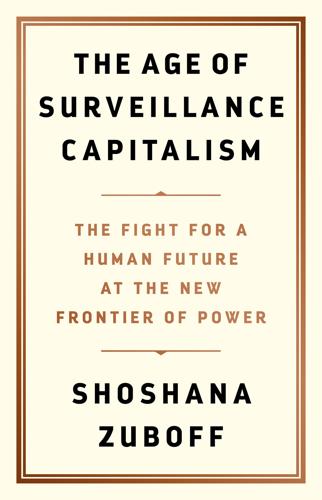
The Age of Surveillance Capitalism
by
Shoshana Zuboff
Published 15 Jan 2019
This process begins with business plans and marketing messages, new products and services, and journalistic representations that appear to accept the new facts as given.73 Among this new cohort of mercenaries was Cambridge Analytica, the UK consulting firm owned by the reclusive billionaire and Donald Trump backer Robert Mercer. The firm’s CEO, Alexander Nix, boasted of its application of personality-based “micro-behavioral targeting” in support of the “Leave” and the Trump campaigns during the ramp-up to the 2016 Brexit vote and the US presidential election.74 Nix claimed to have data resolved “to an individual level where we have somewhere close to four or five thousand data points on every adult in the United States.”75 While scholars and journalists tried to determine the truth of these assertions and the role that these techniques might have played in both 2016 election upsets, the firm’s new chief revenue officer quietly announced the firm’s less glamorous but more lucrative postelection strategy: “After this election, it’ll be full-tilt into the commercial business.”
…
“Introducing FBLearner Flow: Facebook’s AI Backbone,” Facebook Code, April 16, 2018, https://code.facebook.com/posts/1072626246134461/introducing-fblearner-flow-facebook-s-ai-backbone. 79. Andy Kroll, “Cloak and Data: The Real Story Behind Cambridge Analytica’s Rise and Fall,” Mother Jones, March 24, 2018, https://www.motherjones.com/politics/2018/03/cloak-and-data-cambridge-analytica-robert-mercer. 80. Carole Cadwalladr, “‘I Made Steve Bannon’s Psychological Warfare Tool’: Meet the Data War Whistleblower,” Guardian, March 18, 2018, http://www.the guardian.com/news/2018/mar/17/data-war-whistleblower-christopher-wylie-faceook-nix-bannon-trump; Kroll, “Cloak and Data.” 81. Matthew Rosenberg, Nicholas Confessore, and Carole Cadwalladr, “How Trump Consultants Exploited the Facebook Data of Millions,” New York Times, March 17, 2018, https://www.nytimes.com/2018/03/17/us/politics/cambridge-analytica-trump-campaign.html; Emma Graham-Harrison and Carole Cadwalladr, “Revealed: 50 Million Facebook Profiles Harvested for Cambridge Analytica in Major Data Breach,” Guardian, March 17, 2018, http://www.theguardian.com/news/2018/mar/17/cambridge-analytica-facebook-influence-us-election; Julia Carrie Wong and Paul Lewis, “Facebook Gave Data About 57bn Friendships to Academic,” Guardian, March 22, 2018, http://www.theguardian.com/news/2018/mar/22/facebook-gave-data-about-57bn-friendships-to-academic-aleksandr-kogan; Olivia Solon, “Facebook Says Cambridge Analytica May Have Gained 37m More Users’ Data,” Guardian, April 4, 2018, http://www.theguardian.com/technology/2018/apr/04/facebook-cambridge-analytica-user-data-latest-more-than-thought. 82.
…
See also means of behavioral modification Meckling, William, 38 media use, international study of “unplugging” from, 445, 446 medical fields: and emotion analytics, 288; and internet of things, 247–251 mental health: depression, 275, 287, 446, 464–465; and Facebook use, 446, 463–465; monitoring of, 412; predictions of, 275 Mercer, Robert, 278 Mercury News, 116 meta-data, 117–118, 245, 272–273, 275 Meyer, Max, 362–363, 363–364, 364–366, 372, 412, 633n39, 634n42, 634n44, 635n45 Meyer, Michelle, 304 m-health (mobile health apps), 248–251 Michaels, Jon, 119 Microsoft, 24, 400; Bing search engine, 95, 162, 163; collaboration with metal-cutting factory, 407–409; Cortana digital assistant, 163–164, 165, 255, 400; Inktomi search engine, 71; and insurers, 217; patents filed by, 411–412; revenues of, 165–166, 405; surveillance capitalism spreads to, 9, 162–163; and voice recognition, 263; Windows 10 operating system, 164–165.
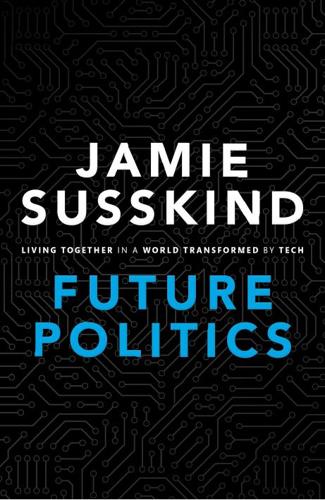
Future Politics: Living Together in a World Transformed by Tech
by
Jamie Susskind
Published 3 Sep 2018
Peter Martinez, ‘Study Reveals Whopping 48M Twitter Accounts Are Actually Bots’, CBS News, 10 March 2017 <http://www.cbsnews. com/news/48-million-twitter-accounts-bots-university-ofsouthern-california-study/?ftag=CNM-00-10aab7e&linkId= 35386687> (accessed 1 December 2017). 18. Carole Cadwalladr, ‘Robert Mercer:The Big Data Billionaire Waging War on Mainstream Media’, The Guardian, 26 February 2017 <https:// www.theguardian.com/politics/2017/feb/26/robert-mercer-breitbart-war-on-media-steve-bannon-donald-trump-nigel-farage> (accessed 1 December 2017). 19. See Leo Kelion and Shiroma Silva, ‘Pro-Clinton Bots “Fought Back but Outnumbered in Second Debate” ’, BBC News, 19 October 2016<http://www.bbc.com/news/technology-37703565> (accessed 1 December 2017); Amanda Hess, ‘On Twitter, a Battle Among Political Bots’, New York Times, 14 December 2016 <https://mobile. nytimes.com/2016/12/14/arts/on-twitter-a-battle-among-politicalbots.html?
…
MIT Technology Review, 7 Feb. 2017 <https://www.technologyreview.com/s/603431/as-goldman-embracesautomation-even-the-masters-of-the-universe-are-threatened/ ? s e t = 6 0 3 5 8 5 & u t m _ c o n t e n t = bu f f e rd 5 a 8 f & u t m _ m e d i u m = social&utm_source=twitter.com&utm_campaign=buffer> (accessed 1 Dec. 2017). Cadwalladr, Carole. ‘Robert Mercer: The Big Data Billionaire Waging War on Mainstream Media’. The Guardian, 26 Feb. 2017 <https://www. theguardian.com/politics/2017/feb/26/robert-mercer-breitbart-war-onmedia-steve-bannon-donald-trump-nigel-farage> (accessed 1 Dec. 2017). Calabresi, Guido, and Philip Bobbit. Tragic Choices: The Conflicts Society Confronts in the Allocation of Tragically Scarce Resources.
…
‘Joseph Schumpeter’, Wikipedia, last edited 23 December 2017 <https://en.wikipedia.org/wiki/Joseph_Schumpeter> (accessed 21 January 2018). 35. Pedro Domingos, The Master Algorithm: How the Quest for the Ultimate Learning Machine Will Remake Our World (London: Allen Lane, 2015), 17. 36. Carole Cadwalladr, ‘Robert Mercer:The Big Data Billionaire Waging War on Mainstream Media’, The Guardian, 26 February 2017 <https:// www.theguardian.com/politics/2017/feb/26/robert-mercerbreitbart-war-on-media-steve-bannon-donald-trump-nigel-farage> (accessed 1 December 2017). 37. Edward L. Bernays, ‘The Engineering of Consent’, ANNALS of the American Academy of Political and Social Science 250, no. 1 (1947), 113–20, cited in Zeynep Tufekci, ‘Engineering the Public: Big Data, Surveillance and Computational Politics’, First Monday 19, no. 7 (7 July 2014). 38.
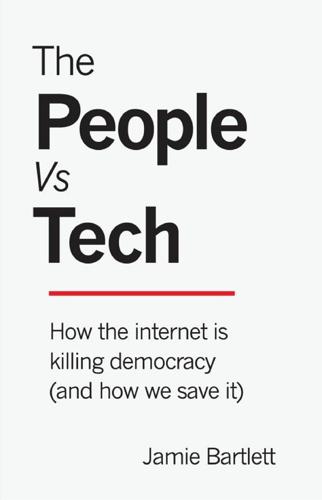
The People vs Tech: How the Internet Is Killing Democracy (And How We Save It)
by
Jamie Bartlett
Published 4 Apr 2018
In 2008, for example, analysts working for Barack Obama assigned a pair of scores to every voter in the country that predicted how likely they were to cast a ballot, and whether they supported his campaign.7 Hillary Clinton, too, had an extremely sophisticated system of targeting voters online.8 Every election now is a mini arms race. And this time the Republican Party turned to a company, Cambridge Analytica, in order to get the edge on the opposition. It was not a coincidental choice. One of Cambridge Analytica’s key investors is the billionaire businessman and Trump backer Robert Mercer, a famously reclusive computer programmer who made his fortune as co-chief executive of the New York-based hedge fund, Renaissance Technologies. RenTech, as it is known, uses big data and sophisticated algorithms to predict trends in global markets and place winning bets on them. In this world tiny gains, a fraction of a per cent here or there, can yield huge rewards.
…
But the more politics becomes a question of smart analysis and nudges rather than argument, the further power will shift away from those with good ideas and towards those with good data and lots of money. * * * • • • It turned out that Project Alamo was a small piece of a much bigger puzzle in which influential people battled over the shape of reality. Robert Mercer had also invested in Breitbart News – best described as a right-wing Huffington Post that specialises in stories castigating liberals, bad Muslims, and the ‘mainstream media’ – which became a highly influential source of anti-Clinton and pro-Trump news. According to the academic Jonathan Albright, the US election was dominated by a ‘micro-propaganda machine’, a network of thousands of web pages from the radical right hyper-linking to each other and spreading ‘false, hyper-biased, and politically loaded information’.
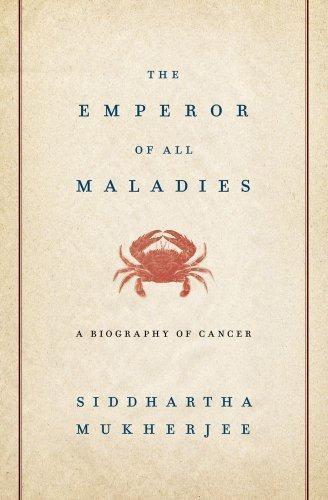
The Emperor of All Maladies: A Biography of Cancer
by
Siddhartha Mukherjee
Published 16 Nov 2010
By the early winter of 1948, more children were at his clinic: a three-year-old boy brought with a sore throat, a two-and-a-half-year-old girl with lumps in her head and neck, all eventually diagnosed with childhood ALL. Deluged with antifolates from Yella and with patients who desperately needed them, Farber recruited additional doctors to help him: a hematologist named Louis Diamond, and a group of assistants, James Wolff, Robert Mercer, and Robert Sylvester. Farber had infuriated the authorities at Children’s Hospital with his first clinical trial. With this, the second, he pushed them over the edge. The hospital staff voted to take all the pediatric interns off the leukemia chemotherapy unit (the atmosphere in the leukemia wards, it was felt, was far too desperate and experimental and thus not conducive to medical education)—in essence, leaving Farber and his assistants to perform all the patient care themselves.
…
H., 364 Leakey, Louis, 43 Leder, Philip, 382–83, 384 Lederle Labs, 31, 33 Lee, Philip, 186 Lee, Rose, 75–76 LeMaistre, Charles, 260 Leopold Cassella Company, 85 Lerner, Max, 398 Let Me Down Easy (Smith), 305 leukemia, 3, 260, 337, 375, 439, 451 acute myeloid (AML), 16–17 acute promyelocytic (APL), 407–10 in adults, 17, 306 antifolates and, 29, 31, 33, 35, 87, 91, 92, 95, 96, 100, 101, 103, 114, 121, 136, 162 bone marrow transplants for, 309 brain as “sanctuary” for, 127, 146–47, 442 “cancer stem cells” and, 458–59 chemotherapy for, 19–20, 21, 27, 29–30, 31, 33–36, 92, 100, 101, 103–4, 122, 132–34, 135, 140–42, 167–70, 308, 339, 401, 443; see also specific regimens in children, 7, 12, 17, 19, 32–36, 92, 96, 101, 103–4, 123, 133, 139, 163, 166, 170, 179, 231, 232, 401 chronic myeloid (myelogenous), see chronic myeloid (myelogenous) leukemia chronic vs. acute, 16 discovery of, 12–14 Farber’s research on, 19–20, 21, 27, 29–30, 31, 33–36, 95, 100, 101, 114, 121, 122–23, 130, 132, 136, 158, 309, 338, 433, 439 folic acid and, 29 L-1210, 140–41 Marie Curie’s death from, 78, 347 as measurable, 19 multiplicity of symptoms in, 13 naming of, 14 as outcome of chemotherapy for other cancers, 165, 306, 312 radiation therapy for, 168–70 relapses of, 35, 91, 132, 133, 147, 165, 166, 170, 442 remissions of, 34, 35, 101, 127, 133, 145–46, 179, 190 research consortium for, 130–31, 133, 144 vincristine and, 139–40 see also acute lymphoblastic leukemia Levi, Primo, 394 Levinson, Art, 358n, 418, 427 Levittown, 22–23 Li, Min Chiu, 135–36, 139, 168, 219 Life, 24, 175 life expectancy, in U.S., 22, 45 Li-Fraumeni syndrome, 381 Liggett, 269–71 Lindskog, Gustaf, 90 linear accelerators, 158–59 Lister, Joseph, 57–58, 62 Little, Clarence Cook, 111, 112, 113, 253–54, 255, 263 liver cancer, 280, 290, 340 Lives of a Cell, The (Thomas), 430 Lockhart-Mummery, John, 286 London, Jack, 218 London School of Tropical Medicine, 245 Longoria, Ethel, 136 Lord and Thomas, 109 Lorde, Audre, 227 Lorillard Tobacco Company, 269–71, 273 Los Angeles Times, 73 Love Story, 181 lumpectomies, 194–95, 464 lung cancer, 45, 158, 388–90, 450, 451 chemotherapy for, 162, 308–9, 389, 403–4, 443 increased rate of, 231 mesothelioma, 276–77 metastasis of, 208, 256, 267, 269, 307, 389–90, 403 morbidity rates of, 243, 331 mortality rates of, 331, 401 premalignant stage of, 385 radiation therapy for, 158, 403 smoking and, see tobacco-cancer link surgical removal of, 59, 72, 256 in women, 331 lung disease, 259 Lydon, Nick, 432–33, 434, 435 lymph nodes, 157 surgical removal of, 58, 65, 194 lymphoid cells, 17 lymphomas, 151–52, 228, 316 chemotherapy for, 90–91, 96–97, 122, 132–34, 135, 162, 401, 443 cure rate of, 233 Hodgkin’s, see Hodgkin’s lymphoma radiation therapy for, 77, 158 relapses of, 91 Lynch, Henry, 381 Lynch, Thomas, 307–8, 403–4 Lynch syndrome, 381 McGregor, Marilyn, 429 Madagascar periwinkle, 139 magic bullets, 86–88, 222, 304 Magic Mountain, The (Mann), 38 Magnuson, Warren, 25 Magrath, Ian, 207 malaria, 245 Malmö, Sweden, 298, 300–301 Malmö Mammography Study, 300–301 malnourishment, anemia and, 28–29 mammography, 44, 228, 290–91 benefits of, as age-dependent, 300–302 Canadian trial (CNBSS) of, 298–300, 302 Edinburgh trial of, 298 HIP trial of, 294–96, 297 metastasis and, 302–3 mortality rates and, 296, 297, 300–301, 331–32, 402 NCI project (BCDDP) for, 296–98, 302 Swedish trials of, 298, 300–301 Manhattan Project, 119, 120, 186 Mann, Thomas, 38 March of Dimes, 94 marijuana, as antiemetic, 205 Marine Hospital, U.S., 26 Marlboro Man, 251 Marmite, 28 Marshall, Barry, 276, 281, 282–84, 456 Martin, Steve, 358 Masi, Phil, 97–98 Massachusetts, 325 Massachusetts General Hospital, 3, 56, 223, 320, 390, 398, 403, 437, 451 mastectomies, 49, 419 of Atossa, 5, 41–42, 463 disfigurement from, 65–66, 294 prophylactic, 457–58, 464 radical, 23, 64–72, 73, 109–10, 173, 193–95, 196, 197, 198–201, 202, 218, 219, 225, 294, 463 simple (local), 67, 197, 201, 464 success rate of, 66–69 Master Settlement Agreement (MSA), 273 Matter, Alex, 432–33 mauve, 81–82 Mayer, Robert, 130–31, 311, 326, 328 Mayfield, Jerry, 441, 442–43 MD Anderson Cancer Center, 147, 366, 438 measurement: of leukemia, 19 of negative claims, 167–68 of radiation, 74 in War on Cancer, 227, 231, 232–33 Medical and Chirurgical Society, 157 Medical Journal of Australia, 283 Medical Research Council (British), 131, 243–44 Medical World News, 349 medicine: synthetic chemistry and, 83–84 as technological art, 462 Mek protein, 387, 454 melanoma, 451 Memorial Sloan-Kettering, 92, 135, 138, 167n, 184, 234, 424 Mendel, Gregor, 343–44, 346, 364, 366, 369 meningiomas, 71 menopausal symptoms, 456 Mercer, Robert, 34 Merck, 21 Meselson, Matthew, 345 meta-analysis, 261 metastasis, metastases, 16, 38, 39, 55, 58, 123, 135, 136, 154, 161, 196–97, 204, 223, 391, 442, 465, 467 of breast cancer, 67, 76, 161, 217, 218, 302–3, 314, 322, 325, 329, 419, 422, 424, 463, 465 of Hodgkin’s lymphoma, 163 as inevitable, 79 of lung cancer, 208, 256, 267, 268, 307, 389–90, 403 methotrexate, 127, 132–33, 137, 138, 140, 162, 164, 219, 220, 338 Mexico, cigarette regulation in, 274 Meyer, Willy, 65, 78–79, 80, 219 mice, transgenic, 382–83, 384 microtubules, 140 Middle Ages, medical knowledge in, 49–50, 51–53 Million Women Study, 456 Milosz, Czeslaw, 116 Milstein, Cesar, 417, 419 Ministry of Health, British, 243 Ministry of Health, Mexican, 274 Minot, George, 27–28, 29 Mississippi, antitobacco lawsuit of, 272–73 mitosis, 451 mitosis, pathological, 348, 351, 355, 359, 387, 391 see also hyperplasia, pathological Mizutani, Satoshi, 353 molecular biology, “central dogma” of, 346, 352, 354, 357 molecular pumps, 442 molecules: decoy, 31, 87 structural view of, 432 as switches, 28 see also receptors Moloney, William, 143 Monod, Jacques, 20, 345, 346 mononucleosis, 175 Montagnier, Luc, 318 Moore, Charles, 64 Moore, Michael, 272–73 MOPP, 164–66, 208 Morbid Anatomy of Some of the Most Important Parts of the Human Body, The (Baillie), 53 Morgan, Thomas Hunt, 344, 346, 347–48, 364 Morison, Robert, 116 morphine, 63, 149, 225 mortality rates, of cancer, xi, 25, 105, 228–30, 293, 401 age-adjusted, 230–31, 232–33, 330 of breast cancer, 296, 297, 300–301, 401–2 dynamic equilibrium in, 330–31 mortality rates, of tuberculosis, 229 Morton, William, 56 motility, of cancer cells, 386, 387, 388 see also metastasis, metastases MRIs, 457, 464 Mukherjee, Leela, 398 Mukherjee, Siddhartha: Berne and, 467–70 and daughter’s birth, 398–99 as oncology fellow, 2–5, 168, 190, 305–6, 307–8, 337, 390, 398–99, 437–38, 467 Orman and, 152–53, 399–400 palliative care suggested by, 223–24 Reed and, 2–3, 7, 17–18, 127, 168–69, 190, 337, 338–39, 400, 448–49 Sorenson and, 153–55 tobacco-cancer link in patients of, 274–75 Muller, Hermann Joseph, 347–48 multidose regimens, see chemotherapy, high-dose multidrug regimens in multiple myeloma, 309, 443–44 mummies, cancer in, 43, 45 Murayama, Hashime, 288 Murphy, Mary Lois, 92 mustard gas, see nitrogen mustard mutagens, mutagenesis, 278, 303, 347, 348, 362, 364, 406, 456 mutation, genetic, 377 in bacteria, 277–78 Cancer Genome Atlas and, 450–54 causes of, see mutagens, mutagenesis driver (active), 453 frequency of, 451–52 in fruit flies, 347 functional vs. structural view of, 455 as governing all aspects of cancer, 387–88, 462 as mechanism of carcinogenesis, 6, 39, 176, 278, 357, 362, 370, 380–83, 384–88, 390–92, 403, 406, 449–50, 462, 464–65 passenger (passive), 452–53 see also oncogenes myc (c-myc) gene, 382–83, 384, 391, 410, 412, 453–54, 458 mycobacteria, 84, 131 myelodysplasia, 306, 309, 312 myeloid cells, 16–17 Myriad Genetics, 381 Nathan, David, 140 National Alliance of Breast Cancer Organizations (NABCO), 327 National Breast Cancer Coalition (NBCC), 426, 429 National Cancer Act (1971), 188, 189 National Cancer Institute (NCI), 15, 114, 130, 158, 159, 166, 177, 188, 228, 231, 318, 325, 330, 339, 374, 393, 443 chemotherapy protocols of, 132–42, 143–50, 164–66, 206–8, 219–20, 232, 310, 317 Clinical Center of, 128–29, 139, 145, 162, 165, 260 creation of, 25–26 Institutional Board of, 137 mammography project (BCDDP) of, 296–98, 302 Pap smear trial of, 289–90 preventative strategies neglected by, 233–34 Special Virus Cancer Program of, 175–76, 280–81, 356, 357 National Cancer Institute Act (1937), 25 National Health Service, British, 294 National Institutes of Health (NIH), 25n, 121, 187, 188, 202–3, 260, 319 National Library of Medicine, 261 National Program for the Conquest of Cancer, 184 National Science Foundation (NSF), 121 National Surgical Adjuvant Breast and Bowel Project (NSABP), 200–201 National Tuberculosis Association, 259 natural selection, 248 Nature, 354, 379 Nature Medicine, 435 nausea, from chemotherapy, 165, 205–6, 209, 226, 305 Nazis, 290 Neely, Matthew, 25, 173 negative statistical claims, 197–98 Nelson, Marti, 424–25, 429 “funeral procession” for, 425–26 neoplasia, 16, 42, 385 neu, 410–11, 412, 413, 420 neuroblastomas, 410, 413 New England Journal of Medicine, 35–36, 161, 229, 330, 385 Newton, Isaac, 370 New York, HIP in, 294–96, 297 New York, N.Y., AIDS in, 316, 318 New York Amsterdam News, 286 New York Times, 24, 26–27, 105, 117, 119–20, 180–81, 183, 319, 327, 455 Neyman, Jerzy, 197–98 nicotine: addictive properties of, 270–71 see also cigarettes; smoking; tobacco; tobacco industry Nisbet, Robert, 193 nitrogen mustard, 207, 220, 257 bone marrow affected by, 88, 90 DNA damaged by, 163, 406 hyperplasia as halted by, 163, 406 as mustard gas, 87–88, 89–90, 162–63 nitrosoguanidine derivatives, 278 Nixon, Richard M., 180–81, 183, 184, 187–88 Nobel Prize, 28, 87, 91, 176, 348, 363 Norris Center, 323 Norton, Larry, 327, 426 Novartis, 436, 439 Nowell, Peter, 365 NSABP-04 trial, 200–201, 203, 220 Nuland, Sherwin, 38 Ochsner, Alton, 256–57 Oedipus the King (Sophocles), 321 Office of Scientific Research and Development (OSRD), 90, 119 Oliver Twist (Dickens), 239 oncogenes, 363, 366, 370–71, 380, 384, 402, 409–11, 412, 415, 431, 439, 443, 450, 453, 454, 462, 466 amplification of, 416 pathological hyperplasia induced by, 357–59, 372, 431 proto-, see proto-oncogenes see also specific genes oncology, oncologists, 304, 433 AIDS and, 316–17 death and, 4, 306–8, 337–38 fellowships in, 2–5, 168 origin of term, 47 overconfidence of, 223, 226, 231–32, 234, 308, 310 palliative care and, 224–26, 307 patients’ relationships with, 199, 202, 209, 306–8, 449 radiation, see radiation therapy OncoMouse, 382–83, 384 onkos, 47 etymology of, 466–67 “On Some Morbid Appearances of the Absorbent Glands and Spleen” (Hodgkin), 157 opiates, 226 Oregon Health and Science University (OHSU), 434 Orman, Ben, 151–53, 155, 399–400 Osler, William, 45 osteosarcomas (bone tumors), 43 ovarian cancer, 59, 162, 346, 381, 450, 451, 457 ovaries, removal of, 214, 215 Pacific yew tree, 206 Pack, George, 70–71 Padhy, Lakshmi Charon, 410–11 Page, Irvine, 187 paleopathology, 42 palliative care, 223–26, 231, 307 drug trials for, 226 pancreas, 154, 414 pancreatic cancer, 154, 158, 450, 451, 465 Panel of Consultants, 184, 188 Panzer, Fred, 270 Papanicolaou, George, 286–90, 291, 384–85, 386, 401 Papanicolaou, Maria, 287 papillomavirus, 174, 349n, 381n Pap smears, 228, 286, 287–90, 296, 303, 331, 381, 385, 401 Paré, Ambroise, 49 Paris, University of, 51 Park, Roswell, 24, 45 Parliament cigarettes, 269 Pasteur, Louis, 57 pathology, pathologists, 11–12, 14 Hodgkin’s approach to, 156–57 Patterson, James, 183 PCP (Pneumocystis carinii), 165, 315–16 Pearson, Egon, 197–98 pectoralis major, 64–65 pectoralis minor, 64 pellagra, 110 penicillin, 21–22, 122, 129, 465–66 Penicillium, 122 Pepper, Claude, 26n peptic ulcers, 281–84 Perkin, William, 81–82, 83 pernicious anemia, 27–28, 31 Peru, 42–43 pesticides, 456–57 Peters, Vera, 159–60 Peters, William, 311–15, 319–20, 321, 325, 326, 329 Peto, Richard, 241, 249, 273–74, 462 pharmaceutical industry, 426 see also specific companies Philadelphia chromosome, 365, 430–31 Philip Morris, 251, 269–71, 273 phlegm, 48 phosphorylation, 358–59, 361, 380, 418, 431–32 Piccolo, Brian, 181 Pim, Isabella, 58 Pinkel, Donald, 123, 167–68, 170, 178 pitchblende, 74 pituitary cells, 414 placebos, in randomized trials, 131–32, 319 placenta, 135, 219 platelets, 18 Plato, 370 Pneumocystis carinii (PCP), 165, 315–16 pneumonectomy, 242 pneumonia, 45 PCP, 165, 315–16 Poet Physicians, 60 polio, 22, 229, 342, 466 national campaign against, 93–94, 175 Popper, Karl, 370 population, U.S., aging of, 230 Postmortem Examination, The (Farber), 19 Pott, Percivall, 173, 237–39, 241, 276, 447 precancer, 286, 306, 455 Auerbach’s research on, 258–59, 284, 289 prednisone, 127, 140, 143, 149 see also VAMP regimen Premarin, 213 preventive medicine, 281 epidemiology and, 290 see also cancer prevention procarbazine, 162, 164 product-liability lawsuits, 269–73, 401 progesterone, 456 “Progress Against Cancer?”
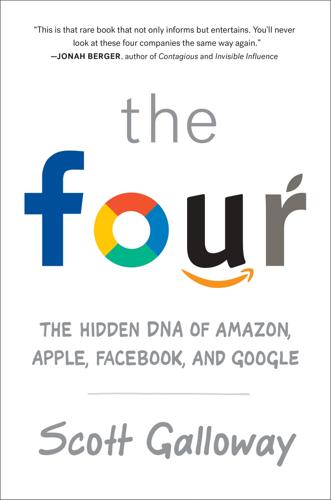
The Four: How Amazon, Apple, Facebook, and Google Divided and Conquered the World
by
Scott Galloway
Published 2 Oct 2017
Grassegger, Hannes, and Mikael Krogerus. “The Data That Turned the World Upside Down.” Motherboard. January 28, 2017. https://motherboard.vice.com/en_us/article/how-our-likes-helped-trump-win. 19. Cadwalladr, Carole. “Robert Mercer: The big data billionaire waging war on mainstream media.” Guardian. February 26, 2017. https://www.theguardian.com/politics/2017/feb/26/robert-mercer-breitbart-war-on-media-steve-bannon-donald-trump-nigel-farage. 20. “As many as 48 million Twitter accounts aren’t people, says study.” CNBC. April 12, 2017. http://www.cnbcafrica.com/news/technology/2017/04/10/many-48-million-twitter-accounts-arent-people-says-study/. 21.
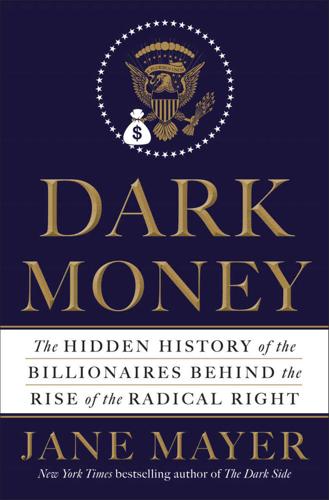
Dark Money: The Hidden History of the Billionaires Behind the Rise of the Radical Right
by
Jane Mayer
Published 19 Jan 2016
Soon after, Democrats began criticizing the carried-interest tax loophole and other accounting gimmicks that helped financiers amass so much wealth. In the wake of the 2008 market crash, as Obama and the Democrats began talking increasingly about Wall Street reforms, financiers like Schwarzman, Cohen, and Singer who flocked to the Koch seminars had much to lose. The hedge fund run by another of the Kochs’ major investors, Robert Mercer, an eccentric computer scientist who made a fortune using sophisticated mathematical algorithms to trade stocks, also seemed a possible government target. Democrats in Congress were considering imposing a tax on stock trading, which the firm he co-chaired, Renaissance Technologies, did in massive quantities at computer-driven high frequency.
…
(After The New Yorker published my investigative article on the Kochs, “Covert Operations,” that August, The Daily Caller was the chosen receptacle for the retaliatory opposition research on me, although, after it proved false, the Web site decided not to run it.) Only in 2011 did it surface that in New York, at least, the “Ground Zero mosque” controversy had been stirred up for political gain in part by money from Robert Mercer, the co-CEO of the $15 billion Long Island hedge fund Renaissance Technologies. To aid a conservative candidate in New York, Mercer gave $1 million to help pay for ads attacking supporters of the “Ground Zero mosque.” A former computer programmer who had a reputation as a brilliant mathematician and an eccentric loner, Mercer was a relative newcomer to the Koch summits.
…
The club had developed the use of fratricide as a tactic to keep officeholders in line after becoming frustrated that many candidates it backed became more moderate in office. It discovered that all it had to do was threaten a primary challenge, and “they start wetting their pants,” one founder joked. Its top funders included many in the Koch network, including the billionaire hedge fund managers Robert Mercer and Paul Singer and the private equity tycoon John Childs. The Young Guns portrayed their opposition to compromise as a matter of pure principle, but beneath the surface huge vested interests were at play. The president and Boehner were close to negotiating what they called a “grand bargain” that anticipated closing some tax loopholes.
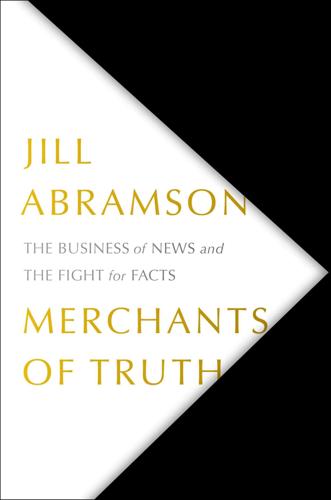
Merchants of Truth: The Business of News and the Fight for Facts
by
Jill Abramson
Published 5 Feb 2019
The day after Coppins’s piece was published, Trump’s handler Sam Nunberg, who had granted the reporter access, resigned, calling the story “an incredible pejorative hit piece” and wishfully declaring the BuzzFeed writer’s “professional reputation . . . null and void.” Trump had already blacklisted the site. In mounting his counterstrike, Trump would call upon a new ally, one who was itching to make use of a well-stocked arsenal. He enlisted Bannon, who had positioned himself to play a big role in politics with funding from Robert Mercer. Mercer wanted to expand Breitbart, and Bannon, seeing his opportunity, wrote up a business plan on his friend’s behalf. That summer Mercer ponied up the $10 million and made Bannon a co-owner and director of the company. In the immediate aftermath of the Coppins piece, Bannon’s Breitbart marshalled an impressive multipronged takedown of the BuzzFeed author.
…
R., 402 Knight Ridder newspaper chain, 26, 67, 226 sale of, 235–36 Knoxville, Johnny, 51, 57, 180 Koch brothers, 382 Kosinski, Michal, 278–79 Kurtz, Howard, 92, 93 Kushner, Jared, 224, 416 Laessig, Gavon, 314–15 Landman, Jon, 192 Larry King Live (TV show), 92 Larsen, Kaj, 355, 362 Last Week Tonight (TV show), 389 Lattman, Peter, 343–44 Laurence, Guy, 358 Law of the Few, 112 Leen, Jeff, 233 Lelyveld, Joe, 8, 152, 191, 372, 375, 429 Lennard, Natasha, 361–62 Leonhardt, David, 212, 381 Leopold, Jason, 178, 345 Lerer, Kenneth, 20–23, 24, 25, 31, 103, 123, 328, 344 Levien, Meredith Kopit, 375, 376 Levy, Cliff, 172 Lewandowski, Corey, 409 Lewinsky, Monica, 195, 239, 284 Lewis, Anthony, 421 Lewis, Luke, 311 Lexington Herald-Leader, 235 LGBT rights, 140 Libby, Lewis “Scooter,” 93, 198 Liberman, Megan, 135 Liberty Film Festival, 285 Libya, kidnapping of correspondents in, 208 Lichtblau, Eric, 215, 383–85 Lieberman, Joseph, 51–52 Lifetime, 335 Lily, The, 425 Lipton, Eric, 390 Lipton, Martin, 63 Lockheed Martin, 54–55 London Underground, 2005 terrorist attack in, 55 long-form journalism: as Marilyn Thompson’s specialty, 233–37 Post’s reputation for, 233 speeded-up news cycle as enemy of, 237, 417 Los Angeles Times, 3–4, 25, 236, 383 Baquet as editor of, 199 Tribune company’s purchase of, 226 wall between news and advertising departments crossed by, 71 Love, Reggie, 177 Loxodo (Post metrics tool), 267, 414 Luo, Patrick, 206 Lytvynenko, Jane, 340–41 Ma, Christopher, 95–96 Ma, Olivia, 95 McCain, John, 131, 132 McChrystal, Stanley, 130 McClatchy newspaper chain, 80, 94, 226, 236 McConnell, Mitch, 236 Macedonia, fake news industry in, 297–98 machine learning, 34–35, 109, 330–31 McInnes, Gavin, 42–43, 147, 148 American Conservative column of, 50 in buyback of Vice, 47 in exit from Vice, 58, 181, 369 as Proud Boys founder, 368 racism and misogyny of, 43–44, 46, 48–49, 50, 59 as Vice Media cofounder, 43–44 McIntire, Mike, 379 McKinsey & Company, 68–69, 71, 72, 193, 213 Magazine, Das, 279 Maher, Bill, 44, 178, 347 Mainland, Lexi, 203–4 Manafort, Paul, 382 Mansformation (TV show), 335 Marlow, Alex, 287 Marlow, Cameron, 16, 17, 104 Marra, Greg, 105 Marshall, Josh, 73, 94 Martel, Ned, 250 Martin, Trayvon, 111 Mashable, 344, 367 Massie, Chris, 313, 316 Mastromonaco, Alyssa, 177, 348, 363 Mayer, Jane, 196, 307, 382 Meet the Press (TV show), 339 Meme Magic Secrets Revealed (Gionet), 312 memes, definition of, 17 Menkes, Suzy, 211 Mercer, Robert, 306, 307 Mercer family, 279, 298, 307, 374, 382 Me Too movement, 210, 361, 392, 425, 426 metrics: Chartbeat and, 243–47, 262, 266 Post’s use of, 266–68, 414, 416 Times’s use of, 267, 425 Meyer, Eugene, 83 Miami Herald, 201 Mic, 275 Miller, Judith, 79, 80, 93, 385 Miller, Katherine, 305, 308–9, 316–17, 321 Miller, Zeke, 129, 135, 339 mimetic desire, 273 MIT Media Lab, 16, 18 Mohonk Group, 76 Mojica, Jason: journalistic credibility of, 356 sexual harassment accusations against, 361–63 Veltroni’s affair with, 359–61, 362 as Vice News head, 352, 356–57 Monde, Le, 113 Moore, Roy, 416, 425 Moretti, Eddy, 50, 160 Morgenson, Gretchen, 190 Morris, Errol, 180 Morris, Hamilton, 180–81 Morton, John, 261 Morton, Thomas, 148 appointed Vice website editor, 150 as archetypical Vice reader, 147 Gross Jar and, 149–50 Gullah moonshine video of, 155–56 and HBO weekly Vice show, 355 immersive videos of, 155–58, 171–72 inaccurate Uganda documentary by, 172 as media star, 180–81 on-air persona of, 155 Vice articles by, 150 Vice articles of, 151–52 Vice’s hiring of, 147–48 Mossberg, Walt, 240 Mother Jones, 324 Moynihan, Michael, 351 MSNBC, 377 MTV, 51–52, 57, 152–53, 154 Mueller, Robert, 382, 416 Muir, David, 427 Murdoch, Rupert, 28, 60, 67, 154, 177, 229, 420, 427 Vice investment of, 366 Wall Street Journal acquired by, 183, 229 Murphy, Eileen, 203 MySpace, 154 Narisetti, Raju, 266 digitally-experienced news staff hired by, 247–48, 249 in exit from Post, 251 named Post managing editor, 238 revenue-generating projects pushed by, 250 staff cuts by, 243 website metrics as focus of, 242–43, 245 website traffic increased by, 250–51 National Public Radio, 77 National Security Agency (NSA), Snowden leaks and, 80, 215, 259–60, 268, 382 native advertising, 40–41, 52, 71, 412–13 Abramson’s opposition to, 214, 215 authenticity and, 160 BuzzFeed’s use of, 120–23, 136–37, 337, 343 importance of verisimilitude in, 121, 136 as needing to harmonize with surrounding content, 161 Obama 2012 campaign and, 136–37 Vice Media and, 158–59 virality and, 122–23 Needleman, Deborah, 210 Negroponte, Nicholas, 16 Netflix, 329, 344 network news, declining audience for, 153 Nevins, Sheila, 178 NewFronts, 336 New Museum of Contemporary Art, 19 New Republic, 135, 139 News about the News, The (Downie and Kaiser), 89 news cycle, speeding up of, 5, 32–33, 98, 133–34, 185, 237 accuracy as victim of, 238 as enemy of investigative journalism, 383 internet and, 239–40 news fatigue, 26 NewsFeed (podcast), 342 news media: cuts to foreign desks by, 174 digital, see digital news media emotionally charged stories in, 111 female-centric projects of, 425 imperilled watchdog function of, 89 internet and unbundling of, 52 loss of public trust in, 3, 4, 80, 95, 185, 386–87, 424, 426–27 news media (cont.)
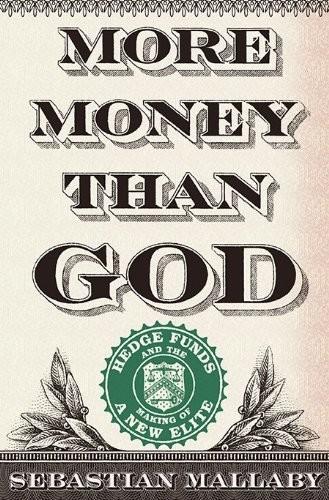
More Money Than God: Hedge Funds and the Making of a New Elite
by
Sebastian Mallaby
Published 9 Jun 2010
The Renaissance researchers built systems that were in a class of their own. “I can only look at them and realize that you have the gods of the business and then you have mere mortals like me,” Wadhwani said, echoing the view of the entire industry.20 IN 1993 SIMONS MADE TWO IMPORTANT ADDITIONS TO HIS brain trust: Peter Brown and Robert Mercer. They came from IBM’s research center, and they drove much of the success of Medallion over the next years, eventually taking the reins when Simons opted for retirement. The two men complemented each other well. Brown was a magnesium flare of energy: He slept five hours per night, riffed passionately on every topic of the day, and for a while got around the office on a unicycle.
…
Shaw grew out of statistical arbitrage in equities, with strong roots in fundamental intuitions about stocks, Renaissance grew out of technical trading in commodities, a tradition that treats price data as paramount.28 Whereas D. E. Shaw hired quants of all varieties, usually recruiting them in their twenties, the crucial early years at Renaissance were largely shaped by established cryptographers and translation programmers—experts who specialized in distinguishing fake ghosts from real ones. Robert Mercer echoes some of Wepsic’s wariness about false correlations: “If somebody came with a theory about how the phases of Venus influence markets, we would want a lot of evidence.” But he adds that “some signals that make no intuitive sense do indeed work.” Indeed, it is the nonintuitive signals that often prove the most lucrative for Renaissance.
…
John Magee, a leading technician of the 1950s, made a point of reading the newspapers two weeks late in order to be sure that knowledge of the economy would not cloud his judgment. 29. Mercer says, “We will contemplate any proposed signal. But if somebody comes with a theory that does not make intuitive sense, we would examine it especially carefully.” (Robert Mercer, interview with the author, July 28, 2008.) The same willingness to trade on statistical evidence was shared by earlier contributors to Medallion’s success. For example, Elwyn Berlekamp recalls, “Mostly we looked at statistics at Medallion. We found that attempts to look at fundamentals did not get us very far.”
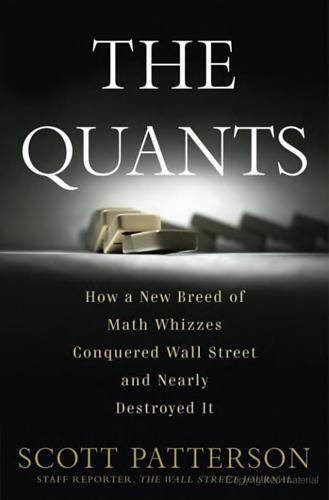
The Quants
by
Scott Patterson
Published 2 Feb 2010
Renaissance has applied that skill to enormous strings of market numbers, such as tick-by-tick data in oil prices, while looking at other relationships the data have with assets such as the dollar or gold. Another clue can be found in the company’s decision in the early 1990s to hire several individuals with expertise in the obscure, decidedly non–Wall Street field of speech recognition. In November 1993, Renaissance hired Peter Brown and Robert Mercer, founders of a speech recognition group at IBM’s Thomas J. Watson Research Center in Yorktown Heights, New York, in the hills of Westchester County. Brown came to be known as a freakishly hard worker at the fund, often spending the night at Renaissance’s East Setauket headquarters on a Murphy bed with a whiteboard tacked to the bottom of it.
…
In 2008, he’d traveled to China to propose a sale of part of Renaissance to the China Investment Corp., the $200 billion fund owned and run by the Chinese government. No deal was struck, but it was a clear sign that the aging math whiz was ready to step aside. Indeed, later in the year Simons retired as CEO of Renaissance, replaced by the former IBM voice recognition gurus Peter Brown and Robert Mercer. Perhaps most shocking of all, the three-pack-a-day Simons had quit smoking. Meanwhile, other top quants mixed and mingled. Neil Chriss, whose wedding had seen the clash of Taleb and Muller over whether it was possible to beat the market, held session at a table with several friends. Chriss was a fast-rising and brilliant quant, a true mathematician who’d taught for a time at Harvard.

Evil Geniuses: The Unmaking of America: A Recent History
by
Kurt Andersen
Published 14 Sep 2020
The first Bush administration had suspended the federal antitrust rule forbidding networks from also owning the shows they aired, then New York’s Mayor Rudy Giuliani successfully pressured the local cable operator, owned by Time Warner, to carry Fox News. Soon Murdoch also had conservative media’s high end covered with The Weekly Standard, cofounded by Irving Kristol’s son, Bill. In 2007, Murdoch added The Wall Street Journal to his portfolio and Breitbart News launched, funded by the financial billionaire (and Koch associate) Robert Mercer. The elite would be conscripted (and coopted) at scale on college campuses and in Washington, but now through every medium the rabble would be roused as well, 24/7. * * * — Around 1980, donations by business PACs to candidates for Congress started exceeding those made by unions, but never by more than half until 2000, after which the corporate sums were twice those of organized labor, then more than triple.
…
So why, according to polls, were two-thirds of Americans in favor of the national quasi-quarantine? Because, this presidential adviser and would-be Fed governor said, “the American people are sheep.” The two Koch-created enterprises and Moore were joined by a newer organization also devoted to promoting right-wing economics, the Convention of States, funded by Robert Mercer—hedge fund billionaire, early Breitbart News investor, Trump’s biggest 2016 donor—and overseen by a cofounder of the Tea Party Patriots and (such a long game) a strategist for David Koch’s 1980 Libertarian vice-presidential campaign. In Michigan, the protests were organized and promoted by existing Republican groups, one connected to the right-wing billionaire DeVos family, and in Idaho by a group funded by a new Coors, the son of the counter-Establishment founder Joseph.*6 The mission of those demonstrations, as The Washington Post reported, was “making opposition to stay-at-home orders—which had been in place in most states for only a couple of weeks or less—appear more widespread than is suggested by polling.”
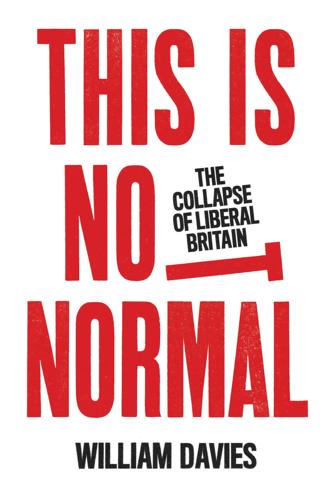
This Is Not Normal: The Collapse of Liberal Britain
by
William Davies
Published 28 Sep 2020
As long as nothing ever stays the same, you can exit better off than when you entered. The only unprofitable scenario is stasis. Private investment funds have been a constant feature of Britain’s descent into political turmoil, though their precise role remains murky. The American hedge fund billionaire Robert Mercer, a friend of Nigel Farage, was accused of aiding the Leave campaign with data analytics expertise, via the now defunct company Cambridge Analytica. Hedge funds were generous backers of both the Leave and Remain campaigns in 2016, but both sides extracted handsome rewards from the financial turmoil that immediately followed the result.
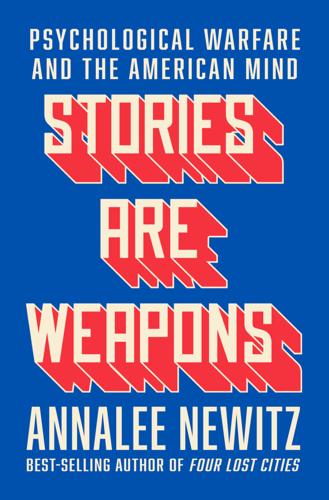
Stories Are Weapons: Psychological Warfare and the American Mind
by
Annalee Newitz
Published 3 Jun 2024
See anti-LGBT culture wars; homophobia libraries, 197–202 Limerick, Patricia, 60 Lin Bai-lo (Paul Linebarger), 14 Linebarger, Paul archives of, xiv–xv background role of, 9–10 on brainwashing, 28–29 Church of Scientology and, 31 Cold War psyops and, xv, 10, 25 early years of, 12–14 on legitimation crisis, 94 on multiple systems for propaganda, 24 Office of Psychological Warfare and, 9 Office of War Information and, 14–15 on open conspiracies, 184 on peace, 159, 164–65 on propaganda as based in truth, xvii, 23 Linebarger, Paul (continued) on propaganda as mythmaking, 15–16, 17 on propaganda as storytelling, xv–xvi on propaganda as worldbuilding, 16–17, 184 pseudonyms of, xiv, 11, 14–15 on psychological disarmament, xxii–xxiii radio propaganda and, 20–21, 24 as science fiction author, xiv, xv–xvi, 11, 14, 18–20, 25–26, 193 Voice of America and, 24 World War II psyops and, 10, 11–12, 15 See also Psychological Warfare Linebarger, Paul Myron Wentworth, 12–13 Lippmann, Walter, xix–xx, 6, 7, 15, 108 Long, Howard Hale, 107 Lord, Karen, 194 Lorenz, Taylor, 190 Losing Ground (Murray), 103, 106 Löwenthal, Leo, 94 Lucky Strike cigarettes campaign, 5–6, 7 Maan, Ajit, 79 Macaulay, Rose, 17 Machiavellianism, 73 Maddra, Sam, 58, 59, 60 Maher, Bill, 115 Malik, Nesrine, xxiv–xxv Manchurian Candidate, The, 30–31 manifest destiny, 49, 61–62 Mankind Quarterly, 109 Marcuse, Herbert, xxiii Marshall, John, 43 Marston, William Moulton, 141–44, 153, 155 Masche, Bryan, 184 Masters of Deceit: The Story of Communism in America and How to Fight It (Hoover), 30 Mastodon, 92, 189–90 Mattson, Charles, 130 McCann, Thomas, 8 McCarthy, Joseph, 27, 123, 129 McClure, Robert, 9, 10 McLuhan, Marshall, 33 Mead, Margaret, 32 Meerloo, Joost A. M., 29 mental hygiene campaigns, 144–50, 156, 159 Men Who Stare at Goats, The (2009), 32 Mercer, Rebekah, 71, 92 Mercer, Robert, 71, 92 Meta, 91–92 #MeToo movement, 156 Mexican-American War, 49 Middle Class Values Index (MCV), 111 Miles, Nelson, 55 military-industrial complex, 32 military information support operations (MISO), xx, 77–78 See also psyops Military Information Support Operations (MISO) Process, 77 military psyops adversarial threat of violence and, 131 advertising and, xxi, 30, 77, 78–79 ban on US citizens as targets, 75–76 confusion as goal of, xviii culture and, 78–79 culture wars as bleedover from, xvi–xvii humanitarian aid as, 80–81 mental hygiene and, 144 as MISO, xx, 77–78 modern right-wing psyops and, 95 nuclear threat as, 10–11, 25–26 Office of Psychological Warfare and, 9, 10 Office of War Information and, 14–15, 21, 23, 144 persuasion as goal of, xv, 77 social media and, 81–82 threats of violence/imprisonment and, 131 torment as goal of, 79–80 training approach, xv, 75–76, 77–79 World War I, xix, 15, 65, 122 See also Cold War psyops; Indian Wars; World War II psyops Mimicking of Known Successes, The (Older), 193 Mindf*ck (Wylie), 71 Minority Report (Dick), 31 MK-Ultra program, 31–32 Mohamed, Ahmed, 136–37 Mohican Nation, 47 Mooney, James, 55, 56 Mosley, Oswald, 22 Mosse, Hilde, 150 “Mother Hitton’s Littul Kittons” (Smith), 25–26 Ms. magazine, 148 Mueller, Robert S., 83 Mulvaney, Dylan, 132–33 Mumbo Jumbo (Reed), 114 Murdoch, Rupert, 103 Murray, Charles, 117 See also Bell Curve, The Musk, Elon, xii, 92, 189 mythmaking, 15–16, 17, 35, 65 narcissism, 73 Narrative Warfare (Maan), 79 National Longitudinal Survey of Youth (NLSY), 103–4 National Mental Health Act (1946), 144 Native Land app, 170–71 Native Son (Wright), 146 Nazism, 21–23, 91, 94, 109 Niven, Larry, 17 Noble, Safiya Umoja, 188–89 NoDAPL movement, 65 Nubia: Queen of the Amazons, 152, 153–54, 157 nuclear weapons, 10–11, 15, 25–26 Oakes, Nigel, 70 Obama, Barack, 71, 137 O’Brien, Jean, 44–47, 48, 51, 61 Oceti Sakowin Nation, 54 Office of Psychological Warfare, 9, 10 Office of War Information (OWI), 14–15, 21, 23, 144 Older, Malka, 193 Oneida Nation, 36 On War (Clausewitz), xviii open conspiracies, 184 Osage Nation, 43 O’Sullivan, John L., 61–62 othering.
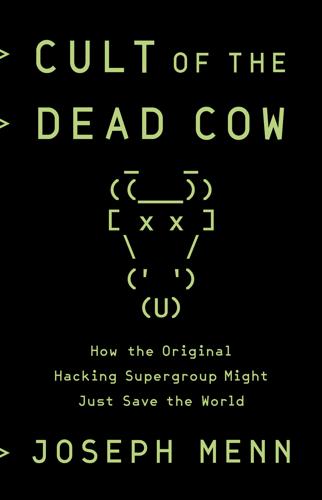
Cult of the Dead Cow: How the Original Hacking Supergroup Might Just Save the World
by
Joseph Menn
Published 3 Jun 2019
See software programs, malicious Mandiant, 134 Mann, Sally, 22–23 Manning, Chelsea (formerly Bradley), 143–144 Marlinspike, Moxie, 152, 162, 178 Masters of Deception (MoD), 25–29, 32, 54 Matasano Security, 125 Mathewson, Nick, 129, 140, 155 Matlock. See Noonan, Timothy Mayer, Marissa, 198 McAfee, 29, 107 McGill University, 166 MCI, 10, 12–13 media, cDc relationship with, 58–62, 67–68, 80. See also Hong Kong Blondes Medium (website), 99 Mentor, the, 44 Mercer, Rebekah, 196 Mercer, Robert, 196 Merry Pranksters, 22–23 Messiah Village, 48–49 Metasploit, 177 #MeToo, 158 Microsoft, 37, 63, 108, 196, 212 BackOffice software, 66, 69 Back Orifice, response to, 67–69, 77, 82–83, 96–97 hackers working for, 38, 50, 111–112, 122–124, 193 security vulnerabilities, 45, 56, 72–73, 82–83, 85, 111–112 See also Back Orifice; Windows military, 74, 78, 117–118, 136, 185, 209 See also United States government Miller, Charlie, 178–179 Miloševic, Slobodan, 102–103 MindSpring, 68 MindVox, 30–32, 63, 145 MIT, 37–38, 40, 45–46, 50, 53, 72–73 Mitnick, Kevin, 35, 44 Mixter.
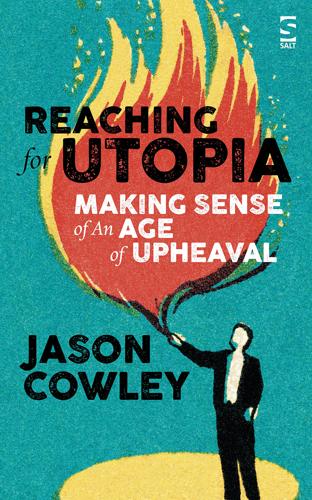
Reaching for Utopia: Making Sense of an Age of Upheaval
by
Jason Cowley
Published 15 Nov 2018
In this country, they put it down to lies, and in America, it’s the Russians!’ Ah, the Russians – let’s hope they love their children, too, as Sting once sang. Carole Cadwalladr, an Observer feature writer, has been determinedly investigating the operations of the data mining and analytics firm Cambridge Analytica and its connections to Robert Mercer, an American hedge fund billionaire and libertarian, who is a prominent Trump supporter. Cadwalladr is convinced that Mercer and Farage are at the centre of a network of alt-right white nationalists and libertarian billionaires who are intent not only on destabilising the West but engendering hate and overturning the liberal order.
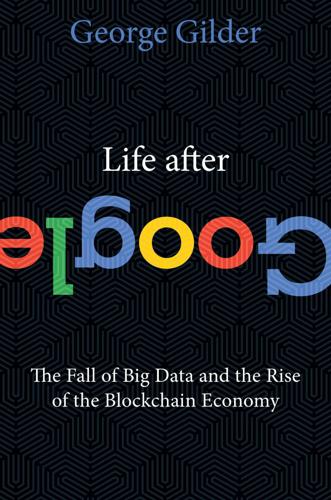
Life After Google: The Fall of Big Data and the Rise of the Blockchain Economy
by
George Gilder
Published 16 Jul 2018
The author of the Chern-Simons formula in string theory, a performer of secret cerebrations for IDA, and the genius behind this greatest of hedge funds, Simons has performed a world-beating demonstration of practical mathematics, massive computational power, and entrepreneurship. Spinning out of the IDA, Renaissance began in 1978 as “Monemetrics” and was mostly devoted to trading currencies with Baum’s hidden Markov modeling techniques still in formation at IDA. This first version was modestly successful. The major breakthroughs came when Simons hired Robert Mercer and Peter Brown from the IBM speech-recognition group in 1993 and unleashed them to create a vast Siren Server designed to make money out of Markov and derivative algorithms. The entire big data movement has its roots in the research of that industry-leading cohort at IBM, which took advantage of the company’s vast troves of speech examples and world-class computer power to recognize human language better than anyone else.
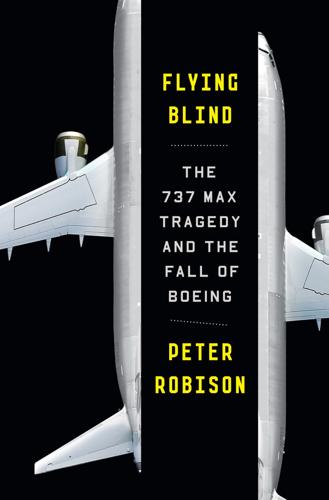
Flying Blind: The 737 MAX Tragedy and the Fall of Boeing
by
Peter Robison
Published 29 Nov 2021
After the ValuJet crash in 1996, when it emerged that the FAA had failed to implement NTSB recommendations on storage of flammable materials, DeFazio pushed for a law changing the agency’s mission from “promoting” aviation to merely “encouraging” it. In 2009, his proposal for a one-quarter of 1 percent tax on stock transactions drew the attention of Robert Mercer, the wealthy financier who later backed Trump. Mercer funded a research chemist who believes that climate change is a hoax to challenge DeFazio in subsequent elections. They’d been some of the closest of his career. Already inclined to be skeptical of the FAA, DeFazio was even more irked after what he’d heard from safety chief Ali Bahrami, who had assured him in February there was nothing to worry about with the MAX.
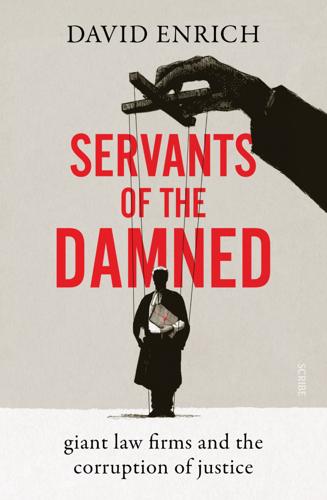
Servants of the Damned: Giant Law Firms and the Corruption of Justice
by
David Enrich
Published 5 Oct 2022
A horde of associates and paralegals were given the thankless task of sitting in a windowless storage room and perusing documents on computers that were disconnected from the internet to ensure security. Jones Day also would handle investigators’ requests to interview campaign staffers. (And it would defend Trump in cases such as the FEC’s investigation into his campaign’s relationship with Cambridge Analytica, the controversial British consulting firm bankrolled by Robert Mercer.) With McGahn gone, Ben Ginsberg became Jones Day’s point person for the Trump campaign. Ginsberg liked to tell people that he was hardly involved with anything Trump related, and it was true that he had a couple of associates to handle much of the day-to-day. But from the time McGahn joined the White House, Trump campaign aides were regularly talking to Ginsberg, who helped them strategize about how to respond to government investigators and to keep the searches for emails as narrow as possible.
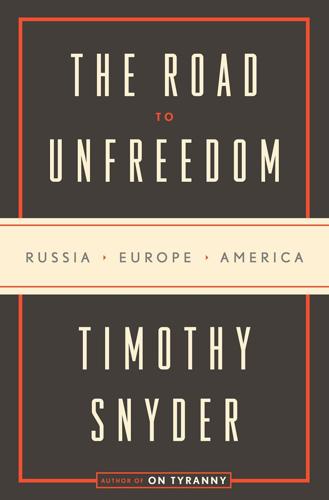
The Road to Unfreedom: Russia, Europe, America
by
Timothy Snyder
Published 2 Apr 2018
Bannon, David Bossie, and Citizens United: Michael Wolff, “Ringside with Steve Bannon at Trump Tower as the President-Elect’s Strategist Plots ‘An Entirely New Political Movement,’ ” Hollywood Reporter, Nov. 18, 2016. Bannon and Mercers: Matthew Kelly, Kate Goldstein, and Nicholas Confessore, “Robert Mercer, Bannon Patron, Is Leaving Helm of $50 Billion Hedge Fund,” NYT, Nov. 2, 2017. Bannon’s extreme-Right ideology Bannon quotation: Owen Matthews, “Alexander Dugin and Steve Bannon’s Ideological Ties to Vladimir Putin’s Russia,” NW, April 17, 2017. Bannon’s ideology and films: Ronald Radosh, “Steve Bannon, Trump’s Top Guy, Told Me He Was ‘A Leninist’ Who Wants to ‘Destroy the State,’ ” DB, Aug. 22, 2016; Jeremy Peters, “Bannon’s Views Can be Traced to a Book That Warns, ‘Winter Is Coming,’ ” NYT, April 8, 2017; Owen Matthews, “Alexander Dugin and Steve Bannon’s Ideological Ties to Vladimir Putin’s Russia,” NW, April 17, 2017; Christopher Dickey and Asawin Suebsaeng, “Steve Bannon’s Dream: A Worldwise Ultra-Right,” DB, Nov. 13, 2016.
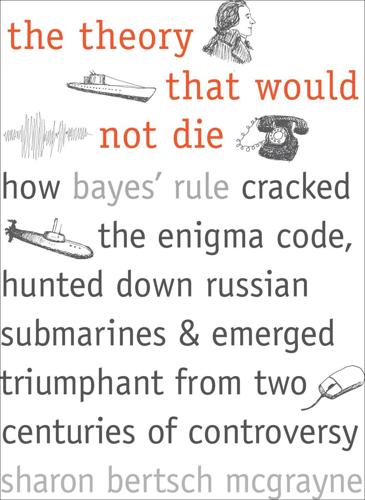
The Theory That Would Not Die: How Bayes' Rule Cracked the Enigma Code, Hunted Down Russian Submarines, and Emerged Triumphant From Two Centuries of Controversy
by
Sharon Bertsch McGrayne
Published 16 May 2011
See also Markov chains Monte Carlo simulation McNamara, Robert, 194 means, 130–32 medical devices, 228–29 medicine: cancer, x, 108–9, 110–14, 215–16, 227–28, 235, 255–57 diagnosis in, 135, 226–29, 255–57 heart attacks, x, 114–16 strokes, 226–27, 244 treatment in, 116, 235 X-rays, 53 Mercer, Robert L., 237–38, 245–47 Meshenberg, M. P., 101 meta-analysis, 215–16 metric system, 29 Metropolis, Nicholas, 222–23, 224 Michie, Donald, 81, 82 Microsoft, 242–43 military: asteroids and, 209 in Cold War, generally, 164–65, 173–75, 215 equal probabilities and, 38, 73 of France, 29, 38–40 image analysis and, 240, 241 inverse probability and, 38 mathematics and, 97 nuclear weapons and, 119–28, 182–95 robotics and, 240 of Russia, 72–73 satellites and, 209 statistics and, 97 submarines and, 194–203, 206–8 translation and, 247 weapons systems and, 241.
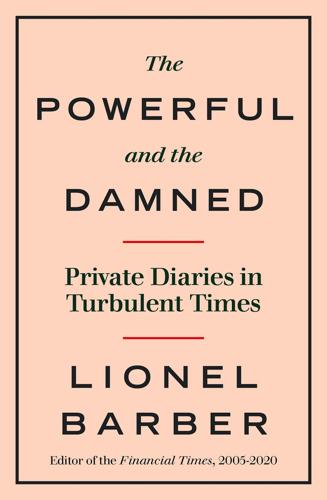
The Powerful and the Damned: Private Diaries in Turbulent Times
by
Lionel Barber
Published 5 Nov 2020
, Financial Times, 30 March 2018. 11 Sorrell defended his high compensation in an FT op-ed headlined ‘Mea Culpa – I act like the owner I am’, 5 June 2012. 12 Cambridge Analytica was the UK political consultancy that powered its voter analysis with unauthorised access to private Facebook data on 50 million people. The group, which worked for the Trump and Vote Leave campaigns, was backed by the American hedge fund billionaire and conservative activist Robert Mercer. 13 The Scarborough Shoal, located in the South China Sea close to the Philippines, is among China’s most ambitious claims to date in its drive to fortify remote islands and boost its territorial claims in strategic waters. 2019: Succession 1 Dominic Raab, Conservative MP for Esher and Walton, was a Brexiter hardliner who rose to be foreign secretary in the Johnson Cabinet. 2 Sonia Khan, treasury political adviser, worked for Hammond and his successor Sajid Javid until she was abruptly and publicly fired by Dominic Cummings, Boris Johnson’s top adviser, for disloyalty on Brexit.
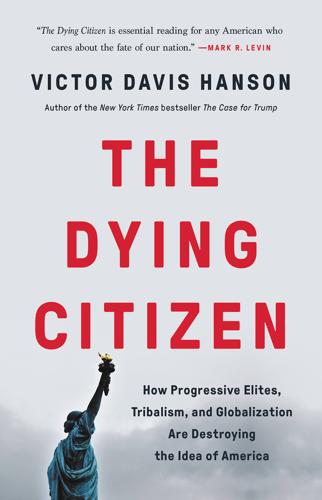
The Dying Citizen: How Progressive Elites, Tribalism, and Globalization Are Destroying the Idea of America
by
Victor Davis Hanson
Published 15 Nov 2021
I thank supporters of the Hoover Institution, Stanford University, and others for allowing me time to write this book, especially Martin Anderson, Beatrice and Jim Bennet, Will Edwards, Roger and Susan Hertog, Lew Davies, Jim Jameson, John and Carole Harris, Mary Myers Kauppila, Rebekah, Jennifer, and Robert Mercer, Roger and Martha Mertz, Jeremiah Milbank, Tom and Diane Smith, Richard F. and Karen Spencer, Victor Trione, and Kay Woods. CONTENTS Cover Title Page Copyright Acknowledgments Dedication Introduction PRE– AND POST–AMERICAN CITIZENS Part 1: Precitizens Chapter One PEASANTS Chapter Two RESIDENTS Chapter Three TRIBES Part 2: Postcitizens Chapter Four UNELECTED Chapter Five EVOLUTIONARIES Chapter Six GLOBALISTS Epilogue CITIZENSHIP, THE ANNUS HORRIBILIS, AND THE NOVEMBER 2020 ELECTION Discover More About the Author Also by Victor Davis Hanson Praise for The Dying Citizen Notes For Jennifer Explore book giveaways, sneak peeks, deals, and more.
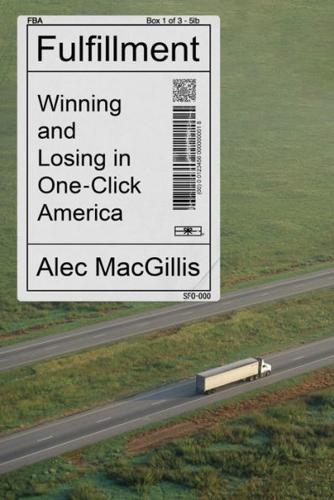
Fulfillment: Winning and Losing in One-Click America
by
Alec MacGillis
Published 16 Mar 2021
A day later, Jay Carney, the journalist turned influencer-in-chief, called up Mayor Bill de Blasio and Governor Andrew Cuomo and told them the company was pulling out. Not entirely—there would still be several thousand white-collar Amazonians in the city, clustered mostly at Hudson Yards, the giant new development on the West Side of Manhattan. But there would be no HQ2 extravaganza. A group funded by Robert Mercer, the hedge-fund billionaire, paid for a billboard in Times Square blaming the loss on Ocasio-Cortez: THANKS FOR NOTHING, AOC! So there would be a lone big winner after all. Washington and Northern Virginia had mustered nothing close to the resistance in New York. Maybe it was that the tax subsidies offered by Virginia had been less offensively gargantuan—about $750 million.
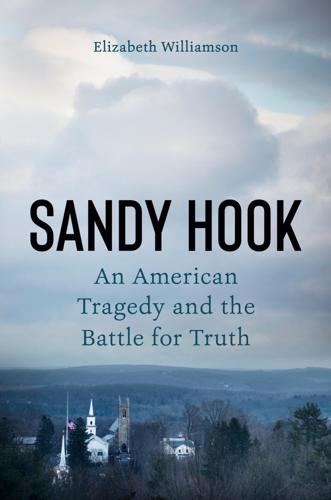
Sandy Hook: An American Tragedy and the Battle for Truth
by
Elizabeth Williamson
Published 8 Mar 2022
In April 2018, the same month Lenny, Veronique, and Neil filed their lawsuits against Jones, Facebook founder Mark Zuckerberg testified before Congress amid the biggest crisis in his company’s history. The New York Times, with London’s Observer and The Guardian, had written a series of stories[4] based on a trove of documents proving that Cambridge Analytica, a company controlled by right-wing megadonor Robert Mercer, improperly accessed the personal data of tens of millions of Facebook users in 2014. The harvesting amounted to the largest known leak in the company’s history. Stephen K. Bannon, a top Trump campaign official and later White House adviser, sat on Cambridge Analytica’s board. The company used the information it collected to construct psychological profiles of potential voters, which it then tried to sell in the run-up to the 2016 presidential election.
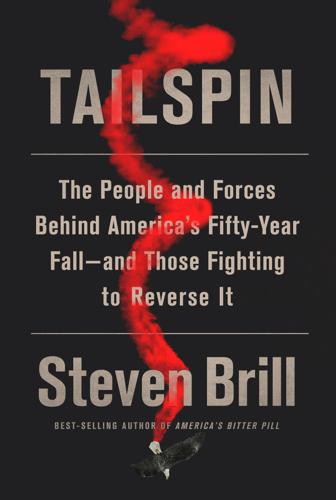
Tailspin: The People and Forces Behind America's Fifty-Year Fall--And Those Fighting to Reverse It
by
Steven Brill
Published 28 May 2018
“Before Citizens United,” Israel explained, “you at least had a good view of what the opponent would spend and what you would need to spend. Now, you’re flying blind, because in the last two or three weeks some super PAC could come in with $20 million and wipe you out. You always have to keep raising money, just in case.” Super PACs raised $1.8 billion in the 2016 election cycle, as people such as Robert Mercer on the right and Tom Steyer on the left became the most important political power players most Americans had never heard of. That does not count at least $250 million in “dark money” raised by tax-exempt entities that did not call themselves political action committees, but made their own independent expenditures without even having to reveal donors because they instead declared that they were social welfare or educational organizations.
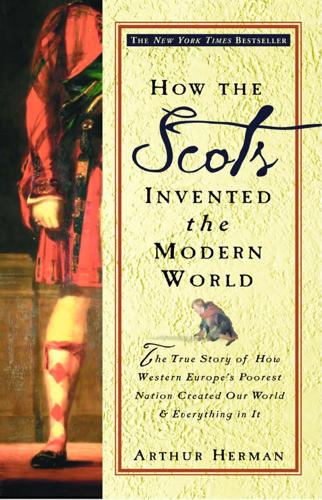
How the Scots Invented the Modern World: The True Story of How Western Europe's Poorest Nation Created Our World and Everything in It
by
Arthur Herman
Published 27 Nov 2001
There the old chieftain, who had once boasted of having five hundred warriors at his beck and call, expired, surrounded by the clansmen he had led to defeat and death. The slaughter among the clan leadership was heavy. Grapeshot had shattered both of Lord Lochiel’s ankles, and he had to be carried off the field. The only regimental commanders to escape unwounded were Lord George Murray, Lord Ardshiel, and Lord Nairne—although Nairne’s brother, Robert Mercer of Aldie, was killed, as was Mercer’s son Thomas. Their bodies were never found. Only three of the Mackintosh officers survived. But if the Jacobite chieftains and their tacksmen paid a heavy price for their misplaced loyalties, it was their followers who suffered most from the retributions of Cumberland and his soldiers.
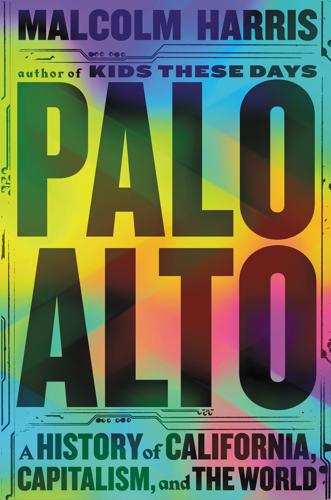
Palo Alto: A History of California, Capitalism, and the World
by
Malcolm Harris
Published 14 Feb 2023
Soon after, a right-wing media impresario named Steve Bannon approached SCL with an idea for a U.S. spin-off. SCL was used to manage election propaganda campaigns for the ruling cliques in England’s former colonies, but the United States was a whole new market. When Bannon suggested that his Breitbart News Network funders Robert Mercer and his daughter Rebekah were interested in financing the effort, anything seemed possible. Like the SCL boss, Alexander Nix, Bannon and Bob Mercer were big admirers of Thiel’s project. As the young SCL research head, Christopher Wylie, later wrote, it seemed to him that “these men wanted to create their own private Palantir” at the consultancy—the Mercers promised $15–20 million.61 The use for Bob Mercer, an IBM engineer turned hedge-fund guru, seemed obvious: modeling the future for profit.